- Meet the Team
- Our Manifesto
- Work with Us
- Budget Travel
- Personal Development
- Work & Travel
- United Kingdom
- More of Europe
- Philippines
- More of Southeast Asia
- More of South America
- More of Central America
- South Korea
- More of Asia
- More of North America
- New Zealand
- Pacific Islands
- More of Oceania
- South Africa
- More of Africa
- More of the Middle East
- Travel Essentials
- Travel Gear
Home » Southeast Asia » Travel Safety

Is Indonesia Safe for Travel? (2024 • Insider Tips)
Indonesia is a must-visit country.
There are thousands of islands to explore. It has some of the world’s best snorkelling and scuba spots.
Indo’s got great food, a genuinely interesting mix of cultures and different languages, a fascinating history AND an infectiously laid back lifestyle,.
You’ll also find international quality nightlife in Bali, spot giant lizards on Komodo, chill out in the Gili Islands and get lost in the megacity that is Jakarta.
However, Indonesia is not without its darker side. When visiting, there are quite a few things to consider.
There are violent protests, religious extremists, terrorist attacks and natural disasters such as devastating earthquakes and tsunamis. Then there is the threat of volcanic eruption, some harsh laws to keep in mind, poor air quality and occasional sinking ships!
So yes Indonesia can be bloody dangerous.
But thankfully, I’m here to help you navigate the cultural pitfalls, the petty crime, scams and sometimes scary natural world of this awesome archipelago.
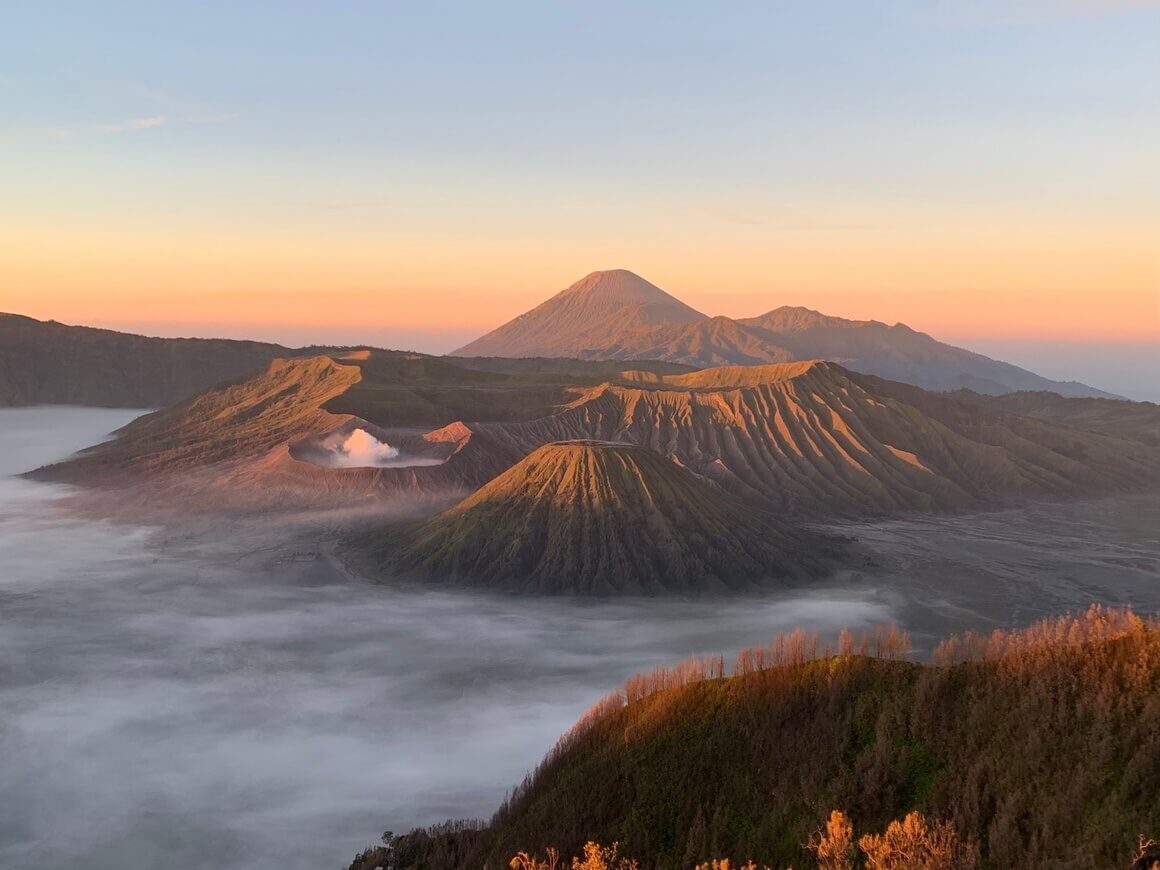
The Broke Backpacker is supported by you . Clicking through our links may earn us a small affiliate commission, and that's what allows us to keep producing free content 🙂 Learn more .
There is no such thing as a perfect safety guide, as things change quickly. The question of “Is Indonesia Safe?” will ALWAYS have a different answer depending on who you ask.
The information in this safety guide was accurate at the time of writing. If you use our guide, do your own research, and practice common sense, you will probably have a wonderful and safe trip to Indonesia.
If you see any outdated information, we would really appreciate it if you could reach out in the comments below. Otherwise, stay safe friends!
Updated December 2023

Unlock Our GREATEST Travel Secrets!
Sign up for our newsletter and get the best travel tips delivered right to your inbox.
Is Indonesia Safe to Visit Right Now?
Safest places in indonesia, top 10 safety tips for traveling to indonesia, is indonesia safe to travel alone, is indonesia safe for solo female travellers, where to start your travels in indonesia, is indonesia safe to travel for families, getting around indonesia safely, what to pack for your indonesia trip, getting insured before visiting indonesia, faq about staying safe in indonesia, so, is indonesia safe.
- Buy Us a Coffee!
Much of Indonesia is safe to travel. Around 5,889,031 tourists arrived in the country by 2022 as stated in Indonesia’s statistical report , and travellers mostly had a positive experience.
Visiting Indonesia is fantastic – it’s an amazing place.
Made up of an awesome 17,508 islands, the archipelago that makes up Indonesia would take any traveller an age to explore. It’s a cultural wonderland that is the result of the melding of different traders and conquerors throughout the ages.
However, in this country, there are some issues. There are the standard travel woes of pickpockets and scammers and some of the worst air pollution in the world.
Add to this severe social disparities between rich and poor. Oh, and then there are also violent protests and the threat of terrorism to contend with.
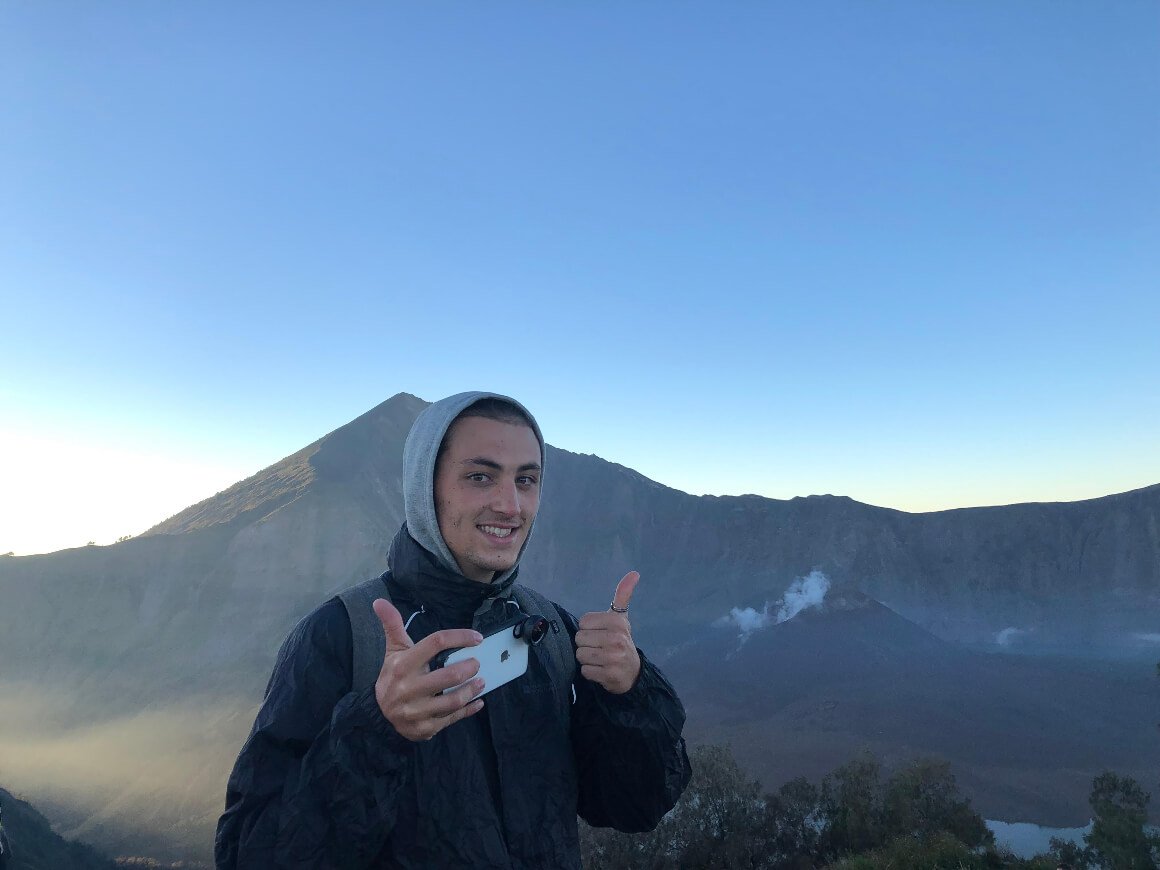
As if the human side of things in this vast nation wasn’t enough to deal with, there’s also nature to take into consideration here. There are many volcanoes in Indonesia like Bali’s Mount Agung (which has been simmering recently), as well as devastating earthquakes and recent tsunamis. It can be a scary prospect.
Generally, Indonesia is (or at least was) known more of a “backpacking” destination than one that’s primed for mass tourism. That said, tourism has been growing a crazy amount in this island nation – and the numbers speak for themselves.
With all this potential seeing these impressive numbers and rankings, the natural is to think, that Indonesia must be pretty safe. And whilst it generally is, learning how to travel safely is of utmost importance and relevance. Even in countries like Indonesia.
The likelihood of you coming into contact with something like a terrorist attack in Indonesia is very, very slim. You’re more likely to experience a seismic tremor.
So I’d definitely say that to answer the question of “ How safe is Indonesia to visit right now? ” would be… safe enough!
Check out our detailed where to stay guide for Indonesia so you can start your trip right!
When choosing where you’ll be staying in Indonesia, a bit of research and caution is essential. You don’t want to end up in a sketchy area and ruin your trip. To help you out, I’ve listed the safest areas to visit in Indonesia below.
Let’s start out with the crown jewel of backpacking in Indonesia – Bali. It’s probably THE safest place in Indonesia, thanks to incredibly friendly locals and a laid-back vibe.
Although it may look tiny on the map, there are many places to stay in Bali as it’s actually quite a large island with many different areas to explore. There’s much more to it than the beaches, including terraced rice fields, hundreds of Canggu hostels , several lakes, and a couple of active volcanoes.
The buzzing digital nomad scene has triggered a whole load of coworking spaces to pop up all over the island. In the bubbly town of Pererenan is Tribal , an epic hostel and coworking spot!
Lombok is another Indonesian Island but offers a completely different vibe than Bali. While you can still do adventures like climbing the active volcano Rinjani (it’s a sketchy 2-day climb), Lombok is all about white sand beaches and relaxation.
Apart from the natural disaster threats like earthquakes, especially if you’re staying in good hostels in Lombok , it’s incredibly safe as well.
The only threat you’ll have to face in Flores is being eaten by a Komodo Dragon (which is VERY unlikely). Or, getting a sunburn while exploring the white sand beaches with its incredibly clear water. Flores might not have much to offer for adventure, but it’s the ideal getaway if you want to relax for a couple of days.
Just make sure to visit Komodo at the right time in order to make the most out of them.
Places to Avoid in Indonesia
- Jakarta – Jakarta is a GREAT city to visit and pretty safe as well. But the air quality is definitely not ideal. Smog and dust pollute the air and traffic can be horrible.
- Canggu at night (Bali) – While Backpacking in Bali is totally safe during the day, travellers, especially females, have to take care of their valuables when walking or driving around here at night.
- Active volcanos – It’s not advisable to go within 4 kilometres of the Mount Agung crater in East Bali or within 7 kilometres of Mount Sinabung in Kalo Regency, North Sumatra. Local authorities have set up these exclusion zones due to increased volcanic activity and natural disasters.
- Drugs – not a place, but definitely something to completely avoid in Indonesia. Drugs are highly illegal and possession and use will be punished with the death sentence.
Keeping Your Money Safe in Indonesia
One of the most common things to happen to you whilst travelling is losing your money. And let’s face it: the most annoying way for this to actually occur is when it’s stolen from you.
Petty crime is pretty much a problem all over the world.
The best solution? Get a money belt.

Stash your cash safely with this money belt. It will keep your valuables safely concealed, no matter where you go.
It looks exactly like a normal belt except for a SECRET interior pocket perfectly designed to hide a wad of cash, a passport photocopy or anything else you may wish to hide. Never get caught with your pants down again! (Unless you want to…)
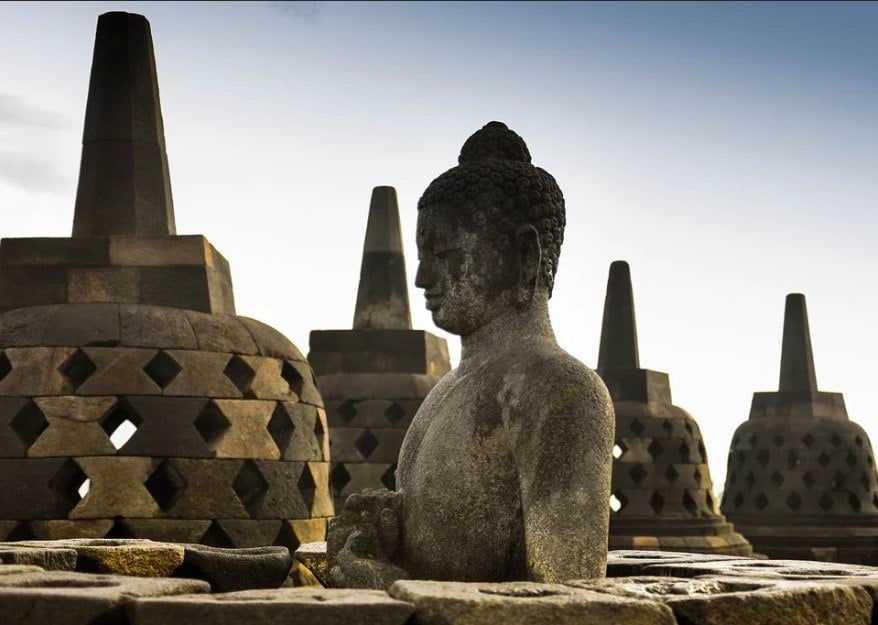
Just because tourism is everywhere in Indonesia, doesn’t mean that it’s always 100% safe.
To help keep yourself as safe and as secure as possible I’m sharing my best safety tips for travelling to Indonesia…
- Keep your belongings close to you and don’t walk around looking flashy – doing otherwise could easily make you a target of crime in Indonesia.
- Blend in – wear low-key, modest outfits, especially around religious sites and in more local areas
- Don’t leave your belongings unattended on the beach – they can easily go missing…
- Always keep an emergency stash of cash – Never keep all your cards/ currency in one place. And hide it all from thieves with a hidden money belt .
- Do not go swimming when you’re intoxicated – it seems like a good idea, but things can very easily go tragically wrong
- Be culturally aware – read up on what you should and shouldn’t do during Ramadan and Balinese New Year
- Muslims and non-Muslims have to abide by Sharia law in Aceh Province – any rules will also apply to you!
- Only use ATMs that look legitimate – and watch your back when you’re withdrawing money
- Keep away from drugs altogether – there’s a zero-tolerance policy her, DON’T RISK IT!
- Take a good medical kit with you – you never know when you might need it!
- Protect yourself against mosquitoes – there is a risk of dengue virus, amongst other things
- Know what to do in the event of volcanic or seismic activity – Keep up to date with local authorities, on local media and with official Indonesian government news .
Indonesia is a fantastic place to go and explore but, as you can see, it’s not always the easiest place to travel around.
The potential for natural disasters and petty crime in Indonesia shouldn’t be ignored.
Volcanic eruptions or other natural disasters can occur with little to no warning. Indonesian authorities are on top of this (for the most part).
If you’re sensible with how you travel, personal safety shouldn’t be an issue- you’ll be fine.
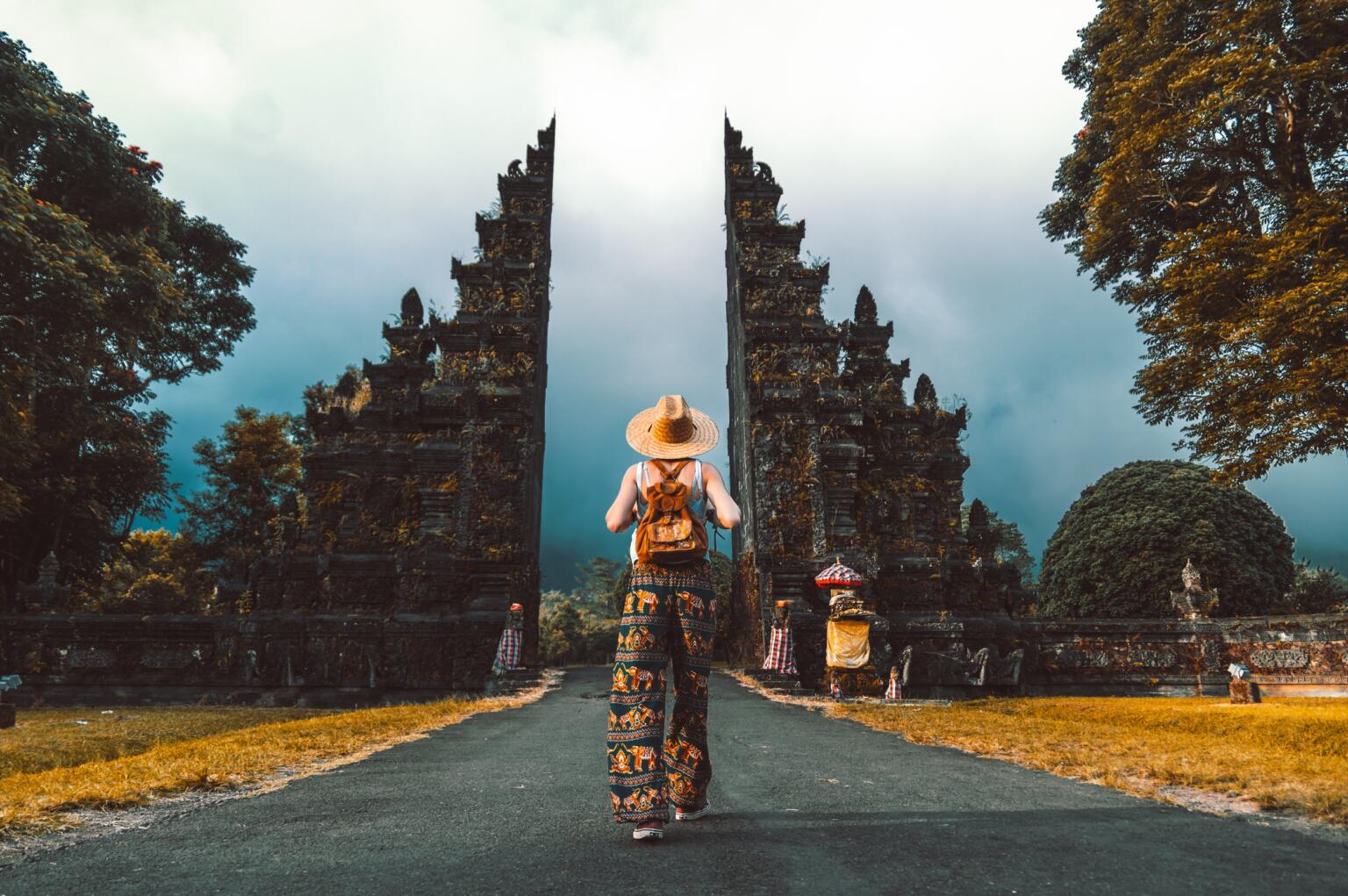
I solo travelled to Indonesia as a teenager. It was awesome. And, I survived!
Whilst solo travel is epic, it can be daunting. I hear you, I’ve been there.
Luckily Indonesia is a pretty good place for solo travellers. It’s been known for a while as a backpacking destination. Certain islands, like Bali, are strongholds of all sorts of travellers.
Indo can be easy to travel. That said, there are still a few things you should consider…
- There are a ton of hostels and homestays spread across the islands of Indonesia. This is a good way to make friends and maybe even get yourself a travel buddy; it’s a good way to start your trip. Make sure you do your research, however, and that places are rated highly by other solo travellers.
- Ask the local friends you’ve made, your taxi driver, or the staff at your accommodation for their insider knowledge .
- Carry around only the money that you need .
- Have different ways of accessing your money . Make sure you’ve got money set aside, stashed in a day pack etc.
- Don’t get really wasted . Not only women but also men can get into dangerous situations by losing their senses and good judgement by being completely drunk.
- Keep in touch with people back home – your mum will thank you!
- Travel light .
Solo travel in Indonesia is super fun. It is definitely worth your time exploring all the islands and finding the right places for you. Still, you will have to make sure you keep your wits about you, as you’ll be the only one looking out for you.
Make sure you stay aware of local customs and laws, too, and most importantly… TRAVEL SENSIBLY! You’ll be fine.
Psssst…. Searching for your Tribe?
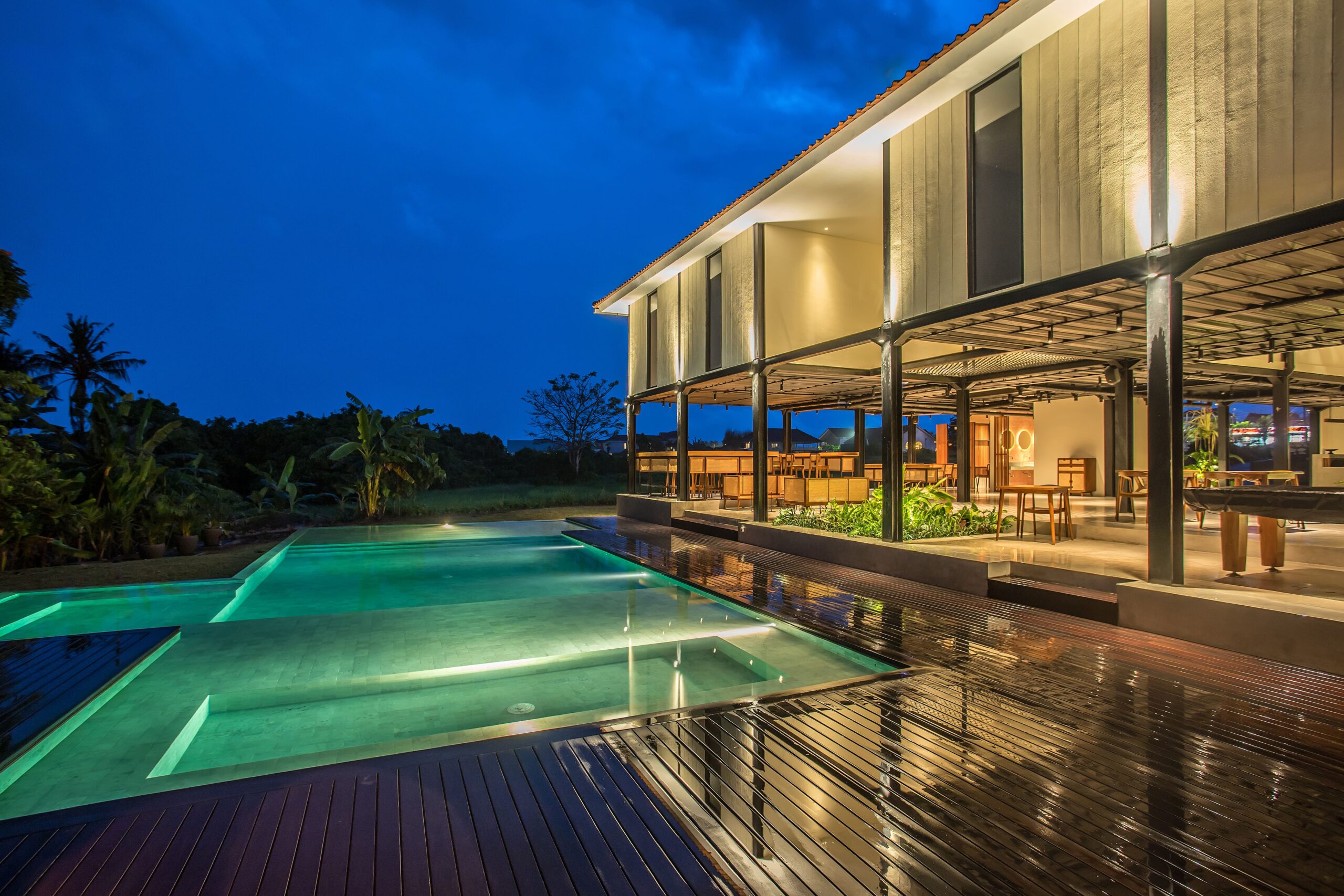
Tribal Hostel – Bali’s first purpose-built co-working hostel and perhaps the greatest hostel in the world!
An ideal hub for Digital Nomads and backpackers, this very special hostel is now finally open…
Come on down and enjoy amazing coffee, high-speed wifi and a game of pool 😉
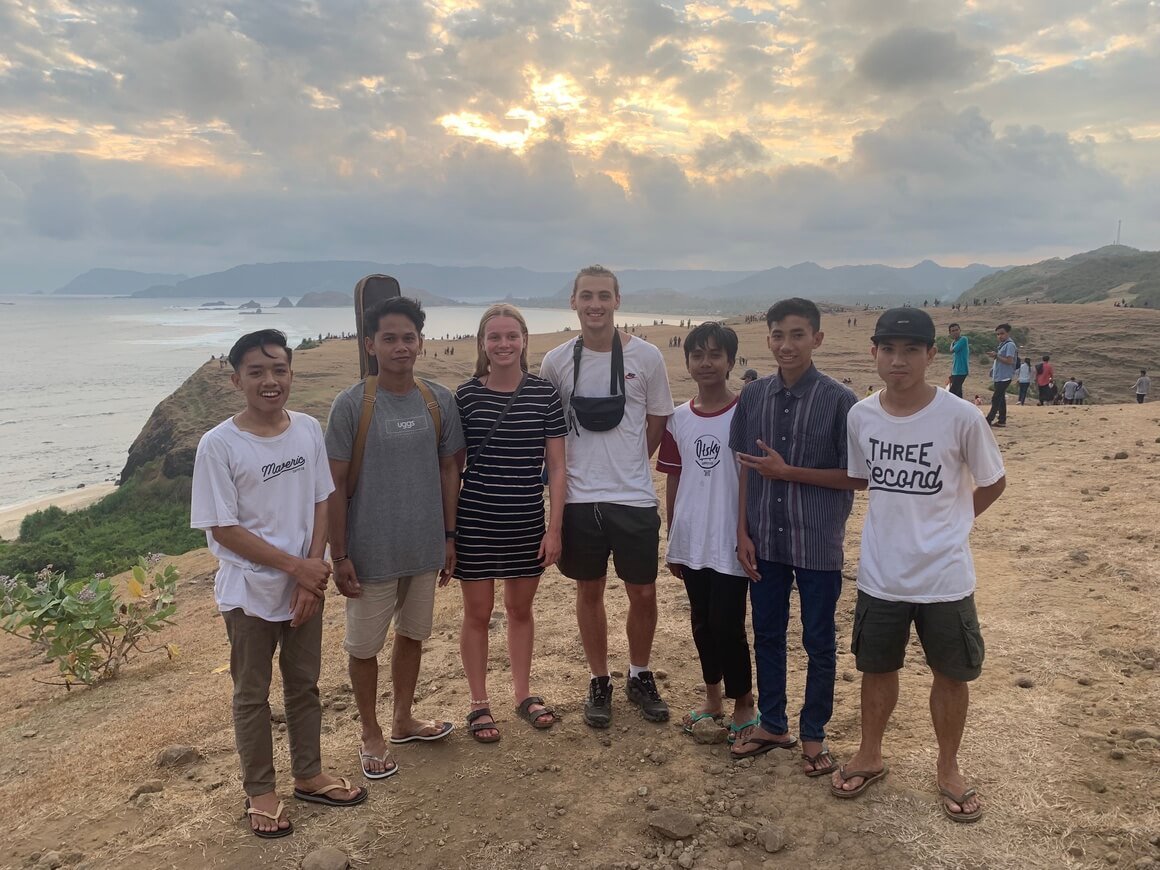
Is Indonesia dangerous for solo female travellers? Possibly. But generally not.
There are some important conversation topics here…
Even for female travellers, Indonesia is a fun place to travel. Solo female travellers flock to places like Bali to enjoy the beauty of the island.
In some areas of the country, you will need to pay more caution than in others. So, here are my tips for solo female travellers in Indonesia.
- Knowing what to wear , as well as where and when wearing certain clothes is appropriate, is important when you are travelling around Indonesia.
- In Aceh , for better or worse, Sharia law is in place. Women have to, by law, cover their hair with a headscarf, and cover their arms and legs.
- Horn honking and catcalling from Indonesian men does happen, unfortunately. When or if it does occur, it’s best just to ignore it and walk on.
- If someone is asking too many questions about where you’re staying, you’re itinerary or if you’re married, just lie. You don’t have to tell them the truth.
- Look up the places you will be staying at before you start out on your trip.
- Beware of drink spiking . This does happen and the best way to avoid is to keep an eye on your drink.
- There is nothing wrong at all with hiring a guide – just make sure the guide, or tour company, is well-reviewed (especially by other female travellers) and trustworthy.
Like everywhere in the world, women travelling by themselves in Indonesia are more at risk than their male counterparts. The usual rules apply, the same things you might do in your hometown anyway: trust your gut and don’t wander around at night by yourself.

Bali is one of the world’s travel hotspots at the moment. It’s a very safe island with an incredible amount of things to do and see. From stunning nature and action to white-sand beaches and digital nomad cafes, Bali a top place to visit.
Indonesia might not be the atypical destination to take your children on holiday, but why not?!
I met lots of families on my recent trip to Indonesia. It’s not always going to be straightforward though (depending on how you travel).
In fact, if you feel like dipping your toe into the diverse country of Indonesia and its myriad cultures – and want your children to be able to safely lap it all up – then Bali is a great starting point. Safety in Bali is significantly greater than in other of the country’s major cities or tourist destinations.
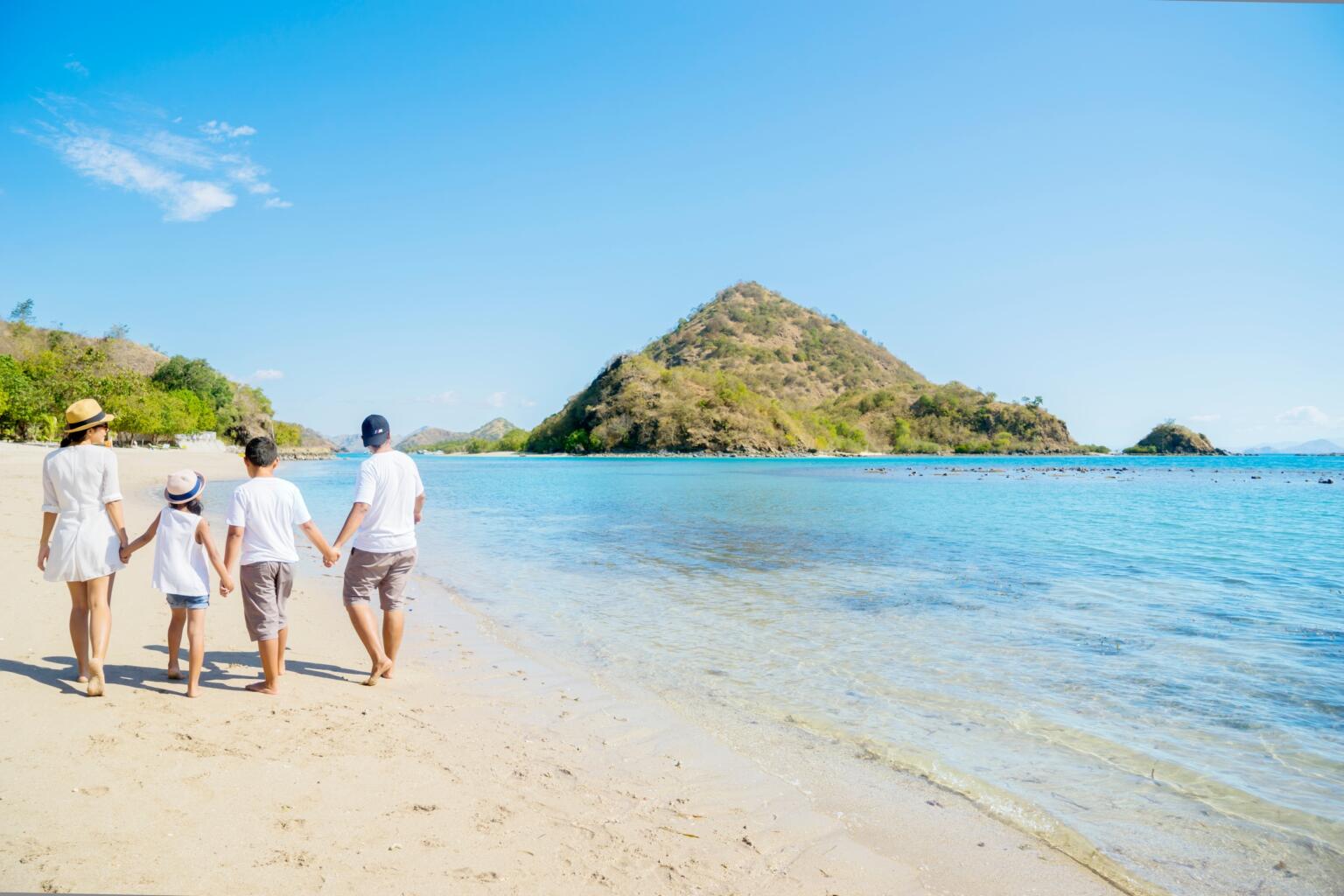
Here you will find a host of child-friendly facilities all across the island that will cater towards families. There are resorts and hotels in the southern part of the island and clean cafes with good food on offer. The local Indonesian warungs also offer amazing and affordable meals too.
In other parts of Indonesia, however, these kinds of child-friendly specialities are much harder to come by.
If you’re travelling with younger children, it’s best to bring some sort of carrier as opposed to a pram. This is the done thing in this part of the world anyway, plus getting a pram around on the non-existent pavements is just not going to be fun at all.
When it comes to breastfeeding, don’t do it in public, especially in more conservative places. It’s best to see what other local ladies are doing and follow suit.
Though it probably will be a challenge (unless you stay in a lovely resort or luxury accommodation in Bali ), Indonesia will be a rewarding place to travel with your children. It’s somewhere they aren’t likely to forget soon!
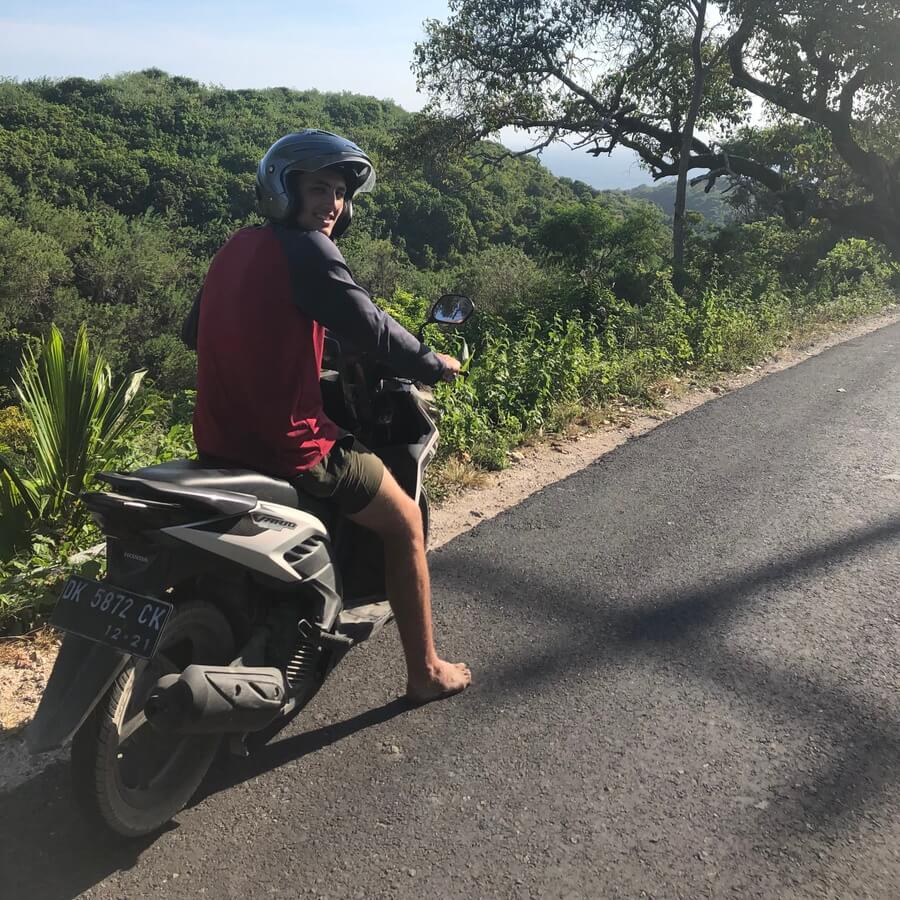
Indonesia can be a pretty… hair-raising place to drive.
Local drivers are not the best, the roads are not always the best, and the extreme weather that hits the islands can mean those roads only get worse – and more dangerous. Oh, and getting an international driving permit isn’t always a smooth experience.
People don’t always follow the traffic rules in Indonesia. This means that it can be a pretty stressful place to drive, especially if you have never driven in a place like this before.
Most people rent scooters or motorbikes when in Indonesia. I urge you to be careful when hiring a motorbike.
Make sure you have prior experience, know how to ride one, and that your travel insurance covers you in case of an accident. WEAR A HELMET!
Cycling in Indonesia is increasingly popular and a wonderful safer alternative.
Uber was but no longer is in operation in Indonesia. Instead, the Malaysia-founded, Singapore-based Grab moved in and got all the business.
Taxis are plentiful in Indonesia, normal to use, and are, in general, pretty safe to use. However, you should make sure that you only take journeys with a reputable taxi company; and definitely do not use unlicensed taxi drivers.
Buses come in all shapes and sizes in Indonesia. Large buses are mainly used as city transport on Java; Jakarta, for example, has a wide-reaching bus system that’s very cheap. It’s not always straightforward and can be plagued by pickpockets, so use it with caution.
Minibuses are the classic way to get around and are pretty ubiquitous. This is the mainstay for both locals and backpackers. They trundle both in and around cities, as well as between destinations. They go by many different local names, too.
Everyone’s packing list is going to look a little different, but here are a few things I would never want to travel to Indonesia without…
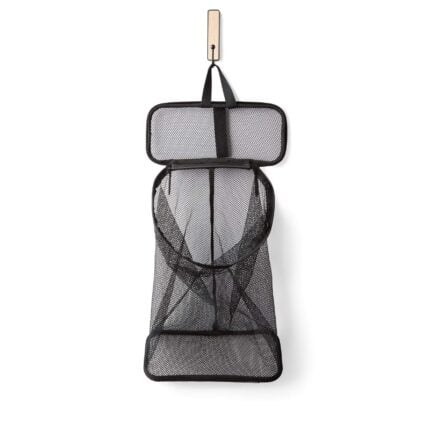
Hanging Laundry Bag
Trust us, this is an absolute game changer. Super compact, a hanging mesh laundry bag stops your dirty clothes from stinking, you don’t know how much you need one of these… so just get it, thank us later.

A decent head torch could save your life. If you want to explore caves, unlit temples, or simply find your way to the bathroom during a blackout, a headtorch is a must.

Yesim stands as a premier eSIM service provider, catering specifically to the mobile internet needs of travellers.

Monopoly Deal
Forget about Poker! Monopoly Deal is the single best travel card game that we have ever played. Works with 2-5 players and guarantees happy days.

This is a regular looking belt with a concealed pocket on the inside – you can hide up to twenty notes inside and wear it through airport scanners without it setting them off.
I always get asked “ Is Indonesia safe for tourists? ” If you’re worried about safety the best plan of action is to watch your own back by arming yourself with some good quality Indonesian travel insurance .
ALWAYS sort out your backpacker insurance before your trip. There’s plenty to choose from in that department, but a good place to start is Safety Wing .
They offer month-to-month payments, no lock-in contracts, and require absolutely no itineraries: that’s the exact kind of insurance long-term travellers and digital nomads need.

SafetyWing is cheap, easy, and admin-free: just sign up lickety-split so you can get back to it!
Click the button below to learn more about SafetyWing’s setup or read our insider review for the full tasty scoop.
Here are some quick answers to common questions about safety in Indonesia.
What should I avoid in Indonesia?
Avoid these things in Indonesia to stay safe: – Don’t disrespect the local culture – Keep your belongings close to you and don’t walk around looking flashy – Don’t keep your phone in your hand when walking on the street – Avoid using individual ATMs on the side of the road – opt for the ones inside shops and banks
Is Indonesia safe for solo female travellers?
If you use your common sense and don’t go looking for trouble, Indonesia can be very safe for solo female travellers. Local people are genuinely friendly and welcoming. Catcalling is hardly a thing but be prepared to be stared at quite a bit. Don’t worry, this is normal and no threat at all.
Is Indonesia safe to live in?
While it’s not easy to get the right visa, living in Indonesia can be a real treat and super safe if you adapt to the local culture – known for its cheap cost of living and laid back lifestyle. Nature will be the biggest safety concern, with mosquito-carried illnesses, earthquakes and tsunami threats.
What are the laws in Indonesia?
Laws and rules in Indonesia are strict. The number one aspect to be careful of is drugs. Many backpackers indulge in the occasional spliff or dosage of party powder. THIS IS A TERRIBLE IDEA IN INDONESIA! Gambling is also illegal. Indonesia is partly a Muslim country – and some regions such as Aceh Regiosn follow Sharia Law. If you’re unsure, dress modestly and look at Indonesian law websites or even better, investigate your own country’s or Indonesia’s Official Gov Website.
How much crime is in Indonesia?
There isn’t a great threat of organised violent crime from terrorist groups. It’s mainly petty crime such as pickpocketing. When visiting Indonesia, take caution to ensure personal safety, as crime is not popular here, but far from invisible. If you are suspicious or feel unsafe, alert local authorities or Indonesian authorities immediately.
Yup, Indonesia is definitely safe , especially if you follow my travel tips. The country isn’t completely without its issues but where isn’t? Your visit to Indonesia will most probably end safely and happily and you will be excited for your return.
Indonesia is one of my favourite places I’ve ever travelled to. Don’t let safety concerns discourage you from visiting what is truly a remarkable country. Just be sure to exercise caution and keep your wits about ya!
My final recommendation is to make sure you keep up to date with relevant government advice. I’m from the UK, so I always check the gov.uk website for travel advice, Wherever you’re from, your government should have its own alternative.
If you have any more questions or comments, feel free to drop them in the comments section below.
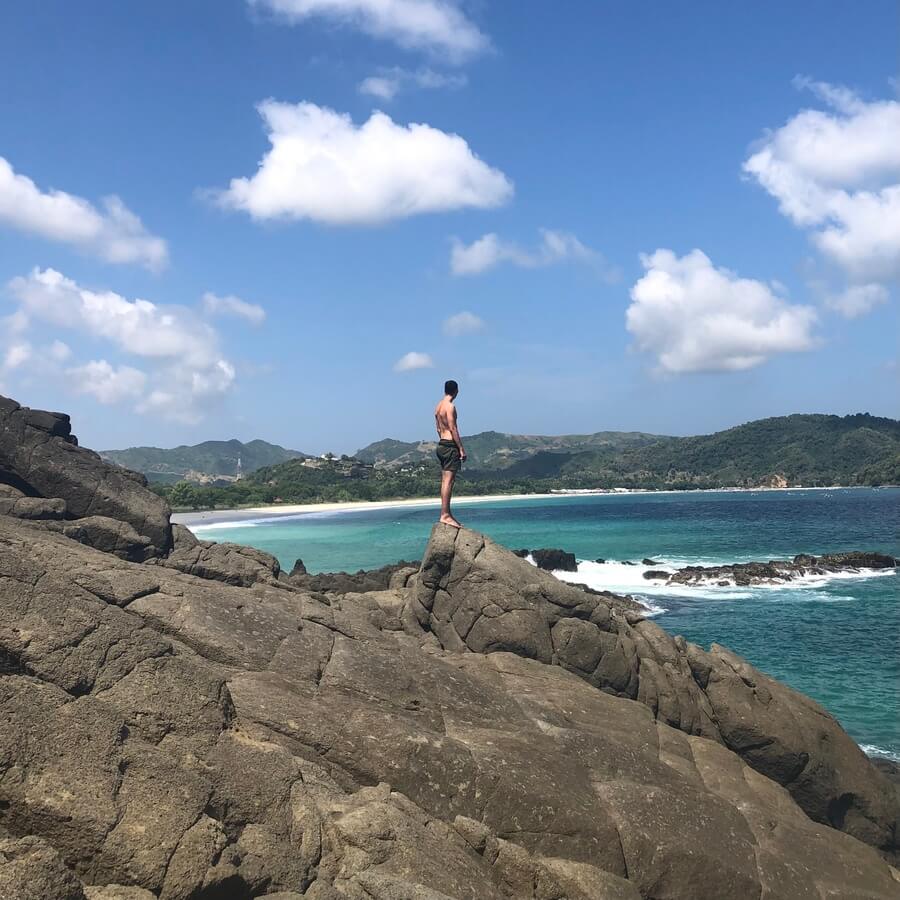
Looking for more info on traveling to Indonesia?
- Let me help you choose where to stay in Indonesia
- Swing by one of these fabulous festivals
- Check out my favorite Airbnbs in the centre of all the action
- Plan the rest of your trip with our fantastic backpacking Indonesia travel guide!
- Take a look at my expert travel safety tips learned from 15+ years on the road
Disclaimer: Safety conditions change all over the world on a daily basis. We do our best to advise but this info may already be out of date. Do your own research. Enjoy your travels!
Buy Us a Coffee !
A couple of you lovely readers suggested we set up a tip jar for direct support as an alternative to booking through our links. So we created one!
You can now buy The Broke Backpacker a coffee . If you like and use our content to plan your trips, it’s a much appreciated way to show appreciation 🙂

Joe Middlehurst
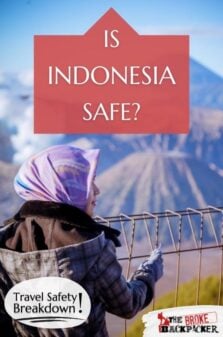
Share or save this post

This a great blog Rose. Very nice to see information on traveling as a solo female backpacker. I hope you can come to flores and Komodo. We have the only locally woman owned dive center. As well we do Komodo Tours. I have been learning about blog writing as well…but i am now where near as good as you are …hehe. I hope you can make it to flores, please stop by our office in Labuan bajo and say hello. You can find us at komodoislandtour
Leave a Reply Cancel reply
Your email address will not be published. Required fields are marked *
Save my name, email, and website in this browser for the next time I comment.
Notify me of followup comments via e-mail.
15 things to know before going to Indonesia: culture, etiquette and safety

Dec 7, 2023 • 9 min read

From etiquette to safety, here are 15 things you need to know before you go to Indonesia © ErmakovaElena / Getty Images
If you’re looking for culture, activities, wildlife or sheer adventure, Indonesia is one of the richest countries in the world. With an estimated 13,466 islands, it's a whopper too. But Indonesia beyond Bali and Lombok (and the Gili Islands ) remains largely unknown to many travelers. To pick just one example, Sumatra (80 times the size of Bali) is almost a world in itself. And yet people ask the question: “Is Indonesia worth visiting?”
Of course! This chain of islands – many culturally unique – stretches west to east across more than 5000km (3110 miles), making it one of the world’s most excitingly diverse countries. From getting ready before you go to important etiquette and safety information, here are 15 things you need to know to help you plan your trip to Indonesia.
1. Pick the best season depending on where you're going
Most visitors to Bali do their best to avoid the rainy season (normally November to March), but there is really no bad time to visit Indonesia. Even at the height of the monsoon, rains are normally short and sharp and can form an unforgettably dramatic sound and light show. You will often have several bright sunny days between relatively brief storms. There are benefits too in reduced crowds (and dropped prices) since this is also low-season… but the greatest disadvantage comes with the first rains of the year that wash plastic trash (one of Indonesia’s greatest problems) down the rivers and onto the beaches.
At other extremes of the archipelago, West Papua and the Maluku Islands tend to have their dry seasons between September and March. Giant Sumatra (1000km/620 miles long) and Kalimantan (Indonesian Borneo) are big enough to have weather patterns all of their own. As a general rule, March to October is a good bet for avoiding the heavy rains in these areas. This can be important in jungle regions since some areas might be inaccessible during the rains.
2. Choose the right visa
It is possible for citizens of the UK, USA, Canada and Australia to be granted a Visa on Arrival (VOA) at some international airports, seaports or land crossings. However, it is best to apply for an e-Visa (e-VOA) at least 48 hours before departure instead. This can also be extended for a further 30 days. The initial 30-day tourist visa costs around US$35. Make sure you have at least six months before your passport expires before departure.
If you're planning to stay longer in Indonesia to work or study, there are different visa options available. For citizens of other countries, check your visa options and apply online .
3. Learn a few words and phrases in Indonesian
It’s been said that one in 10 of all the world’s languages are spoken in Indonesia. Many islands have their own unique languages (some have hundreds), and English is spoken only in tourist areas. Fortunately for the traveler, Bahasa Indonesia (literally "Indonesia language") is spoken by everyone, with the exception of the youngest preschool children and some of the elderly in rural areas.
Indonesian is a relatively easy language to learn and people from all walks of life will appreciate even minimal efforts to communicate in their own tongue. (Bahasa Indonesia shares much in common with Malay, so your efforts to learn the language will also serve you on trips to Malaysia , Sarawak and Sabah ).

4. What to wear: pack for the tropics, but be respectful
Indonesia is tropical, and wherever you go in this country, you’re likely to want shorts, t-shirts or beach clothing much of the time. It can be surprisingly chilly in the highlands, however, and if you plan to do some trekking or volcano climbing, you will appreciate some warmer layers. Also beware that transportation (planes, trains and buses) are often surprisingly cold, and air-con units in shopping malls and hotels are often set to frigid levels, allowing fashionistas to dress in the sort of chic style you might associate with a European fall.
Even in beach areas, it’s considered extremely impolite to walk around shirtless (especially to enter a shop or restaurant), although you will see this often in the party areas of Bali. Male Indonesians will often be shirtless if in the comfort of their own home but would never dream of removing a shirt on someone else’s property.
If you are visiting temples, you will often be expected to wear a sarong and (for women) to cover your shoulders. Religious buildings and ceremonies in most parts of the country will often be off-limits if you’re wearing shorts. In most of Muslim Indonesia, dress codes are relatively relaxed, but you are likely to feel more comfortable (and appear more respectful) in long pants in communities that are predominantly Muslim.
5. Buy a local SIM card and download useful apps
Buy a local SIM card upon arrival at the airport so that you have calling credit and internet data wherever you go. It is inexpensive and easily done – staff will upload and activate the card for you within a couple of minutes. Make a note of your national consulate or embassy contact details in case of emergency.
Prior to traveling, download the transportation apps for Grab and/or Gojek . For solo travelers , this may be reassuring because drivers/riders are vetted and reviewed, and there is a security alert button to hit if you feel threatened.
6. Etiquette includes respecting your hosts’ religious beliefs
Indonesia is the world’s most populous Muslim country. While this is true (87% of the country’s 275 million people are Muslim), it is also misleading since – with the exception of Aceh (northern Sumatra ), where Sharia law still prevails – Indonesia’s Islamic restrictions are very relaxed. Indonesian Muslims are also among some of the most hospitable people you will ever meet.
Vast tracts of the country are also predominantly Christian (large sections of the Maluku Islands, for example) and Bali itself is almost entirely Hindu. Intermingled with these "formal" religions – and sometimes almost inseparable from them – are an entire spectrum of animistic beliefs. Your trip will be all the richer for any attempts to understand and appreciate the beliefs of your hosts.
7. Kick off your shoes when entering a building
Most people realize that in Asia, you shouldn’t walk into a house wearing shoes, but it surprises many visitors to Indonesia that this also often extends to homestays and sometimes even to hotel rooms. While it is not strictly necessary, many owners of small souvenir shops also appreciate your politeness in leaving slip-off shoes at the door.

8. Never ask elderly people their names
In many traditional communities (including rural Bali) there’s a strong prohibition on speaking the name of an older person. The gods have a list of people who are "due to be called," and there’s a pervasive belief that speaking a name can remind the gods that someone has been "overlooked." Older women are invariably known simply as Nenek (grandmother), and older men are most commonly known as Bapak (mister) or Kakek (grandfather). In general, an older person should always be referred to respectfully as Pak (mister) or Ibu (mother).
9. Offer a gift to your hosts
If you’re visiting a family home, a small gift (an oleh oleh ) might be appreciated – especially something that is representative of your own country. Locally bought sarongs – often available for just a couple of dollars – are a conveniently lightweight alternative. It’s considered uncouth for an Indonesian to make a big fuss about receiving a gift, so don’t feel offended if it is received with just a brief word of thanks and then carefully put away (still unwrapped) to be inspected later.
10. Staying safe in Indonesia: there's a small risk of pickpocketing
In general, you are more at risk of crime in a European or American city than in Indonesia, and most trips are hassle-free. However, it's worth staying alert in crowded bars and marketplaces as there’s a small risk of pickpocketing or being approached by scam artists here.
The vast majority of Indonesians from all regions (and all cultures and religions) are instilled with an almost inviolable tradition of hospitality towards strangers and travelers. Wherever you travel throughout the world’s greatest island nation – among the fabled Dayak ex-headhunter communities of Kalimantan or among the ex-cannibal communities of the Batak (Sumatra) or Asmat (West Papua) – you’re likely to realize very quickly that you are among friends. Almost uniquely, Lombok has a reputation for organized robberies on quiet roads, but elsewhere, community law is usually enough to ensure that such penjahat (evildoers) are promptly punished.

11. Be prepared for volcanoes and earthquakes
Volcanic eruptions and earthquakes are almost a daily event on the Ring of Fire. The excellent Volcano Discovery site and app provides up-to-the-moment details (and alerts) – and some fascinating background reading – for almost 200 Indonesian volcanoes. When there's heightened activity, be sure to respect official advice concerning exclusion zones.
During a period of particularly regular and intense earthquakes, travel with a small lightweight (particularly sensitive) wind chime – the sort you’d usually string up in a garden. Hang it in the wardrobe (away from the fan) in hotel bedrooms, and it serves as a very effective early-warning system for tremors.
12. Drug laws are extremely strict in Indonesia
Indonesia has some of the strictest anti-drug laws on the planet. Possession of illegal narcotics can result in up to four years imprisonment, while a conviction for trafficking can often result in a death sentence – carried out by firing squad.
13. Know the laws regarding LGBTQI+ travelers
In Aceh, where pre-marital sex, in general, is considered a crime, same-sex relationships are also criminalized. This is the case to a lesser extent in the Sumatran city of Palembang. Throughout most of the rest of the country, discreet same-sex couples will find themselves welcomed.
Displays of public affection, regardless of sexual orientation, are considered inappropriate by typically conservative Indonesians. Parts of Indonesia – especially Maluku – have traditionally had a very natural acceptance of waria (considered to be men born with women’s souls), but increasing anti-LGBTQI+ rhetoric among politicians is making the situation harder for Indonesians in same-sex relationships. Few Western-style tourist hotels have an issue with same-sex couples sharing rooms, but, especially for travel in more off-the-beaten-track areas, increasing numbers of same-sex couples appreciate the anonymity of booking through sites like Airbnb .

14. Get up to date with vaccinations before you go
Travelers to Indonesia should check official sources such as their embassy or consulate for what vaccinations are required for your visit at least eight weeks before travel. Hepatitis A and B vaccines are recommended. Typhoid vaccinations and malaria prophylaxis are also recommended for some areas. If you are coming from a country with a prevalent risk of yellow fever, you may be required to produce a yellow fever certificate upon arrival.
15. Don’t drink the tap water
Even locals don’t drink tap water in Indonesia; they buy bottled water or boil it. To be on the safe side, where possible, use bottled water for ice and for cleaning teeth, too. Indonesia suffers from a problem with plastic garbage: if you are staying in a property for more than a couple of days (or are traveling in a group), consider buying a big 19-liter bottle (known locally as a galon ), which you can then exchange for refills, rather than run through scores of liter bottles throughout your stay.
This article was first published Apr 11, 2022 and updated Dec 7, 2023.
Explore related stories

Destination Practicalities
Sep 4, 2024 • 7 min read
From packing to local etiquette when you're there, these top tips can help visitors plan the perfect trip to Thailand.

Aug 15, 2024 • 7 min read

Aug 7, 2024 • 8 min read

Aug 5, 2024 • 6 min read

Jul 25, 2024 • 7 min read

Jul 25, 2024 • 10 min read
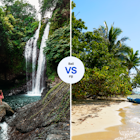
Jul 10, 2024 • 7 min read

Jul 9, 2024 • 3 min read

Jun 11, 2024 • 5 min read

Apr 29, 2024 • 6 min read
- Skip to main content
- Skip to "About this site"
Language selection
Search travel.gc.ca.
Help us to improve our website. Take our survey !
COVID-19: travel health notice for all travellers
Indonesia travel advice
Latest updates: Health – editorial update
Last updated: September 9, 2024 16:09 ET
On this page
Safety and security, entry and exit requirements, laws and culture, natural disasters and climate, indonesia - exercise a high degree of caution.
Exercise a high degree of caution in Indonesia due to political and social tensions and the threat of terrorism throughout the country.
Indonesian Papua - Avoid non-essential travel
Avoid non-essential travel to all the provinces of Indonesia Papua due to the regular occurrence of violent incidents, threats made against foreigners by militant groups and risk of kidnapping.
Back to top
Political demonstrations across Indonesia
Since August 22, 2024, there are ongoing demonstrations and violent clashes between protesters and security forces in Jakarta and other cities across Indonesia.
More information on demonstrations
- Indonesian Papua
Political tension and regular violent incidents continue to occur in Indonesian Papua.
In February 2023, militant groups threatened to attack and take hostages, specifically referencing foreigners. You may also face increased threats of violence or kidnapping if you travel to Indonesian Papua.
Labour disputes at the Freeport-McMoRan mine near Timika have led to demonstrations, public transportation disruptions and violence.
Fatal attacks have occurred on roads near the mine. Foreigners have been targeted by local militants.
There is a heightened police and military presence in this area.
There is a threat of terrorism in Indonesia.
While effective counterterrorism measures by Indonesian authorities are in place, terrorist cells are active and have the capacity to carry out attacks throughout the country.
Attacks have targeted:
- military and government facilities
- tourist attractions and popular public places
- nightclubs and entertainment venues
- public transportation
Further attacks are likely, and terrorists may also target:
- crowded places
- places with high pedestrian traffic and where foreigners may gather
- commercial establishments
- local government offices
- public transit stations
- busy streets
- long lineups at tourist attractions
- places of worship
Stay at hotels that have robust security measures, including metal detectors, guards and security cameras. Keep in mind, however, that even the most secure locations cannot be considered completely free of risk.
Be particularly vigilant during religious holidays and other public celebrations, as terrorists have used such occasions to mount attacks.
- Always be aware of your surroundings when in public places and identify ways to leave the area in case of emergency
- Monitor local media
- Follow the instructions of the local authorities
Violent crime
Violent crime, such as armed robberies, occurs regularly. Be particularly cautious on the road from Banda Aceh to Medan, where armed robberies have occurred.
Foreigners travelling alone and those travelling at night are at particular risk.
Standards of police services differ considerably from those in Canada.
- Avoid showing signs of affluence
- Ensure that your personal belongings, including your passport and other travel documents, are secure at all times
- If you’re travelling by car, keep valuable belongings out of sight, windows closed and doors locked
Petty crime
Petty crime, such as pickpocketing and purse snatching, occurs throughout Indonesia, specifically in tourist areas, such as Bali and Lombok. Criminals sometimes force people to withdraw cash from ATMs.
Merchants don’t always honour pricing agreements. Use good judgment in engaging services of tourist guides, especially in places that tourists rarely visit.
There is a threat of kidnapping, particularly in the provinces of Indonesian Papua and Aceh province. Foreign travellers have been kidnapped and killed. Terrorist groups have also kidnapped tourists in East and West Kalimantan.
- Be extra vigilant if travelling in these areas
- Avoid travelling alone and after dusk
- Use varied routes and schedules when moving from one place to another
Women's safety
Women travelling alone may face some forms of harassment and verbal abuse.
Advice for women travellers
Demonstrations
Demonstrations take place from time to time. Even peaceful demonstrations can turn violent at any time. They can also lead to disruptions to traffic and public transportation. Security forces may use tear gas and water cannons to disperse crowds and prevent vandalism.
- Avoid areas where demonstrations and large gatherings are taking place
- Follow the instructions of local authorities
- Monitor local media for information on ongoing demonstrations
Mass gatherings (large-scale events)
Political and social tension
There are long-standing sectarian and social tensions throughout Indonesia, particularly in the provinces of:
- Central Sulawesi, in Palu, Poso and Tentena
- Maluku, especially in Ambon
Sectarian violence targeting civilians has occurred. The potential for violence remains, despite ongoing security operations efforts from local authorities. Be aware of your surroundings.
There is a very high rate of credit and debit card fraud in Indonesia, including online fraud.
When using debit or credit cards:
- pay careful attention if other people are handling your cards
- use ATMs located in public areas or inside a bank or business
- avoid using card readers with an irregular or unusual feature
- cover the keypad with one hand when entering your PIN
- check for any unauthorized transactions on your account statements
Romance scams
If you’re travelling to Indonesia to meet someone you’ve only met online, keep it mind that you may be the victim of a scam. Be wary of unsolicited emails or requests for a wire transfer.
Don’t send money to someone you have never met in person.
Overseas fraud
Spiked food and drinks
Even if the wrapping or container appears intact, snacks, beverages, gum and cigarettes may contain drugs that could put you at risk of sexual assault and robbery.
- Be wary of accepting these items from new acquaintances
- Never leave food or drinks unattended or in the care of strangers
People have died after drinking methanol-adulterated alcohol. Counterfeits of well-known alcohol brands often contain dangerous amounts of methanol. Poisoning incidents have happened at hotels, bars, and shops in tourist areas like Bali, Lombok, the Gili Islands and Sumatra.
- Be cautious if you choose to drink alcohol
- Be wary of lesser-known or illegal brands
- Avoid buying alcohol from individuals
- Seek medical assistance if you begin to feel sick
Alcohol, drugs and travel
Road safety
Road conditions and road safety vary greatly throughout the country. Driving conditions may be hazardous during the rainy season.
Road travel in Indonesia can be very challenging due to:
- reckless driving
- perilous road conditions
- inadequate lighting
- poor signage
- high traffic congestion
If you plan to rent a car, consider hiring a driver.
Avoid driving after dark outside of major cities or major roads as some drivers do not use lights.
You may face mob anger if you are involved in an accident that causes serious injury. In such cases, remain in your vehicle and wait for a police officer to arrive.
Motorcycles and scooters
Motorcycle and scooter accidents are the main cause of death and serious injury among foreigners visiting many parts of Indonesia, including Bali.
Rental motorcycles are also often targeted and stolen. In such cases, you may have to pay the replacement cost for a new motorcycle.
Public transport
Public transport can be crowded and safety standards are poor. Many remote parts of Indonesia have poor transportation networks.
Crashes involving overcrowded buses are common. Large buses are generally available only on Java. Minibuses are available elsewhere.
If you choose to travel by bus,
- keep in mind that minibus drivers may try to overcharge foreigners
- keep your belongings secure due to pickpocketing
The condition of taxis varies. Foreign travellers using taxis have been victims of armed robbery, either by the driver or other passengers.
- Pre-arrange transportation with a safe and reliable taxi company
- Only use a taxi company whose vehicles are equipped with a meter
- Never enter a cab if it already has one or more passengers
- Don’t hail taxis off the street and avoid using unmarked taxi services
Reliable taxis are available from Bluebird, Thunderbird and Express. Be careful of “lookalike” taxis from competitors.
Ferry accidents are common and are often caused by poor safety practices or extreme weather conditions.
If you choose to travel by ferry:
- make sure the vessel you are boarding is carrying appropriate safety equipment and that life jackets are provided for all passengers and accessible at all times
- don’t board vessels that appear overloaded or unseaworthy
- verify the safety standards of ferries with your tour operator
We do not make assessments on the compliance of foreign domestic airlines with international safety standards.
Information about foreign domestic airlines
Every country or territory decides who can enter or exit through its borders. The Government of Canada cannot intervene on your behalf if you do not meet your destination’s entry or exit requirements.
We have obtained the information on this page from the Indonesian authorities. It can, however, change at any time.
Verify this information with the Foreign Representatives in Canada .
Entry requirements vary depending on the type of passport you use for travel.
Before you travel, check with your transportation company about passport requirements. Its rules on passport validity may be more stringent than the country’s entry rules.
Regular Canadian passport
Your passport must be valid for at least 6 months beyond the date of entry into Indonesia and must contain at least one blank page for the placement of the Indonesian visa or entry stamp.
Passport for official travel
Different entry rules may apply.
Official travel
Passport with “X” gender identifier
While the Government of Canada issues passports with an “X” gender identifier, it cannot guarantee your entry or transit through other countries. You might face entry restrictions in countries that do not recognize the “X” gender identifier. Before you leave, check with the closest foreign representative for your destination.
Other travel documents
Different entry rules may apply when travelling with a temporary passport or an emergency travel document. Before you leave, check with the closest foreign representative for your destination.
Useful links
- Foreign Representatives in Canada
- Canadian passports
Tourist visa: required Business visa: required Social-cultural visit visa: required
Indonesia strictly enforces its immigration and visa requirements. Foreign travellers have been detained in immigration detention centres for visa violations or overstays. Those in violation may be subject to substantial fines and deportation.
A round-trip or onward airline ticket is required to obtain all types of visas.
Tourist visa
If you are travelling for tourism with a regular Canadian passport, you may obtain a visa in advance or on arrival at select points of entry.
Business and social-cultural visas
If you are travelling to Indonesia for business or social-cultural purposes (e.g. volunteer work), you must obtain a visa prior to your arrival. You must provide a letter from both the sponsoring organization in Indonesia and the sending organization in Canada to obtain your visa.
A business or social-cultural single-entry visa is extendable from within Indonesia.
Aid workers
Aid workers must have a sponsor in Indonesia to obtain a visa. Those going to Aceh also require prior authorization from the Directorate General of Immigration in Aceh or Jakarta.
Journalists
Journalists visiting Indonesia for reporting and filming purposes must obtain authorization from the Directorate General of Immigration in Jakarta before applying for a visa.
Directorate General of Immigration – Ministry of Law and Human Rights of Indonesia
Restricted areas
You must obtain a permit to travel to Indonesian Papua.
Entry regulations and permission to remain in Indonesian Papua may change at any time.
Other entry requirements
Love bali tourist levy.
Tourists entering Bali are subject to the Love Bali Tourist Levy. This fee will is in addition to the visa fees paid to enter Indonesia.
If your are travelling to Bali, you must pay directly through the levy website.
Levy for Foreign Tourists – Provincial Government of Bali
SATUSEHAT Health Pass Form
To enter Indonesia, you must fill out the SATUSEHAT Health Pass (SSHP) form. This is an electronic health declaration that you must complete before you check in for your flight to Indonesia. Once you have submitted the SSHP form, you’ll receive a barcode. Save or print out a copy of the barcode for Indonesian authorities to scan upon arrival.
SATUSEHAT Health Pass – Ministry of Health of the Republic of Indonesia
Customs officials may ask you to show them a return or onward ticket and proof of sufficient funds to cover your stay.
- Children and travel
Learn more about travelling with children .
Yellow fever
Learn about potential entry requirements related to yellow fever (vaccines section).
Relevant Travel Health Notices
- Global Measles Notice - 13 March, 2024
- Zika virus: Advice for travellers - 31 August, 2023
- COVID-19 and International Travel - 13 March, 2024
- Polio: Advice for travellers - 20 August, 2024
- Dengue: Advice for travellers - 9 September, 2024
This section contains information on possible health risks and restrictions regularly found or ongoing in the destination. Follow this advice to lower your risk of becoming ill while travelling. Not all risks are listed below.
Consult a health care professional or visit a travel health clinic preferably 6 weeks before you travel to get personalized health advice and recommendations.
Routine vaccines
Be sure that your routine vaccinations , as per your province or territory , are up-to-date before travelling, regardless of your destination.
Some of these vaccinations include measles-mumps-rubella (MMR), diphtheria, tetanus, pertussis, polio, varicella (chickenpox), influenza and others.
Pre-travel vaccines and medications
You may be at risk for preventable diseases while travelling in this destination. Talk to a travel health professional about which medications or vaccines may be right for you, based on your destination and itinerary.
Yellow fever is a disease caused by a flavivirus from the bite of an infected mosquito.
Travellers get vaccinated either because it is required to enter a country or because it is recommended for their protection.
- There is no risk of yellow fever in this country.
Country Entry Requirement*
- Proof of vaccination is required if you are coming from a country where yellow fever occurs.
Recommendation
- Vaccination is not recommended.
- Discuss travel plans, activities, and destinations with a health care professional.
- Contact a designated Yellow Fever Vaccination Centre well in advance of your trip to arrange for vaccination.
About Yellow Fever
Yellow Fever Vaccination Centre
* It is important to note that country entry requirements may not reflect your risk of yellow fever at your destination. It is recommended that you contact the nearest diplomatic or consular office of the destination(s) you will be visiting to verify any additional entry requirements.
There is a risk of hepatitis A in this destination. It is a disease of the liver. People can get hepatitis A if they ingest contaminated food or water, eat foods prepared by an infectious person, or if they have close physical contact (such as oral-anal sex) with an infectious person, although casual contact among people does not spread the virus.
Practise safe food and water precautions and wash your hands often. Vaccination is recommended for all travellers to areas where hepatitis A is present.
The best way to protect yourself from seasonal influenza (flu) is to get vaccinated every year. Get the flu shot at least 2 weeks before travelling.
The flu occurs worldwide.
- In the Northern Hemisphere, the flu season usually runs from November to April.
- In the Southern Hemisphere, the flu season usually runs between April and October.
- In the tropics, there is flu activity year round.
The flu vaccine available in one hemisphere may only offer partial protection against the flu in the other hemisphere.
The flu virus spreads from person to person when they cough or sneeze or by touching objects and surfaces that have been contaminated with the virus. Clean your hands often and wear a mask if you have a fever or respiratory symptoms.
Malaria is a serious and sometimes fatal disease that is caused by parasites spread through the bites of mosquitoes. There is a risk of malaria in certain areas and/or during a certain time of year in this destination.
Antimalarial medication may be recommended depending on your itinerary and the time of year you are travelling. Consult a health care professional or visit a travel health clinic before travelling to discuss your options. It is recommended to do this 6 weeks before travel, however, it is still a good idea any time before leaving. Protect yourself from mosquito bites at all times: • Cover your skin and use an approved insect repellent on uncovered skin. • Exclude mosquitoes from your living area with screening and/or closed, well-sealed doors and windows. • Use insecticide-treated bed nets if mosquitoes cannot be excluded from your living area. • Wear permethrin-treated clothing. If you develop symptoms similar to malaria when you are travelling or up to a year after you return home, see a health care professional immediately. Tell them where you have been travelling or living.
In this destination, rabies is commonly carried by dogs and some wildlife, including bats. Rabies is a deadly disease that spreads to humans primarily through bites or scratches from an infected animal. While travelling, take precautions , including keeping your distance from animals (including free-roaming dogs), and closely supervising children.
If you are bitten or scratched by a dog or other animal while travelling, immediately wash the wound with soap and clean water and see a health care professional. In this destination, rabies treatment may be limited or may not be available, therefore you may need to return to Canada for treatment.
Before travel, discuss rabies vaccination with a health care professional. It may be recommended for travellers who are at high risk of exposure (e.g., occupational risk such as veterinarians and wildlife workers, children, adventure travellers and spelunkers, and others in close contact with animals).
Polio (poliomyelitis) is an infectious disease that can be prevented by vaccination. It is caused by poliovirus type 1, 2 or 3. Circulating vaccine-derived poliovirus 2 (cVDPV2) is present in this country.
Polio is spread from person to person and through contaminated food and water. Infection with the polio virus can cause paralysis and death in individuals of any age who are not immune.
Recommendations:
- Be sure that your polio vaccinations are up to date before travelling. Polio is part of the routine vaccine schedule for children in Canada.
- One booster dose of the polio vaccine is recommended as an adult .
Measles is a highly contagious viral disease. It can spread quickly from person to person by direct contact and through droplets in the air.
Anyone who is not protected against measles is at risk of being infected with it when travelling internationally.
Regardless of where you are going, talk to a health care professional before travelling to make sure you are fully protected against measles.
Japanese encephalitis is a viral infection that can cause swelling of the brain. It is spread to humans through the bite of an infected mosquito. Risk is very low for most travellers. Travellers at relatively higher risk may want to consider vaccination for JE prior to travelling.
Travellers are at higher risk if they will be:
- travelling long term (e.g. more than 30 days)
- making multiple trips to endemic areas
- staying for extended periods in rural areas
- visiting an area suffering a JE outbreak
- engaging in activities involving high contact with mosquitos (e.g., entomologists)
Hepatitis B is a risk in every destination. It is a viral liver disease that is easily transmitted from one person to another through exposure to blood and body fluids containing the hepatitis B virus. Travellers who may be exposed to blood or other bodily fluids (e.g., through sexual contact, medical treatment, sharing needles, tattooing, acupuncture or occupational exposure) are at higher risk of getting hepatitis B.
Hepatitis B vaccination is recommended for all travellers. Prevent hepatitis B infection by practicing safe sex, only using new and sterile drug equipment, and only getting tattoos and piercings in settings that follow public health regulations and standards.
Coronavirus disease (COVID-19) is an infectious viral disease. It can spread from person to person by direct contact and through droplets in the air.
It is recommended that all eligible travellers complete a COVID-19 vaccine series along with any additional recommended doses in Canada before travelling. Evidence shows that vaccines are very effective at preventing severe illness, hospitalization and death from COVID-19. While vaccination provides better protection against serious illness, you may still be at risk of infection from the virus that causes COVID-19. Anyone who has not completed a vaccine series is at increased risk of being infected with the virus that causes COVID-19 and is at greater risk for severe disease when travelling internationally.
Before travelling, verify your destination’s COVID-19 vaccination entry/exit requirements. Regardless of where you are going, talk to a health care professional before travelling to make sure you are adequately protected against COVID-19.
Safe food and water precautions
Many illnesses can be caused by eating food or drinking beverages contaminated by bacteria, parasites, toxins, or viruses, or by swimming or bathing in contaminated water.
- Learn more about food and water precautions to take to avoid getting sick by visiting our eat and drink safely abroad page. Remember: Boil it, cook it, peel it, or leave it!
- Avoid getting water into your eyes, mouth or nose when swimming or participating in activities in freshwater (streams, canals, lakes), particularly after flooding or heavy rain. Water may look clean but could still be polluted or contaminated.
- Avoid inhaling or swallowing water while bathing, showering, or swimming in pools or hot tubs.
Travellers' diarrhea is the most common illness affecting travellers. It is spread from eating or drinking contaminated food or water.
Risk of developing travellers' diarrhea increases when travelling in regions with poor standards of hygiene and sanitation. Practise safe food and water precautions.
The most important treatment for travellers' diarrhea is rehydration (drinking lots of fluids). Carry oral rehydration salts when travelling.
Typhoid is a bacterial infection spread by contaminated food or water. Risk is higher among children, travellers going to rural areas, travellers visiting friends and relatives or those travelling for a long period of time.
Travellers visiting regions with a risk of typhoid, especially those exposed to places with poor sanitation, should speak to a health care professional about vaccination.
There is a risk of schistosomiasis in this destination. Schistosomiasis is a parasitic disease caused by tiny worms (blood flukes) which can be found in freshwater (lakes, rivers, ponds, and wetlands). The worms can break the skin, and their eggs can cause stomach pain, diarrhea, flu-like symptoms, or urinary problems. Schistosomiasis mostly affects underdeveloped and r ural communities, particularly agricultural and fishing communities.
Most travellers are at low risk. Travellers should avoid contact with untreated freshwater such as lakes, rivers, and ponds (e.g., swimming, bathing, wading, ingesting). There is no vaccine or medication available to prevent infection.
Insect bite prevention
Many diseases are spread by the bites of infected insects such as mosquitoes, ticks, fleas or flies. When travelling to areas where infected insects may be present:
- Use insect repellent (bug spray) on exposed skin
- Cover up with light-coloured, loose clothes made of tightly woven materials such as nylon or polyester
- Minimize exposure to insects
- Use mosquito netting when sleeping outdoors or in buildings that are not fully enclosed
To learn more about how you can reduce your risk of infection and disease caused by bites, both at home and abroad, visit our insect bite prevention page.
Find out what types of insects are present where you’re travelling, when they’re most active, and the symptoms of the diseases they spread.
There is a risk of chikungunya in this country. The level of risk may vary by:
The virus that causes chikungunya is spread through the bite of an infected mosquito. It can cause fever and pain in the joints. In some cases, the joint pain can be severe and last for months or years.
Protect yourself from mosquito bites at all times.
Learn more:
Insect bite and pest prevention Chikungunya
Zika virus is a risk in this country.
Zika virus is primarily spread through the bite of an infected mosquito. It can also be sexually transmitted. Zika virus can cause serious birth defects.
During your trip:
- Prevent mosquito bites at all times.
- Use condoms correctly or avoid sexual contact, particularly if you are pregnant.
If you are pregnant or planning a pregnancy, you should discuss the potential risks of travelling to this destination with your health care provider. You may choose to avoid or postpone travel.
For more information, see Zika virus: Pregnant or planning a pregnancy.
Lymphatic filariasis , also known as elephantiasis, is caused by filariae (tiny worms) spread to humans through the bite of an infected mosquito. It can cause a range of illnesses. Risk is generally low for most travellers. Protect yourself from mosquito bites. There is no vaccine available for lymphatic filariasis although drug treatments exist.
- In this country, dengue is a risk to travellers. It is a viral disease spread to humans by mosquito bites.
- Dengue can cause flu-like symptoms. In some cases, it can lead to severe dengue, which can be fatal.
- The level of risk of dengue changes seasonally, and varies from year to year. The level of risk also varies between regions in a country and can depend on the elevation in the region.
- Mosquitoes carrying dengue typically bite during the daytime, particularly around sunrise and sunset.
- Protect yourself from mosquito bites . There is no vaccine or medication that protects against dengue.
Animal precautions
Some infections, such as rabies and influenza, can be shared between humans and animals. Certain types of activities may increase your chance of contact with animals, such as travelling in rural or forested areas, camping, hiking, and visiting wet markets (places where live animals are slaughtered and sold) or caves.
Travellers are cautioned to avoid contact with animals, including dogs, livestock (pigs, cows), monkeys, snakes, rodents, birds, and bats, and to avoid eating undercooked wild game.
Closely supervise children, as they are more likely to come in contact with animals.
Human cases of avian influenza have been reported in this destination. Avian influenza is a viral infection that can spread quickly and easily among birds and in rare cases it can infect mammals, including people. The risk is low for most travellers.
Avoid contact with birds, including wild, farm, and backyard birds (alive or dead) and surfaces that may have bird droppings on them. Ensure all poultry dishes, including eggs and wild game, are properly cooked.
Travellers with a higher risk of exposure include those:
- visiting live bird/animal markets or poultry farms
- working with poultry (such as chickens, turkeys, domestic ducks)
- hunting, de-feathering, field dressing and butchering wild birds and wild mammals
- working with wild birds for activities such as research, conservation, or rehabilitation
- working with wild mammals, especially those that eat wild birds (e.g., foxes)
All eligible people are encouraged to get the seasonal influenza shot, which will protect them against human influenza viruses. While the seasonal influenza shot does not prevent infection with avian influenza, it can reduce the chance of getting sick with human and avian influenza viruses at the same time.
Person-to-person infections
Stay home if you’re sick and practise proper cough and sneeze etiquette , which includes coughing or sneezing into a tissue or the bend of your arm, not your hand. Reduce your risk of colds, the flu and other illnesses by:
- washing your hands often
- avoiding or limiting the amount of time spent in closed spaces, crowded places, or at large-scale events (concerts, sporting events, rallies)
- avoiding close physical contact with people who may be showing symptoms of illness
Sexually transmitted infections (STIs) , HIV , and mpox are spread through blood and bodily fluids; use condoms, practise safe sex, and limit your number of sexual partners. Check with your local public health authority pre-travel to determine your eligibility for mpox vaccine.
Tuberculosis is an infection caused by bacteria and usually affects the lungs.
For most travellers the risk of tuberculosis is low.
Travellers who may be at high risk while travelling in regions with risk of tuberculosis should discuss pre- and post-travel options with a health care professional.
High-risk travellers include those visiting or working in prisons, refugee camps, homeless shelters, or hospitals, or travellers visiting friends and relatives.
Medical services and facilities
Heath care is inadequate.
Most medical staff don’t speak English or French. You may have to pay in advance, in cash, to obtain medical services.
Medical evacuation can be very expensive and you may need it in case of serious illness or injury.
Make sure you get travel insurance that includes coverage for medical evacuation and hospital stays.
Health and safety outside Canada
You must abide by local laws.
Learn about what you should do and how we can help if you are arrested or detained abroad .
Overview of the criminal law system in Indonesia
Penalties for possession, use or trafficking of illegal drugs are severe. Convicted offenders can expect long jail sentences. They can also be detained for long periods, without the possibility of release on bail, while police conduct investigations prior to prosecution.
Police have arrested tourists after random drug testing throughout the country.
Drugs, alcohol and travel
Some prescription and over-the-counter medications that are legal in Canada, such as those containing morphine and codeine, are classified as controlled substances in Indonesia. It’s illegal to bring them into the country, even in small quantities, without prior permission from the Indonesian Ministry of Health and the required documentation.
If you attempt to bring banned pharmaceuticals into Indonesia without prior authorization and proper documentation, Indonesian authorities may confiscate them. You may also be subject to fines and imprisonment.
In some areas, Islamic practices and beliefs closely adhere to local customs, laws and regulations.
Religious police enforce sharia law in Aceh. Specific applications of sharia may differ by region and apply to non-Muslims as well.
Be aware of the relevant provisions specifically related to the region, regardless of your religion.
Dress and behaviour
To avoid offending local sensitivities:
- dress conservatively
- behave discreetly
- respect religious and social traditions
In 2025, the lunar month of Ramadan is expected to begin on or around February 28.
In public, between sunrise and sunset, be discreet when:
2SLGBTQI+ persons
Indonesian national law doesn't criminalize sexual acts or relationships between persons of the same sex. However, they are prohibited and punishable under local laws in some provinces.
In Aceh, Sharia law is enforced and sexual acts between Muslim individuals of the same sex is punished by caning. They could also face arrest under charges related to immoral behaviour, prostitution or social ills.
2SLGBTQI+ persons could be discriminated against based on their sexual orientation, gender identity, gender expression or sex characteristics.
2SLGBTQI+ persons should carefully consider the risks of travelling to Indonesia.
Travel and your sexual orientation, gender identity, gender expression and sex characteristics
Dual citizenship
Dual citizenship is not legally recognized in Indonesia.
If local authorities consider you a citizen of Indonesia, they may refuse to grant you access to Canadian consular services. This will prevent us from providing you with those services.
Indonesia allows minors to carry dual citizenship until the age of 18. After this time, they must choose between their Indonesian citizenship and foreign citizenship.
General information for travellers with dual citizenship
International Child Abduction
The Hague Convention on the Civil Aspects of International Child Abduction is an international treaty. It can help parents with the return of children who have been removed to or retained in certain countries in violation of custody rights. It does not apply between Canada and Indonesia.
If your child was wrongfully taken to, or is being held in Indonesia by an abducting parent:
- act as quickly as you can
- consult a lawyer in Canada and in Indonesia to explore all the legal options for the return of your child
- report the situation to the nearest Canadian government office abroad or to the Vulnerable Children's Consular Unit at Global Affairs Canada by calling the Emergency Watch and Response Centre
If your child was removed from a country other than Canada, consult a lawyer to determine if The Hague Convention applies.
Be aware that Canadian consular officials cannot interfere in private legal matters or in another country's judicial affairs.
- International Child Abductions: A guide for affected parents
- Canadian embassies and consulates by destination
- Request emergency assistance
Imports and exports
Local customs authorities may enforce strict regulations concerning temporary import or export of items such as audiovisual material.
Gambling is illegal in Indonesia.
Identification
You must carry adequate identification, such as your passport and your stay permit, at all times.
You may be detained and fined if you don’t have the original on you.
Traffic drives on the left.
You must carry an International Driving Permit along with your Canadian driver’s licence.
If you got your International Driving Permit outside of Indonesia, local authorities may ask to approve it.
If you’re involved in an accident, you must stop and exchange information with and provide assistance to other drivers.
- International Driving Permit registration – Traffic Police, Government of Indonesia (in Indonesian)
- More about the International Driving Permit
The currency is the rupiah (IDR).
Credit cards are not widely accepted outside of large urban centres and tourist areas.
Carry cash when visiting remote areas.
Climate change is affecting Indonesia. Extreme and unusual weather events are becoming more frequent. Indonesia is located in a very active seismic zone and is prone to natural disasters such as:
- earthquakes
- volcanic eruptions
Monitor local news to stay informed on the current situation.
Earthquakes and tsunamis
Each year, Indonesia experiences thousands of earthquakes. Some trigger tsunamis and cause significant damage. Deaths and injuries occasionally occur.
A tsunami can occur within minutes of a nearby earthquake. However, the risk of tsunami can remain for several hours following the first tremor. If you're staying on the coast, familiarize yourself with the region's evacuation plans in the event of a tsunami warning.
- Earthquakes - What to Do?
- Tsunami alerts - U.S. Tsunami Warning System
Indonesia has 129 active volcanoes and periodically experiences major volcanic events that can be dangerous, even life-threatening. Ash clouds can disrupt air travel, including on the island of Bali, and cause or worsen respiratory problems.
Active volcanoes are monitored to provide residents with an early warning should unusual activity occur. Local authorities can raise alert levels and order evacuations on short notice.
If you are near active volcanoes:
- take official warnings seriously and respect exclusion zones
- monitor local media to stay up-to-date on latest developments
- follow the advice of local authorities, including evacuation orders
- be prepared to modify your travel arrangements or even evacuate the area on short notice
- National Disaster Management Authority
- Map of active volcanoes in Indonesia – MAGMA Indonesia
Rainy season
The rainy season extends from November to March, but heavy rains are common throughout the year. Flooding and landslides can occur with little warning, especially in remote areas where extensive deforestation is common, but also in major cities, including Jakarta. Such incidents have led to fatalities and destruction of property.
Seasonal flooding can hamper overland travel and reduce the provision of essential services. Roads may become impassable and bridges damaged.
- Be aware of health risks associated with flood waters
- Keep informed of regional weather forecasts as well as road closures or detours
- Avoid disaster areas
- Follow the advice of local authorities
Tornadoes, cyclones, hurricanes, typhoons and monsoons
Air pollution
Unrestricted burning in Sumatra and Kalimantan sometimes causes air pollution to rise to unhealthy levels, especially from June to October.
Monitor air pollution levels closely, as they change quickly.
During periods of high pollution:
- limit your activities outdoors
- monitor local media
- follow the instructions of local authorities
Local services
In case of emergency, dial 110 for police.
Research and carry contact information for local medical facilities.
Consular assistance
Timor-Leste
There is no Canadian government office in Bali. You can obtain consular assistance from the Australian Consulate General of Australia, in Bali, under the Canada-Australia Consular Services Sharing Agreement.
Sign up to receive email updates from the Australian government on situations and events that could affect your safety while in Bali.
Smartraveller - Australian travel advice
For emergency consular assistance, call the Embassy of Canada to Indonesia, in Jakarta, and follow the instructions. At any time, you may also contact the Emergency Watch and Response Centre in Ottawa.
The decision to travel is your choice and you are responsible for your personal safety abroad. We take the safety and security of Canadians abroad very seriously and provide credible and timely information in our Travel Advice to enable you to make well-informed decisions regarding your travel abroad.
The content on this page is provided for information only. While we make every effort to give you correct information, it is provided on an "as is" basis without warranty of any kind, expressed or implied. The Government of Canada does not assume responsibility and will not be liable for any damages in connection to the information provided.
If you need consular assistance while abroad, we will make every effort to help you. However, there may be constraints that will limit the ability of the Government of Canada to provide services.
Learn more about consular services .
Risk Levels
take normal security precautions.
Take similar precautions to those you would take in Canada.
Exercise a high degree of caution
There are certain safety and security concerns or the situation could change quickly. Be very cautious at all times, monitor local media and follow the instructions of local authorities.
IMPORTANT: The two levels below are official Government of Canada Travel Advisories and are issued when the safety and security of Canadians travelling or living in the country or region may be at risk.
Avoid non-essential travel
Your safety and security could be at risk. You should think about your need to travel to this country, territory or region based on family or business requirements, knowledge of or familiarity with the region, and other factors. If you are already there, think about whether you really need to be there. If you do not need to be there, you should think about leaving.
Avoid all travel
You should not travel to this country, territory or region. Your personal safety and security are at great risk. If you are already there, you should think about leaving if it is safe to do so.

Search Smartraveller

Latest update
Exercise a high degree of caution in Indonesia overall due to security risks.
Higher levels apply in some areas.

Indonesia (PDF 699.19 KB)
Asia (PDF 2.29 MB)
Local emergency contacts
Fire services, ambulance and rescue services, medical emergencies.
Call 110 or 112.
Tourist Police, Bali
Call (+0361) 759 687.
Tourist Police, Jakarta
Call (+201) 526 4073.
Advice levels
Exercise a high degree of caution in Indonesia overall.
Reconsider your need to travel to the provinces of Papua (Papua), Papua Highlands (Papua Pegunungan), Central Papua (Papua Tengah) and South Papua (Papua Selatan).
Reconsider your need to travel to the provinces of Papua, Papua Pegunungan, Papua Tengah and Papua Selatan due to the risk of serious security incidents or demonstrations that may turn violent.
- There's an ongoing risk of terrorist attack in Indonesia. Be alert to possible threats. Take official warnings seriously and follow the advice of local authorities. Popular tourist areas may be the target of terrorist attacks.
- Public protests and events that draw large groups of people occur regularly and can turn violent with little notice. Expect traffic delays and restricted access to locations if there are protests. Avoid protests and demonstrations and monitor local media for the latest updates.
- There's been tension, including demonstrations and violence, in towns within the provinces of Papua, Papua Pegunungan, Papua Tengah and Papua Selatan in recent years. Armed groups have stated that they're targeting foreigners, including Australians. Our ability to provide consular support in these provinces is limited. Armed groups have killed a foreign pilot and shot at aircraft, including commercial planes, in remote airports in Papua Pegunungan and Papua Tengah provinces.
- Many of Indonesia's volcanoes are active and can erupt without warning. Adhere to exclusion zones around volcanoes, which can change at short notice, and follow the advice of local authorities. Domestic and international flights can be disrupted. Monitor Indonesia's Volcano Observatory Notice for the latest volcanic activity (Bahasa Indonesia and English), Global Disaster Alert and Coordination System and the Volcanic Ash Advisory Centre for updates.
- Petty and violent crime occurs in Indonesia. Opportunistic crime, such as pickpocketing occurs. Drinks may be spiked or mixed with toxic substances. Crimes involving taxis and taxi drivers occur. Solo women are at higher risk. Be alert in taxis, public transport, crowds, bars and nightclubs.
- Legal disputes over real estate are common, including in Bali. Before entering into an agreement or providing financial details, do your research and get legal advice.
- Natural disasters such as severe weather, floods, landslides, earthquakes, volcanic eruptions and tsunamis occur regularly. Weather conditions can change quickly during the wet season (October – April). Regularly check weather reports, monitor media and speak to your travel provider before continuing with planned activities. Follow the advice of local authorities.
- When undertaking adventure activities, ensure that functioning safety equipment is available, that you have travel insurance and that your policy covers you for these activities.
Full travel advice: Safety
- Before entering Indonesia, you need to complete an electronic health declaration form called the SATUSEHAT Health Pass . You can complete the form online before you check-in for your flight to Indonesia. After completing the form, a barcode containing your health and travel history will appear. Indonesian authorities will scan the barcode on arrival in Indonesia. Save your barcode, or bring a printed copy with you to ensure authorities can scan it on arrival. If you have Mpox symptoms you may be referred to a hospital for treatment on arrival.
- The standard of medical facilities in Indonesia is generally lower than in Australia. Many regional hospitals only provide basic facilities.
- Some medications, including prescription medications, drugs for attention deficit hyperactivity disorder (ADHD), all cannabis-based products including medicinal cannabis, cannabis-based oils and creams, hemp-based products, CBD, THC, hash and edibles, are illegal in Indonesia. Harsh penalties, such as arrest and jail time, can apply even if you have a prescription. Make sure your medication is legal in Indonesia .
- Purchasing prescription medication online or over the counter in Indonesia without an Indonesian prescription is illegal. Ensure you provide a valid prescription from an Indonesian doctor before purchasing prescription medication and confirm that it's accepted by the seller before your purchase.
Full travel advice: Health
- Indonesia has revised its criminal code, which includes penalties for cohabitation and sex outside of marriage. These revisions will not come into force until January 2026.
- Penalties for drug offences include heavy fines, long prison sentences and the death penalty. Police target tourist destinations.
- Some medications are illegal in Indonesia. Harsh penalties can apply even if you have a prescription. It is also illegal to purchase prescription medications online or over the counter without an Indonesian prescription. Ensure you have a valid Indonesian prescription. See ' Health '.
The death penalty exists for some crimes in Indonesia.
- Standards of dress and behaviour are conservative in many parts of Indonesia. Learn about local customs. Take care not to offend.
- Aceh province upholds aspects of sharia law. Sharia law applies to everyone, including travellers. Inform yourself about the laws, and be careful not to offend or break local laws. If in doubt, seek local advice.
Full travel advice: Local laws
- Before entering Indonesia, you need to complete an electronic health declaration form called the SATUSEHAT Health Pass . You can complete the form online before you check-in for your flight to Indonesia. After completing the form, a barcode containing your health and travel history will appear. Indonesian authorities will scan the barcode on arrival in Indonesia. Save your barcode, or bring a printed copy with you to ensure authorities can scan it on arrival. If you have Mpox symptoms you may be referred to a hospital for treatment on arrival (See 'Health').
- The Bali Provincial Government has introduced a tourist levy of IDR 150,000 per person to foreign tourists entering Bali. The tourist levy is separate from the e-Visa on Arrival or the Visa on Arrival. Cashless payments can be made online prior to travel or on arrival at designated payment counters at Bali's airport and seaport. See the Bali Provincial Government's official website and FAQs for further information.
- If you're travelling to Indonesia for tourism, official government duties or business meetings, you can apply for an e-Visa on Arrival (e-VOA) online at least 48 hours before your travel to Indonesia. This also applies if you're transiting through Indonesia at international airports, seaports and land crossings. You can get a Visa on Arrival (VOA) at some international airports, seaports or land crossings.
- To apply for the e-VOA or VOA, you must have an ordinary (non-emergency) passport with at least 6 months of validity from the date you plan to enter (we also recommend having at least 6 months of passport validity from the date you plan to leave Indonesia, to avoid any issues for your departure or onward travel) and a return or onward flight booking to another country.
- You may need to apply for a visa in advance to enter Indonesia for purposes not covered by the e-VOA or VOA. Check the latest entry requirements with your travel provider or an Embassy or Consulate of Indonesia before travel. Entry, exit and transit conditions can change at short notice, including to Bali and Jakarta by air, land or sea. Contact your travel provider and monitor media for the latest updates.
- You'll be required to complete an e-customs declaration for arrival. You can complete this within 3 days of departure to Indonesia.
Full travel advice: Travel
Local contacts
- The Consular Services Charter tells you what the Australian Government can and can't do to help when you're overseas.
- For consular help, contact the Australian Embassy, Jakarta , the Australian Consulate-General, Bali , the Australian Consulate-General, Makassar or the Australian Consulate-General, Surabaya .
- To stay up to date with local information, follow the Embassy's social media accounts.
Full travel advice: Local contacts
Full advice
The terrorist threat in Indonesia is ongoing. Attacks could happen anywhere and anytime. This includes places that foreigners visit.
Be alert to possible threats. Take official warnings seriously and follow the advice of local authorities. Remain respectful of religious and local customs.
Indonesian authorities continue to investigate and disrupt terrorist groups in Indonesia, including Bali.
Terrorist attacks are motivated by extreme beliefs. Both local grievances as well as events in other parts of the world could motivate extremists in Indonesia towards violence.
Recent terrorist attacks
In December 2022, an explosion occurred at a police station in Bandung, Jawa Barat, killing 2 and injuring 11.
In March 2021, 2 suicide bombers attacked a church in Makassar, injuring dozens.
In the past, police have said that terrorist suspects remain at large and may seek Western targets.
Indonesian security agencies continue to conduct operations against terrorist groups.
Terrorists in Indonesia may carry out small-scale violent attacks with little or no warning.
Be alert in places of worship, especially during periods of religious significance.
Terrorists have targeted places of worship in:
As well as places of worship, other possible targets by terrorists include:
- Indonesian government facilities, premises and symbols associated with the Indonesian Government
- police stations and checkpoints
- bars, nightclubs, cafes and restaurants
- cinemas and theatres
- shopping centres, public transport and transport hubs
- airports and airlines
- clubs, including sporting clubs
- tourist areas and attractions, tour buses and tour groups
- outdoor recreation events
Supporters have committed additional acts of violence in response to high-profile extremists being detained or killed.
To protect yourself during a terrorist attack:
- leave the area as soon as it's safe
- follow the advice of local authorities
- don't gather in a group after an attack
- don't gather in a group if you're evacuated from a building
Security remains at a high level at:
- the Australian Embassy in Jakarta
- the Consulates-General in Bali, Makassar and Surabaya
More information:
Civil unrest and political tension
Most events are announced before they happen; however, protests may occur with little or no notice.
Protests and events are often held near major government buildings and embassies in Jakarta, including the Australian Embassy.
Protests may also occur at any of Australia's Consulates-General in Surabaya, Bali and Makassar, at government buildings, or the offices of international organisations in Indonesia.
You can expect traffic delays and restricted access to locations if there are protests.
Phone or email ahead for an appointment before going to the Embassy or the Consulates-General (see Local contacts ).
Demonstrations and acts of violence can happen when courts try and sentence extremists.
Conflict between different communities can sometimes occur, including in the provinces of Papua, Papua Pegunungan, Papua Tengah and Papua Selatan. Our ability to provide consular support in these provinces is limited.
Local violence can also be directed at minority groups in other parts of Indonesia, including in Java.
If you're found to endanger security or public order, you may be prosecuted under Indonesia's Immigration laws, which may result in imprisonment or deportation.
To protect yourself from possible violence:
- avoid protests and demonstrations
- monitor local media for the latest security updates
- plan your activities to avoid potential unrest on significant dates
- be prepared to change your travel plans
- Demonstrations and civil unrest
Armed conflict
The provinces of Papua, Papua Pegunungan, Papua Tengah and Papua Selatan experience regular violent clashes involving armed groups, civilians, Indonesian police, and the military. Armed groups have stated that they are targeting foreigners, including Australians. Our ability to provide consular support in these provinces is limited.
Many people have been killed and injured in clashes. This includes members of security forces, armed groups and civilians. Violent attacks have occurred in several areas of these provinces, including in and around Jayapura. There's a risk of more attacks.
In February 2023, a riot broke out in Wamena, Papua Pegunungan, when a crowd attacked Indonesian security personnel following the arrest of two people accused of child kidnapping. 12 civilians and rioters were killed.
Violent attacks have occurred around the Freeport Mine in Papua Tengah.
Armed groups have:
- killed a New Zealand helicopter pilot in Mimika, Papua Tengah
- taken a New Zealand pilot hostage in Paro, Papua Pegunungan
- shot at aircraft, including commercial planes, at Beoga airport in Papua Tengah province and Nop Goliat Dekai airport in Papua Pegunungan province
- killed people in attacks, including one Australian
- attacked vehicles using the road between Grasberg and Timika
- killed people in violent attacks in Puncak Jaya District, Papua Tengah
- more attacks are possible and could target infrastructure and national institutions.
A range of crimes, including violent crime, occur in Indonesia. Crimes can happen in popular tourist locations in Bali.
To protect yourself from crime:
- be aware of your surroundings
- be alert in crowds
- understand the potential crime risks
Theft, robbery and bag and phone snatching have occurred. These crimes can sometimes involve violence. Opportunistic crime such as pickpocketing occurs.
Be careful of thieves:
- on motorcycles targeting pedestrians
- in upmarket shopping malls
- in crowded public transport
- at traffic lights targeting people in stopped cars
- at bars and nightclubs
- when entering accommodation, including villas in Bali
Keep bags and valuables out of sight in vehicles.
If you're travelling on foot, walk:
- on footpaths
- away from the curb
- with your bag held away from traffic
Sexual assault
If you're a victim of sexual assault :
- get immediate medical assistance. If you have any doubts about seeking medical assistance after a sexual assault, contact your nearest Australian Embassy or Consulate in Indonesia (see Local contacts ) as quickly as possible.
- make a full statement to local police, in person, so they can conduct a criminal investigation. You may wish to seek consular help before you visit the police station. Contact your nearest Australian Embassy or Consulate (see Local contacts ).
Local police can only investigate a crime after you've left Indonesia if you've reported it.
Your sworn statement, or statements by witnesses, can be used as evidence in criminal court proceedings.
You don't always need to be in Indonesia for trial. Neither do witnesses who live outside of Indonesia.
Counselling support
Should you wish to speak to a counsellor, you can call the 24-hour Consular Emergency Centre on +61 2 6261 3305 or contact your nearest Australian Embassy or Consulate (see Local contacts ). They can connect you to counselling hotlines and services.
- Reducing the risk of sexual assault
Bars and nightclubs
Be alert in bars and nightclubs. Drink-spiking and snatching of valuables may occur if you're not alert.
Drinks may be contaminated with drugs or toxic substances. See Health .
Don't leave your food or drinks unattended.
Never accept drinks, food, gum, cigarettes, vapes or e-cigarettes from people you've just met.
- Partying safely
Credit card and ATM fraud
Credit card, online banking and ATM fraud occurs in Indonesia.
Check your bank statements.
Make sure your bank doesn't block your cards. Tell your bank you'll be visiting Indonesia.
Never let your card out of your sight. This includes when you pay in restaurants.
Shield your PIN from sight.
Some vendors install hidden cameras and use card skimmers.
Don’t click on unknown links in WhatsApp or mobile phone text messages, particularly if your phone is linked to mobile banking.
Use ATMs at controlled and secure places, such as:
- shopping centres
Scams and confidence tricks
Beware of scams and confidence tricks.
Only exchange money at authorised money changers. Authorised money changers can also be found on the Bali Foreign Exchange website . Unauthorised money changers have been known to scam foreign tourists in Bali and elsewhere.
All types of gambling are illegal in Indonesia.
Australians have lost large sums of money in card game scams run by organised gambling gangs, particularly in Bali. See Local laws
Some tourists have been robbed or planted with drugs after taking new acquaintances back to their hotel rooms. In some cases, their drinks were spiked.
Legal disputes over the purchase of real estate are common, including in Bali, involving:
- holiday clubs and resorts
- timeshare schemes
Before entering into an agreement or providing financial details:
- thoroughly research the proposal
- get legal advice and know your rights, especially before you sign any documents
Using taxis
Only use licensed official metered taxis. Crimes involving unregistered taxis include:
- taxis departing before the passenger can take their baggage from the vehicle
- taxi drivers robbing or temporarily holding passengers, including in urban areas
- taxi drivers forcing passengers to withdraw money at ATMs before releasing them
Lone female travellers are at higher risk of crime.
If you're in an incident involving a taxi, leave the taxi and the immediate area if it's safe to do so.
To protect yourself from overcharging and scams:
- only travel in licensed taxis with signage, a "taxi" roof sign and meters working
- ensure the driver's identification card is visible
- book via your phone, on an official taxi company mobile app, from inside an airport, or at stands at major hotels
See Travel .
Cyber security
You may be at risk of cyber-based threats during overseas travel to any country. Digital identity theft is a growing concern. Your devices and personal data can be compromised, especially if you're connecting to Wi-Fi, using or connecting to shared or public computers, or to Bluetooth.
Social media can also be risky in destinations where there are social or political tensions, or laws that may seem unreasonable by Australian standards. Travellers have been arrested for things they have said on social media. Don't comment on local or political events on your social media.
- Cyber security when travelling overseas
Kidnapping occurs across the world with political, ideological and criminal motives. Foreigners, including Australians, have been kidnapped overseas while travelling. Kidnaps can happen anywhere, anytime, including destinations that are typically at lower risk.
On 5 August, a New Zealand helicopter pilot was killed by an armed group in Alama District, Mimika Regency, Papua Tengah. In February 2023, a New Zealand pilot was taken hostage by an armed group in Paro, Papua Pegunungan.
The Australian Government's longstanding policy is that it doesn't make payments or concessions to kidnappers.
Adventure activities
Many businesses don't follow safety and maintenance standards. This includes transport and tour operators, water sports providers, hotels, restaurants and shops.
It may affect adventure activities, such as:
- bungee jumping
- scuba diving and snorkelling
- chairlift or gondola rides
In the past, Australians have been seriously injured or died while participating in adventure activities. If you require intensive care medical treatment, emergency surgery or medical evacuation. The Australian Government won't pay for these costs.
If you plan to do an adventure activity :
- check if your travel insurance policy covers it
- ask about safety, search and rescue procedures
- ask about and insist on minimum safety requirements
- always use available safety gear, such as life jackets or seatbelts
- check with your travel provider on vessel capacity limits before embarking on sea, land or air travel
- check weather and ocean conditions, and whether the vessel has had any mechanical issues, on the day and before continuing with water activities or sea travel
- check where the nearest medical facilities are
If proper safety equipment isn't available or you're unsure of the provider's safety or maintenance procedures, use another provider.
Trekking and climbing
Some mountain treks suit only experienced climbers. Travel with a guide and check the level of difficulty beforehand.
Many trekking options may be on or around an active volcano. Many of Indonesia's volcanoes are active and can erupt without warning. Volcanic and seismic activity may continue for some time. Adhere to exclusion zones around volcanoes, which can change at short notice, and follow the advice of local authorities. If you're planning to travel to an area near an active volcano, check with local authorities before climbing and check:
- Bureau of Meteorology Volcanic Ash Advisory Centre
- MAGMA Indonesia (Bahasa Indonesia) for daily updates on status and alert levels
- National Disaster Management Authority (BNPB) (Bahasa Indonesia)
- Global Disaster Alert and Coordination System
Swimming safety
People have drowned in coastal areas, including in Bali, due to rough seas, strong currents, or from swimming, snorkelling or scuba diving in areas where there is frequent passage of boats, resulting in collisions.
Local beach rescue services may not be of the same standard as in Australia.
Saltwater crocodiles are in rivers throughout Indonesia. Avoid swimming around river estuaries and seek local advice in other locations.
If you plan to spend time in or on the water:
- regularly check weather reports as sea conditions can change rapidly
- take warnings seriously
- check media and local sources for information about potential dangers
- speak to your travel provider about safety equipment and weather conditions before continuing with planned activities
- take a friend or family member with you when you undertake swimming or water activities
- be careful when swimming, snorkelling or scuba diving near motor-powered boats or where there is frequent passage of boats
- ensure you have travel insurance and that your policy covers you for planned activities
Ensure you have travel insurance and that your policy covers you for planned activities.
Climate and natural disasters
Indonesia experiences natural disasters and severe weather , including:
- landslides and mudslides
- volcanic eruptions
- earthquakes
- storms resulting in turbulent sea conditions
- tsunamis and high wave events
If there's a natural disaster or severe weather:
- always carry your passport in a waterproof bag
- keep in contact with family and friends
- check the media and local sources for information
- don't undertake sea, land or air travel if it's not safe to do so
- Indonesian Meteorology, Climatology and Geophysics Agency (BMKG) (English and Bahasa Indonesia)
- BMKG Multi-Hazard Early Warning System app (English and Bahasa Indonesia)
Floods and mudslides
Floods , landslides and mudslides occur regularly during the wet season from October to April, with some severe events resulting in injury, displacement, death or damaged infrastructure.
Heavy rains can cause significant flooding in urban areas, including the greater Jakarta region, causing disruption to transportation. Monitor the local media for updates.
Walking and driving in flooded areas can be dangerous. Flood waters may hide uncovered drainage ditches.
Volcanic activity may escalate with little or no notice, leading to flight disruptions and airport closures, including in surrounding provinces. Contact your airline for the latest flight information.
There are 147 volcanoes in Indonesia. 76 of them are active volcanoes and could erupt at any time.
Volcanic alert levels and exclusion zones may rise quickly. You may be ordered to evacuate at short notice. Volcanic activity can disrupt domestic and international flights. There are 4 volcano alert levels in Indonesia; 1 - normal, 2 - advisory, 3 - watch, 4 - warning.
Before you travel to areas that are prone to volcanic activity, monitor media and ensure you read the Indonesian Government's latest advice on current volcanic activity, including:
- Volcanic Activity Report by Indonesia's Multiplatform Application for Geohazard Mitigation and Assessment (MAGMA) (Bahasa Indonesia)
- Volcano Activity and Observatory Notices (English and Bahasa Indonesia)
- MAGMA Indonesia Map of Latest Volcano Levels and Climate Information (Bahasa Indonesia)
- Bureau of Meteorology's Volcanic Ash Advisory Centre
If there's volcanic activity:
- avoid the area
- take official warnings seriously and adhere to exclusion zones
- follow the instructions and advice of local authorities
- follow evacuation orders
- read our advice on Volcanic eruptions while travelling
Volcanic ash can cause breathing difficulties. The risk is higher for people with chronic respiratory illnesses, including:
Recent and frequent volcanic activity has included:
- Mount Ile Lewetolok in East Nusa Tenggara (Nusa Tenggara Timur)
- Mount Lewotobi Laki Laki in East Flores Regency, Nusa Tenggara Timur
- Mount Marapi in West Sumatra
- Mount Anak Krakatau, to the south of Sumatra
- Mount Merapi, near Yogyakarta
- Mt Dukono in North Sulawesi
- Mount Semeru, near Malang, East Java
- Mount Agung in Bali
- Mount Sinabung in North Sumatra
Some trekking routes are on or near active volcanoes, including Mount Agung and Mount Batur in Bali, Mount Marapi in West Sumatra, Mount Merapi near Yogyakarta, Mount Rinjani in Lombok, Mount Bromo and Mount Ijen in East Java. See 'Trekking and climbing'.
If you're planning to travel to an area near an active volcano, make sure you have comprehensive travel insurance and check if any restrictions apply.
If a volcanic eruption occurs:
- make a backup plan in case you're affected
- contact your airline or travel insurer to confirm flight schedules and get help
- keep in touch with family and friends
- Learn more about volcanic eruptions (Geoscience Australia)
- See practical advice and information about volcanic eruptions (US CDC)
- See worldwide volcanic activity reports in real-time (GDACS)
Earthquakes
Indonesia is in an active earthquake region. It has a high level of earthquake activity, that sometimes triggers tsunamis.
There are approximately 4,000 earthquakes across Indonesia every year. Around 70 to 100 of these are over 5.5 magnitude.
Earthquakes can cause death, injury and significant damage to infrastructure.
Strong earthquakes can occur anywhere in Indonesia. They are less common in Kalimantan and south-west Sulawesi.
To stay safe during an earthquake:
- know the emergency plans at your accommodation
- take precautions to avoid exposure to debris and hazardous materials, including asbestos
- MAGMA Indonesia (Bahasa Indonesia)
- Indonesia's Meteorology, Climatology and Geophysics Agency (Bahasa Indonesia) or BMKG Multi-Hazard Early Warning System app (English and Indonesia)
- Indonesia's Centre for Volcanology and Geological Disaster Mitigation (Bahasa Indonesia)
- US Federal Emergency Management Agency advice on what to do before, during and after an earthquake (English)
Forest fires and smoke haze
During the dry season in April to November, widespread forest fires can cause smoke haze resulting in poor air quality across parts of Indonesia, particularly the Riau Islands, central Sumatra and Kalimantan.
Smoke haze could affect your health and travel plans.
Keep up to date with local information and seek medical advice on appropriate precautions.
- ASEAN Regional Haze Situation
- Smartraveller advice on Bushfires
Tsunamis and high wave events
The Indian and Pacific Oceans experience more frequent, large and destructive tsunamis than other parts of the world.
There are many large earthquakes along major tectonic plate boundaries and ocean trenches.
High wave events can happen throughout coastal regions and between islands. They're caused by strong weather conditions and storms.
If you plan to surf, undertake water activities or travel by sea, check local conditions regularly.
If there’s a tsunami or high wave event:
- don't travel by sea if it's not safe to do so
- Indonesia Tsunami Early Warning Centre issues warnings when a potential tsunami with significant impact is expected
- Indonesia's Meteorology, Climatology and Geophysics Agency with the latest list of earthquakes with a magnitude greater than 5.0 on the Richter scale (Bahasa Indonesia) or BMKG Multi-Hazard Early Warning System app (English and Bahasa Indonesia)
- US Federal Emergency Management Agency page on what to do before, during and after an earthquake
Piracy occurs in the coastal areas of Indonesia.
The International Maritime Bureau (IMB) issues weekly piracy reports.
If you decide to travel by boat in these regions:
- check IMB piracy reports
- get local advice
- arrange security measures
- Travelling by boat
- Going on a cruise
- International Maritime Bureau
Travel insurance
Get comprehensive travel insurance before you leave.
Your policy needs to cover all overseas medical costs, including emergency treatment and medical evacuation. The Australian Government won't pay for these costs.
If you can't afford travel insurance, you can't afford to travel. This applies to everyone, no matter how healthy and fit you are.
If you're not insured, you may have to pay many thousands of dollars up-front for medical care.
Before you travel, confirm:
- what activities and care your policy covers
- that your insurance covers you for the whole time you'll be away, including on all forms of transport you plan to take
- whether it covers medical evacuation in the event of hospitalisation or injury
- any exclusions to your policy
Physical and mental health
Consider your physical and mental health before you travel, especially if you have an existing medical condition.
See your doctor or travel clinic to:
- have a basic health check-up
- ask if your travel plans may affect your health
- plan any vaccinations you need
Do this at least 8 weeks before you leave.
If you have immediate concerns for your welfare or the welfare of another Australian, call the 24-hour Consular Emergency Centre on +61 2 6261 3305 or contact your nearest Australian Embassy, High Commission or Consulate to discuss counselling hotlines and services available in your location.
- General health advice
- Healthy holiday tips (Healthdirect Australia)
Not all medication available over the counter or by prescription in Australia is available in other countries. Some may even be considered illegal or a controlled substance, even if prescribed by an Australian doctor.
Some drugs used to treat attention deficit hyperactivity disorder (ADHD) are illegal in Indonesia.
If you plan to bring over-the-counter or prescription medication, check if it's legal in Indonesia by contacting the Indonesian Embassy in Canberra well in advance of your planned travel. Take enough legal medicine for your trip and carry it in its original packaging. Purchasing prescription medication online in Indonesia without an Indonesian prescription is illegal. Ensure you provide a valid prescription from an Indonesian doctor before purchasing prescription medication and confirm that it's accepted by the seller prior to your purchase.
Carry a copy of your prescription and a letter from your doctor stating:
- what the medicine is
- your required dosage
- that it's for medical treatment or use
If you're caught with illegal medicine, you could face detention, fines or harsher penalties. You could face charges even if an Australian doctor prescribed the medication.
Ask the Indonesian Embassy in Canberra for advice before you travel.
Medicinal cannabis and cannabis-based products
Cannabis-based products such as cannabis oil and creams, hemp, CBD, THC, hash and edibles remain illegal in Indonesia, including for medicinal purposes. A medical prescription does not make it legal. If you take such products to Indonesia or purchase or use them in Indonesia, you can be arrested and face imprisonment, fines, deportation or the death penalty.
- Medications
Health Risks
To prevent the entry of new variants of Mpox to Indonesia, all travellers arriving at international ports in Indonesia need to complete an electronic health declaration form called the SATUSEHAT Health Pass.
You can complete the form online before you check-in for your flight to Indonesia. After completing the form, a barcode containing your health and travel history will appear. Indonesian authorities will scan the barcode on arrival in Indonesia. Save your barcode or bring a printed copy with you, to ensure authorities can scan it on arrival. If you have Mpox symptoms you may be referred to a hospital for treatment on arrival.
- SATUSEHAT Health Pass
Critical care for Australians who become seriously ill, including in Bali, is significantly below the standard available in Australia. Medical evacuation may not be possible.
The Australian Government cannot guarantee your access to hospitals and other health services in Indonesia.
Medical evacuation to Australia for medical conditions, is possible but is very expensive and may not be covered by travel insurance. Check your policy before you travel.
Ban on sale of liquid/syrup medication
The Indonesian Ministry of Health (MoH) has advised local health workers and pharmacists to stop selling liquid/syrup medication, including commonly used medications containing paracetamol and cough syrups. MoH and the Indonesian Paediatrician Association (IDAI) received reports of a sharp increase in cases of Atypical Progressive Acute Kidney Injury (AKI) in children , especially under the age of 5 years.
Insect-borne illnesses
Insect-borne illnesses are common throughout the year.
To protect yourself from disease:
- research your destination
- ask locals for advice
- make sure your accommodation is mosquito-proof
- use insect repellent
- wear long, loose, light-coloured clothing
Dengue occurs throughout Indonesia, including Bali, Jakarta and other major cities.
Dengue is common during the rainy season.
Australian health authorities have reported an increase in dengue infections in people returning from Bali in recent years.
Consult your travel doctor for further information on available vaccines and their suitability for your individual circumstances.
Zika virus can occur in Indonesia.
Protect yourself from mosquito bites.
The Australian Department of Health and Aged Care advises pregnant women to:
- discuss any travel plans with their doctor
- consider deferring non-essential travel to affected areas
Malaria , including chloroquine-resistant strains, is widespread in rural areas, particularly in the provinces of Papua, Papua Pegunungan, Papua Tengah, Papua Selatan, Papua Barat Daya, Papua Barat, Maluku and Nusa Tenggara Timur. There is no malaria transmission in Jakarta.
- Consider taking medicine to prevent malaria.
Japanese encephalitis and filariasis
Japanese encephalitis and filariasis occur in Indonesia, especially in rural agricultural areas.
Japanese encephalitis has been present in Australian travellers returning from Indonesia, including Bali.
Vaccination is recommended for certain groups of travellers.
- Infectious diseases
Drink poisoning
People have been poisoned by alcoholic drinks contaminated with harmful substances, including methanol and arak (a traditional rice-based spirit). Locals and foreigners, including Australians, have died or become seriously ill from poisoned drinks.
Cases of drink poisoning have been reported in Bali and Lombok.
Contaminated drinks have included:
- local spirits
- spirit-based drinks, such as cocktails
- brand name alcohol
To protect yourself from drink poisoning:
- consider the risks when drinking alcoholic beverages
- be careful drinking cocktails and drinks made with spirits
- drink only at reputable licensed premises
- avoid home-made alcoholic drinks
Labels on bottles aren't always accurate.
Symptoms of methanol poisoning can be similar to drinking too much. However, they are usually stronger.
Symptoms of methanol poisoning include:
- vision problems
Vision problems may include:
- blindness, blurred or snowfield vision
- changes in colour perception
- difficulty looking at bright lights
- dilated pupils
- flashes of light
- tunnel vision
If you suspect that you or someone you're travelling with may have been poisoned, act quickly. Urgent medical attention could save your life or save you from permanent disability.
Report suspected cases of methanol poisoning to the Indonesian police.
Magic mushrooms
Don't consume magic mushrooms. They're illegal.
Australians have become sick or injured after taking magic mushrooms.
Australians have been in trouble with local police after taking magic mushrooms, particularly in Bali.
Magic mushrooms can cause major health problems, including:
- erratic behaviour
- severe hallucinations
Rabies is a risk throughout Indonesia, especially in:
- Nusa Tenggara Timur, including Labuan Bajo
- South Sulawesi
- West Kalimantan
- Nias, off the west coast of Sumatra
To protect yourself from rabies:
- avoid direct contact with dogs
- don't feed or pat animals
- avoid contact with other animals, including bats and monkeys.
Talk to your doctor about getting a pre-exposure rabies vaccination.
If bitten or scratched by an animal:
- immediately use soap and water to wash the wound thoroughly for 15 minutes
- seek urgent medical attention.
Rabies treatment in Indonesia may be limited, including the rabies vaccine and immunoglobulin availability. If you're bitten, you may need to return to Australia or travel to another country for immediate treatment.
You're at risk of contracting rabies if you visit a market where live animals and fresh food are sold because:
- live rabies-positive dogs may be present
- rabies-positive dog meat may be sold as food
Selling dog meat for human consumption is a breach of government disease control regulations.
Avoid contact with monkeys, even in places where you're encouraged to interact with them. This includes:
- popular markets
- tourist destinations
- sanctuaries
Legionnaires' disease
Cases of Legionnaires' disease have been reported in people who have travelled to Bali. Travellers who are unwell with flu-like symptoms within 10 days of returning from Bali are advised to consult their GPs.
- Legionnaires' disease warning for Bali travellers (Western Australian Government Department of Health)
- Legionnaires’ disease (Better Health Channel, Victorian Government Department of Health)
- Legionnaires' disease (World Health Organization)
Cases of poliovirus (type 1) have been reported in the provinces of Papua, Papua Pegunungan, Papua Tengah and Papua Selatan. Poliovirus (type 2) cases have been reported in the provinces of Aceh, East, West and Central Java. There may be unreported cases in other provinces in Indonesia.
Ensure that you're vaccinated against polio.
- Factsheet on poliovirus types (World Health Organization)
- Health emergencies information for Indonesia (World Health Organization)
Periodic outbreaks of measles continue to be reported in Indonesia, including Bali.
You need 2 doses of vaccine 4 weeks apart to be fully vaccinated against measles.
If you have symptoms of measles, seek medical attention.
Measles is highly infectious. Call before attending a healthcare facility.
Nipah Virus and Yellow Fever
There are no cases of Nipah virus or Yellow Fever in Indonesia. You may be temperature checked on arrival at international and domestic airports. If you have fever symptoms, you may be referred to the airport clinic for further tests and asked to seek medical treatment. See your doctor or travel clinic before you travel to plan any vaccinations you need.
HIV/AIDS is a risk for travellers. Take steps to reduce your risk of exposure to the virus.
Other health risks
Waterborne, foodborne, parasitic and other infectious diseases are widespread. These include:
- tuberculosis
Serious outbreaks sometimes occur.
To protect yourself from illness:
- boil drinking water or drink bottled water
- avoid ice cubes
- avoid raw food, such as salads
To minimise the risk of food poisoning, only eat meat from reputable suppliers.
Seek urgent medical attention if you suspect food poisoning or have a fever or diarrhoea.
Seafood toxins
You can become sick from naturally occurring seafood toxins, including:
- ciguatera fish poisoning
- scombroid (histamine fish poisoning)
- toxins in shellfish
Avoid temporary black henna tattoos. The dye often causes serious skin reactions.
Before you get any tattoo, check the hygiene and safety of your tattoo provider.
Medical care
Medical facilities.
The standard of medical facilities in Indonesia is generally lower than Australia. Many regional hospitals only provide basic facilities.
Hospitals expect families to provide support to patients, including all financial support.
Psychiatric and psychological services are limited in Indonesia. Hospital staff may use physical restraints on patients.
When diving in Indonesia, there is a risk that you may experience decompression illness. An illness may occur when a diver ascends to the water surface too quickly and may have severe consequences. Understand the risks before you dive.
Decompression chambers are available in various areas, including the following locations:
- Bali's Sanglah General Hospital
- Siloam Hospital in Labuan Bajo
- Hospitals in Jakarta, Balikpapan, Bintan, Medan, Makassar, Raja Ampat (Waisai), Maluku, Tual and Manado near popular dive sites
Before admitting patients, hospitals usually need:
- guarantee of payment from the patient or their next of kin (family or friend)
- confirmation of medical insurance
- deposit payment
There's no reciprocal healthcare agreement between Australia and Indonesia.
The Australian Government cannot provide guarantee of payment, confirmation of medical insurance or a deposit payment for services.
If you become seriously ill or injured, you may need to be evacuated to a place with better care. Medical evacuation can be very expensive. Check your insurance policy before you travel. The Australian Government won't pay for these costs. It's best to check with your travel provider on the location and functionality of decompression chambers and other medical facilities available in the area before undertaking remote travel.
You're subject to all local laws and penalties, including those that may appear harsh by Australian standards. Research local laws before travelling.
Indonesian Parliament has passed revisions to its criminal code, which includes penalties for cohabitation and sex outside of marriage. These revisions will not come into force until January 2026.
Indonesia has signed into law revisions to the Electronic and Information Transactions Law (ITE Law). Tough penalties apply for defamation, hate speech, spreading hoaxes and uploading immoral content to the Internet. The law applies both within and outside Indonesia.
If you're arrested or jailed, the Australian Government will do what it can to help you under our Consular Services Charter . But we can't get you out of trouble or out of jail.
- Arrested or jailed
Penalties for drug offences are severe. They include the death penalty.
You may face heavy fines or jail for consuming or possessing even small amounts of drugs, including marijuana. Cannabis-based products such as cannabis oil and cream, hemp, CBD, THC, hash and edibles remain illegal in Indonesia, including for medicinal purposes. A medical prescription does not make it legal. If you take such products to Indonesia or purchase or use them in Indonesia, you can be arrested and face imprisonment, fines, deportation or the death penalty.
Some prescription medications that are available in Australia are illegal in Indonesia. Purchasing prescription medication online or over the counter in Indonesia without an Indonesian prescription is illegal. Ensure you provide a valid prescription from an Indonesian doctor before purchasing prescription medication and confirm that it's accepted by the seller before your purchase.
Magic mushrooms are illegal. Indonesian police work to prevent their distribution.
Police target illegal drug use and possession across Indonesia. Police often target popular places and venues in Bali, Lombok and Jakarta.
- Carrying or using drugs
Local labour laws can change at short notice. This can affect expatriate workers.
Under Indonesian law, you must always carry identification. For example, your:
- Australian passport; and
- Resident's Stay Permit (if applicable)
Gambling is illegal.
Property laws are strict, seek legal advice before acquiring property in Indonesia.
It's sometimes illegal to take photographs in Indonesia. Obey signs banning photography. If in doubt, get advice from local officials. See Safety .
Australian laws
Some Australian criminal laws still apply when you're overseas. If you break these laws, you may face prosecution in Australia.
- Staying within the law and respecting customs
Local customs
Standards of dress and behaviour are conservative in many parts of Indonesia. Take care not to offend.
Find out what customs apply at your destination.
If in doubt, seek local advice.
LGBTQIA+ information
Same-sex relationships are legal in Indonesia, except in the province of Aceh. Same-sex relationships in Aceh may attract corporal punishment. Visible displays of same sex relationships could draw unwanted attention.
Some laws and regulations can be applied in a way that discriminates against the LGBTI community, including for pornography and prostitution.
- Advice for LGBTQIA+ travellers
The Islamic holiday month of Ramadan is observed in Indonesia. Respect religious and cultural customs and laws at this time.
During Ramadan, eating, drinking and smoking may be illegal in public during this time. If you're not fasting, avoid these activities around people who are. Seek local advice to avoid offence and follow the advice of local authorities.
Explore our Ramadan page to learn more, including dates for Ramadan.
Aceh is governed as a special territory, not a province, and has a degree of special autonomy.
Some aspects of sharia law are upheld. This includes regulations and punishments that don't apply in other parts of Indonesia.
Local sharia police enforce sharia law.
Sharia law applies to anyone in Aceh, including:
- foreigners (expats and travellers)
- non-Muslims
Sharia law doesn't allow:
- drinking alcohol
- prostitution
- same-sex relationships
- extra-marital sex
- co-habitation before marriage
It also requires a conservative standard of dress.
Learn about the laws in Aceh. If in doubt, seek local advice.
Dual citizenship
Indonesia doesn't allow dual nationality for adults, and you may be prosecuted by Immigration authorities should you be found to hold valid passports of two nationalities. If you entered Indonesia on your non-Australian citizenship passport, Indonesian Immigration will require you to exit Indonesia on that nationality's passport.
A child of Indonesian and Australian parents can maintain citizenship of both countries until the age of 18 years. Before a dual Australian-Indonesian citizen minor travels from Indonesia, additional identity documentation may be required from Indonesian Immigration. Check with Indonesian Immigration or the Indonesian Embassy in Canberra well in advance of your planned travel.
- Embassy and Consulate of Indonesia
- Information on limited dual citizenship
- Dual nationals
Visas and border measures
Every country or territory decides who can enter or leave through its borders. For specific information about the evidence you'll need to enter a foreign destination, check with the nearest embassy, consulate or immigration department of the destination you're entering.
Travel to Bali
The Bali Provincial Government has introduced a new tourist levy of IDR 150,000 per person to foreign tourists entering Bali. The tourist levy is separate from the e-Visa on Arrival or the Visa on Arrival. Cashless payments can be made online prior to travel or on arrival at designated payment counters at Bali's airport and seaport. Exemption from payment of the levy applies to transit passengers and certain visa holders. See the Bali Provincial Government's official website and FAQs for further information.
e-Visa on Arrival and Visa on Arrival
You can apply for an e-Visa on Arrival (e-VOA) no later than 48 hours prior to travelling to Indonesia if you are travelling for tourism, business meetings, purchasing goods or transiting only. Check the e-VOA requirements from Indonesian Immigration before applying.
You can still apply for a regular Visa on Arrival (VOA) at certain international airports, seaports and land crossings, including Jakarta, Bali, Surabaya, Makassar, Lombok, Batam, Medan, Manado, Aceh, Padang, Tanjung Pinang and Yogyakarta, if you do not apply for an e-VOA at least 48 hours in advance of your travel to Indonesia.
The e-VOA or VOA can be used for tourism, official government duties, business meetings, or to transit through Indonesia. You cannot transit in Indonesia without an e-VOA or VOA.
Additional requirements apply if you are travelling on government duties.
For the latest list of entry points for the e-VOA or VOA, refer to the Directorate General of Immigration's list of land border crossings, international airports, and international seaports .
The e-VOA and VOA cost IDR 500,000 (approximately $A 50), with the e-VOA charging a small online processing fee.
For the VOA, some airports, including Jakarta's international airport, are only accepting cash payment. Card payment facilities are available at Bali's international airport. ATM facilities may be in high demand. Be prepared to pay in cash if required.
The visa is valid for a 30 day stay and can be extended once (for a maximum of 30 days) by applying at an immigration office within Indonesia. Ensure you extend your visa within the initial 30 days to avoid an overstay fine and deportation.
To apply for a regular VOA, you must show:
- your ordinary (non-emergency) passport with at least 6 months of validity from the date you plan to enter (we also recommend having at least 6 months passport validity from the date you plan to leave Indonesia, to avoid any issues for your departure or onward travel)
- a return flight booking to Australia or onward flight booking to another country
Contact your travel agent, airline, or your nearest Embassy or Consulate of Indonesia for details.
Other visas
If you're entering Indonesia from a port or airport that does not issue a visa on arrival, or you're visiting Indonesia for a purpose not allowed under the e-VOA or VOA conditions, you must apply for a visa in advance of travel. Check the Indonesian Immigration website for further information, or contact your nearest Embassy or Consulate of Indonesia .
Overstaying your permit may result in fines, detention and/or deportation.
- check your visa and permit, and contact the Directorate General of Immigration (DGI) for advice specific to your needs
- if you use an agent to extend your visa or stay permit, use only reputable companies
- if you have specific enquiries on visas or stay permits, contact DGI's Customer Service team via WhatsApp on +62 821 1295 3298
Entry and exit conditions can change at short notice. Contact the nearest Embassy or Consulate for details about visas, currency, customs and entry rules.
You can't work or conduct research in Indonesia unless you have the appropriate visa. Fines of IDR1,000,000 (approx. $A 100) per day apply for the maximum 60 day overstay period.
If you breach Indonesian immigration regulations, you may face:
- deportation
- re-entry bans
You may not be allowed to enter Indonesia if you have a criminal record. This is regardless of how long ago the offence took place. If you're concerned, contact an Embassy or Consulate of Indonesia before you travel.
Indonesian Immigration and visa decisions are final. The Australian Government can't help you.
- Embassy or Consulate of Indonesia
Border measures
To prevent the entry of new variants of Mpox to Indonesia, all travellers arriving at international ports in Indonesia need to complete an electronic health declaration form called the SATUSEHAT Health Pass .
You can complete the form online before you check-in for your flight to Indonesia. After completing the form, a barcode containing your health and travel history will appear. Indonesian authorities will scan the barcode on arrival in Indonesia. Save your barcode or bring a printed copy with you, to ensure authorities can scan it on arrival. If you have Mpox symptoms you may be referred to a hospital for treatment on arrival.
You'll be required to complete an e-customs declaration for arrival . You can complete this within 3 days of departure to Indonesia.
Check entry requirements with your travel provider or the nearest Embassy or Consulate of Indonesia before you travel.
Other formalities
If you're staying in a private residence, including private Airbnb, not a hotel, register when you arrive with both:
- the local Rukun Tetangga Office
- local police
If you plan to be in Indonesia for more than 30 days:
- register with the local immigration office
- make sure you have the right visa
- Embassy of Indonesia in Canberra
Indonesia won't let you enter unless your passport is valid for 6 months after you plan to leave Indonesia. This can apply even if you're just transiting or stopping over. You can end up stranded or returned back to your previous port overseas at your own cost, if your passport is not valid for more than 6 months from the date you enter and the date you plan to leave Indonesia.
Indonesia does not accept entry with an emergency passport, even if it is valid for more than 6 months. Ensure you enter Indonesia on a valid ordinary, official, or diplomatic passport.
Some foreign governments and airlines apply these rules inconsistently. Travellers can receive conflicting advice from different sources.
The Australian Government does not set these rules. Check your passport's expiry date before you travel. If you're not sure it'll be valid for long enough, consider getting a new passport .
Lost or stolen passport
Your passport is a valuable document. It's attractive to people who may try to use your identity to commit crimes.
Some people may try to trick you into giving them your passport. Always keep it in a safe place.
If your passport is lost or stolen, tell the Australian Government as soon as possible:
- In Australia, contact the Australian Passport Information Service .
- If you're overseas, contact the nearest Australian Embassy, Consulate or High Commission.
Damaged Passports
Indonesian authorities have strict standards for damaged passports, and travellers have been refused entry into Indonesia with a damaged passport. Normal wear and tear, including water damage, minor tears or rips to the pages, can be considered damaged.
It's important that:
- there are no tears or cuts in the passport pages, especially the photo page
- everything on the photo page is legible and clear
- there are no marks across your photo or in the Machine Readable Zone (MRZ) on the photo page
- no pages have been removed
- there is no alteration or tampering
If you're not sure about the condition of your passport, call the Australian Passport Office on 131 232 or contact your nearest Australian embassy or consulate overseas . We may need to see your passport to assess it.
- Passport Services
- Damaged and faulty passports
- Using and protecting your passport
Passport with ‘X’ gender identifier
Although Australian passports comply with international standards for sex and gender, we can’t guarantee that a passport showing 'X' in the sex field will be accepted for entry or transit by another country. Contact the nearest embassy, high commission or consulate of your destination before you arrive at the border to confirm if authorities will accept passports with 'X' gender markers.
More information:
- LGBTQIA+ travellers
The local currency is the Indonesian Rupiah (IDR). Only exchange money at authorised money changers. Unauthorised money changers have been known to scam foreign tourists in Bali and elsewhere.
Declare cash in excess of IDR100,000,000 or equivalent when you arrive and leave. This covers all forms of currency, not only cash.
IDR100,000,000 is worth about $A10,000.
Local travel
Travel permits.
You may need a travel permit or Surat Keterangan Jalan to travel to some areas of the Papua provinces.
Check if you need a permit with the nearest Embassy or Consulate of Indonesia or with your travel provider.
Mobile Phone Reception and Wi-Fi
Mobile phone reception and Wi-Fi are not always available, including in remote areas and some resort islands.
If you plan to stay in Indonesia for more than 90 days and would like to use your mobile phone purchased overseas, you'll need to register your mobile phone IMEI number with Indonesian Customs within the first 60 days of your stay.
If you plan to stay in Indonesia for less than 90 days, you can visit the local cellular operator/provider booth at the airport to get an access period to use the Indonesian cellular network, which is only valid for 90 days and includes data roaming.
A customs payment may be required, or a tourist SIM card can be purchased for short-term stays. You can use Wi-Fi networks without registration.
To stay in communication and avoid mobile service interruptions:
- check mobile coverage with your service provider
- register your mobile device with Indonesian Customs on arrival if you plan to connect to the mobile network
Driving permit
To drive in Indonesia, you need either:
- an Indonesian licence
- an International Driving Permit (IDP)
Check that your licence or permit is appropriate for the type of vehicle you're driving.
Your Australian licence isn't enough.
Your travel insurer will deny any claims you make if:
- you're unlicensed
- you don't hold the correct class of licence
Road travel
Traffic can be extremely congested.
Road users are often unpredictable or undisciplined.
You're more likely to be killed in a motor vehicle accident in Indonesia than in Australia. Drive defensively. Some traffic incidents can escalate into violent disputes quickly. Obey traffic laws, including obtaining appropriate driving or motorbike licenses before travelling to Indonesia.
Consider hiring a taxi or a driver who is familiar with local roads and traffic conditions. If you hire a car, taxi or driver, make sure you do so from legal companies. Only use licensed official metered taxis. See ‘Safety’.
- Driving or riding
Motorcycles
Motorcycle accidents have killed and injured foreigners, including Australians. This includes in tourist areas, particularly Bali, Lombok and the Gili Islands.
If you're riding a motorbike and there's an accident, you'll often be assumed to be at fault. You may be expected to compensate all parties.
If you hire a motorbike:
- make sure your insurance policy covers you
- check if any policy restrictions apply, for example if you're not licensed to ride a motorcycle in Australia
Always wear a helmet.
Public transport
Buses, trains and the metro rail can be crowded, particularly:
- around public holidays
- during peak commute times
Safety standards may not be observed.
- Transport and getting around safely
Only use licensed official metered taxis.
- only travel in licensed taxis with signage, a "taxi" roof sign and meters
- book via phone or an official taxi company mobile app
You can book licensed official metered taxis
- on the taxi company's official mobile app
- from inside airports
- at stands at major hotels
Unofficial operators can have taxis that look similar to those run by reputable companies. Make sure the taxi meter is working before you get into the taxi.
See Safety .
Rail travel
Inter-city rail networks operate on the islands of Java, Sumatra and Sulawesi.
Commuter trains operate in Java, including Jakarta.
Trains can be crowded, particularly:
- during peak commuter times
Travel between islands
Travel by ferry or boat can be dangerous.
Passenger and luggage limits aren't always observed.
Equipment may not be properly maintained, and they may not have GPS or emergency communications equipment.
There may not be enough life jackets. It's unlikely that the crew will have life jackets for children.
In March 2024, a ferry sank in the Thousand Islands off the coast of Jakarta, resulting in one death, and a liveaboard boat caught fire and sank in Raja Ampat, Papua Barat Daya, requiring several passengers to be rescued.
In August 2023, two crew died after a boat carrying passengers sank in the Banyak Islands, Aceh, and three people went missing after a ship sank in the Thousand Islands off the coast of Jakarta.
In July 2023, 15 people died after a ferry sank off Sulawesi Island.
In January 2023, 23 passengers and 6 crew were rescued after an inter-island ferry sank while returning from Nusa Penida to Sanur Beach, Bali.
In May 2022, 19 people died after a ferry sank in the Makassar Strait.
In June 2018, a ferry sank on Lake Toba in Sumatra and 100s of people died.
If you plan to travel by sea between islands:
- make sure any ferry or boat you board has appropriate safety equipment, GPS and communication equipment, and life jackets
- wear a life jacket at all times
- take enough life jackets for all children travelling with you
- ask your tour operator or crew about safety standards before you travel
- check sea, weather conditions and forecasts before embarking on boat or ferry travel, and delay travel if conditions are not safe
If appropriate safety equipment isn't available, use another provider.
Avoid travelling by water after dark unless the vessel is properly equipped. Avoid travel during wet weather or storms.
DFAT doesn't provide information on the safety of individual commercial airlines or flight paths.
Check Indonesia's air safety profile with the Aviation Safety Network.
The European Union (EU) has published a list of airlines that have operating bans or restrictions within the EU. See the EU list of banned airlines .
Australian travellers should make their own decisions on which airlines to travel with.
Emergencies
Depending on what you need, contact your:
- family and friends
- travel agent
- insurance provider
Search and rescue services
Medical emergencies and ambulance.
SMS 1717 for Jakarta Police
Police Stations in Bali
Refer to the Bali Tourism Board’s list of police stations in Bali
Always get a police report when you report a crime.
Your insurer should have a 24-hour emergency number.
Consular contacts
Read the Consular Services Charter for what the Australian Government can and can't do to help you overseas.
Australian Embassy, Jakarta
Jalan Patra Kuningan Raya Kav. 1-4 Jakarta Selatan 12950
Phone: (+62 21) 2550 5555 Email: [email protected] Website: indonesia.embassy.gov.au Facebook: Australian Embassy Jakarta, Indonesia X: @DubesAustralia Instagram: @KeDubesAustralia
Make an appointment online or call (+62 21) 2550 5500 or (+62 21) 2550 5555.
Australian Consulate-General, Bali
Jalan Tantular 32 Renon Denpasar Bali 80234
Phone: (+62 361) 2000 100 Email: [email protected] Website: bali.indonesia.embassy.gov.au X: @KonJenBali Instagram: @konjenbali
Australian Consulate-General, Makassar
Wisma Kalla Lt. 7 Jalan Dr Sam Ratulangi No. 8 Makassar South Sulawesi 90125
Phone: (+62 411) 366 4100 Email: [email protected] Website: makassar.consulate.gov.au Facebook: Australian Consulate-General, Makassar, Sulawesi X: @KonJenMakassar Instagram: @konjenmakassar
Australian Consulate-General, Surabaya
Level 3 ESA Sampoerna Center Jl. Dokter.Ir. H. Soekarno No. 198 Klampis Ngasem, Sukolilo, Surabaya
Phone: (+62 31) 9920 3200 Email: [email protected] Website: surabaya.consulate.gov.au Instagram: @KonJenSurabaya
Check the websites for details about opening hours and any temporary closures.
24-hour Consular Emergency Centre
In a consular emergency, if you can't contact an embassy, call the 24-hour Consular Emergency Centre on:
- +61 2 6261 3305 from overseas
- 1300 555 135 in Australia

Travelling to Indonesia?
Sign up to get the latest travel advice updates..
Be the first to know official government advice when travelling.
Frequently Asked Questions in Indonesia Today

Welcome Back to Bali

Covid-19 Travelers FAQ
You can find the answers to the most frequently asked question regarding the current situation of COVID-19 in Indonesia on this page. There is also a list of contacts you can reach out to for more information.
Tourism Updates

30 November 2023
New International Travel Regulations to Enter Indonesia as of 1 February 2022
As an immediate follow-up to prevent the spread of SARS-COV-2 B.1.1.529 from South Africa and some other countries in the world, COVID-19 Task Force issued the Circular of the Head of the COVID-19 Handling Task Force Number 4 of 2022 regarding International Travel Health Protocol during the Corona Virus Disease 2019 (COVID-19) Pandemic.
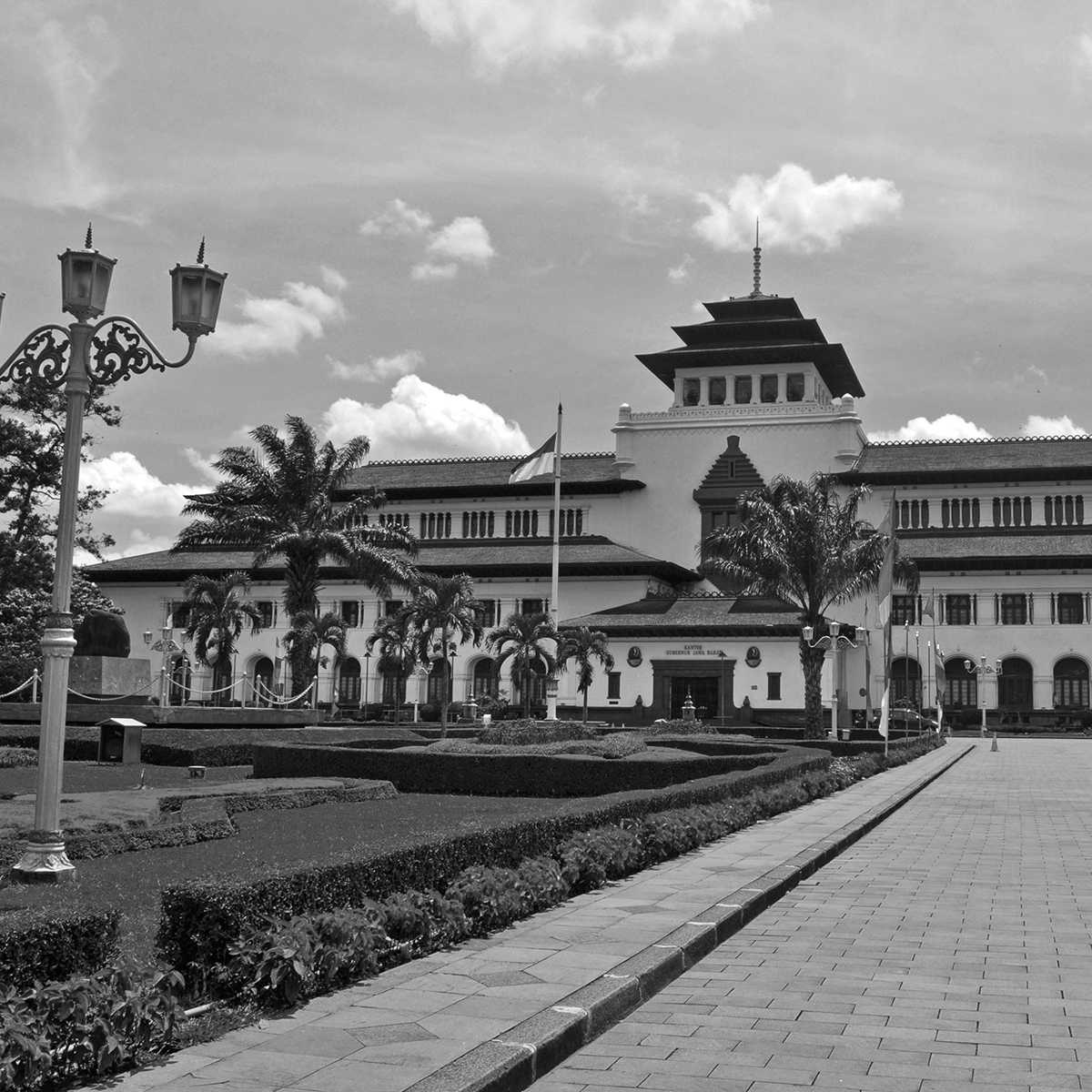
26 November 2023
List of Closed Tourism Spots in Regards to COVID-19 Outbreak
Here are the lists of places that are temporarily closed in several cities in Indonesia, started on March 14, 2020, due to Covid-19 outbreak prevention.
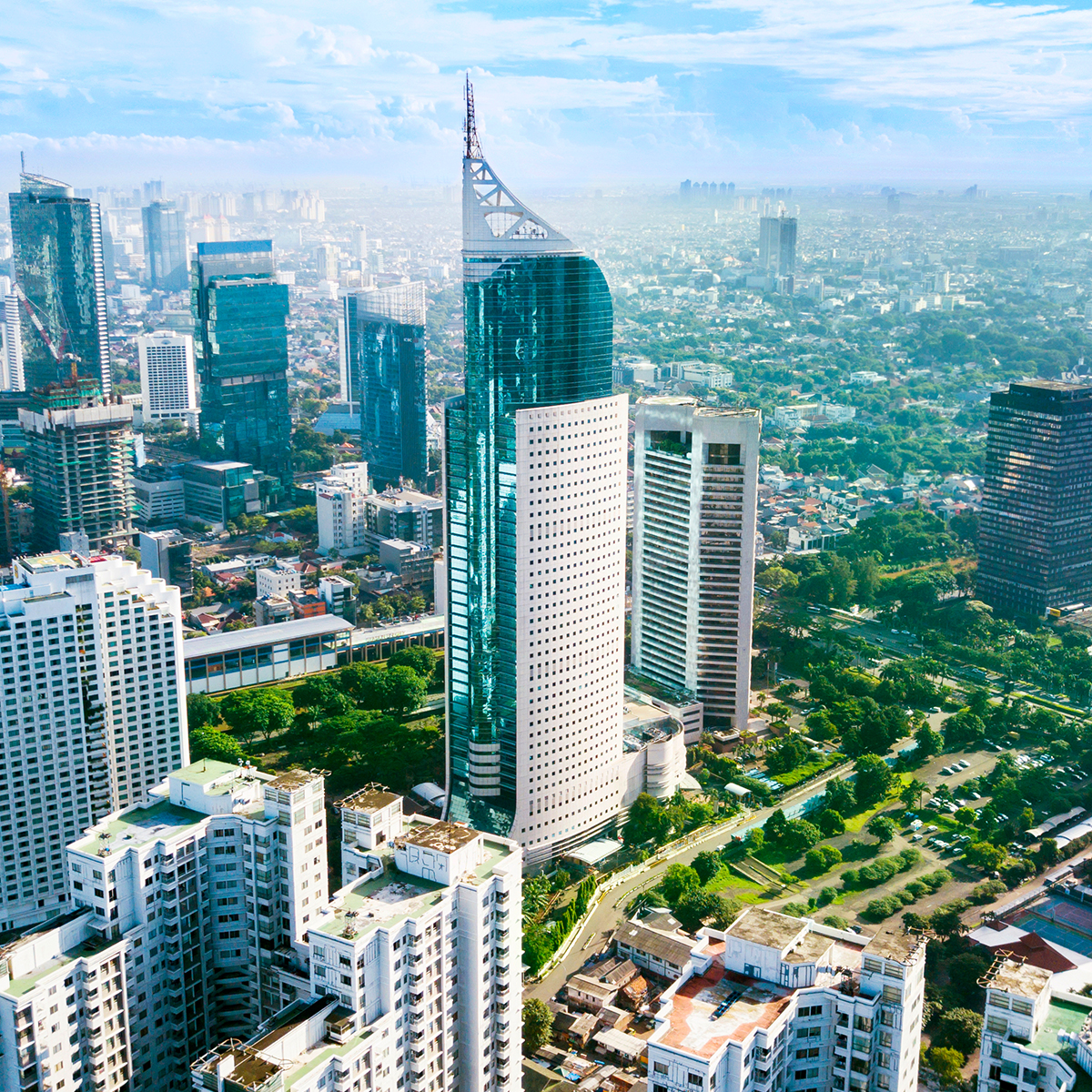
02 November 2023
Temporary Entry Restriction Policy for Foreign Citizens Visiting Indonesia
Following the latest variant of the 2019 novel coronavirus, Indonesia has imposed a temporary entry ban for foreigners.
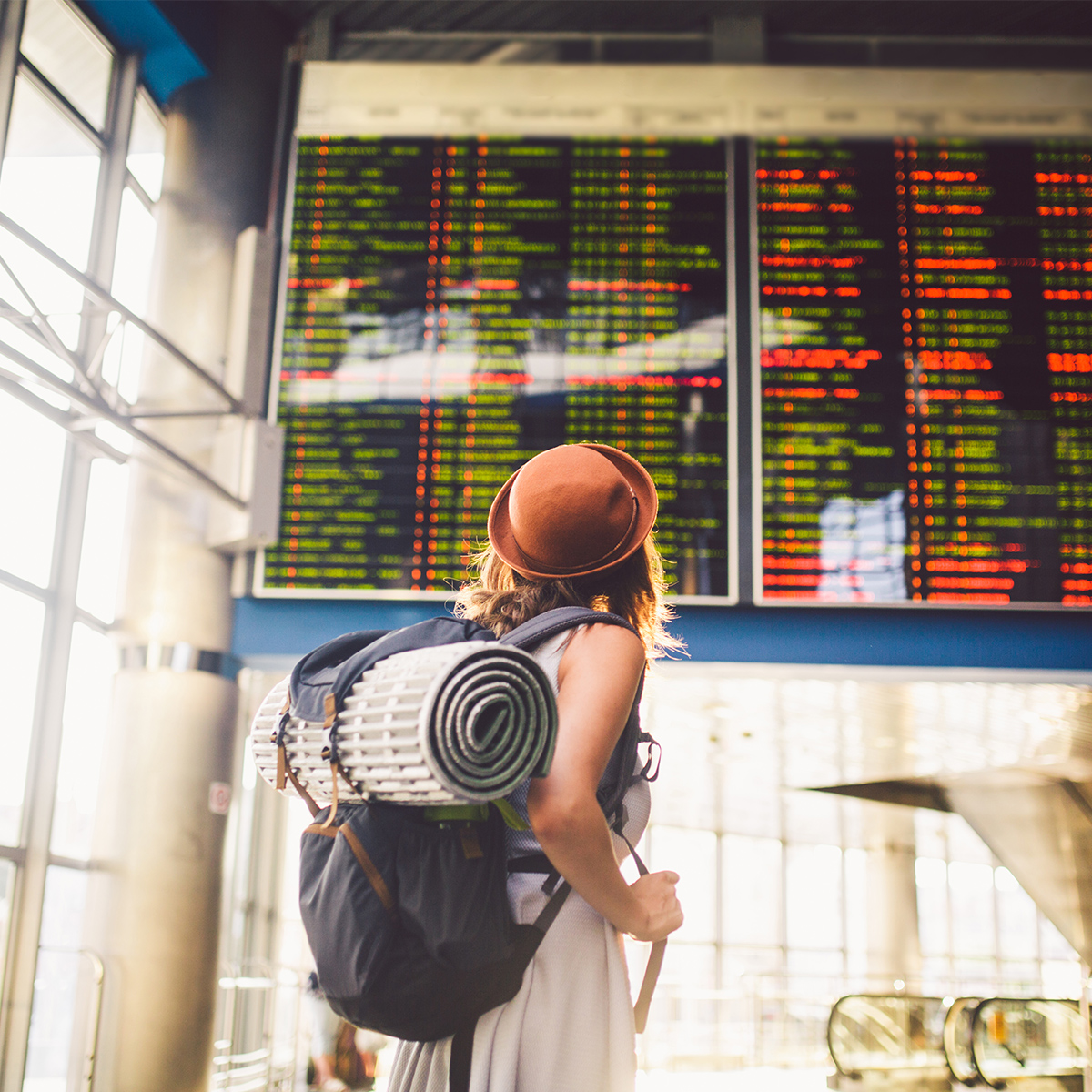
31 October 2023
Emergency/Force Majeure Stay Permit for Foreign Travellers in Indonesia
Read the latest notification from Directorate General of Immigration in Indonesia regarding the alleviation of emergency/force Majeure stay permit during the COVID-19 outbreak.
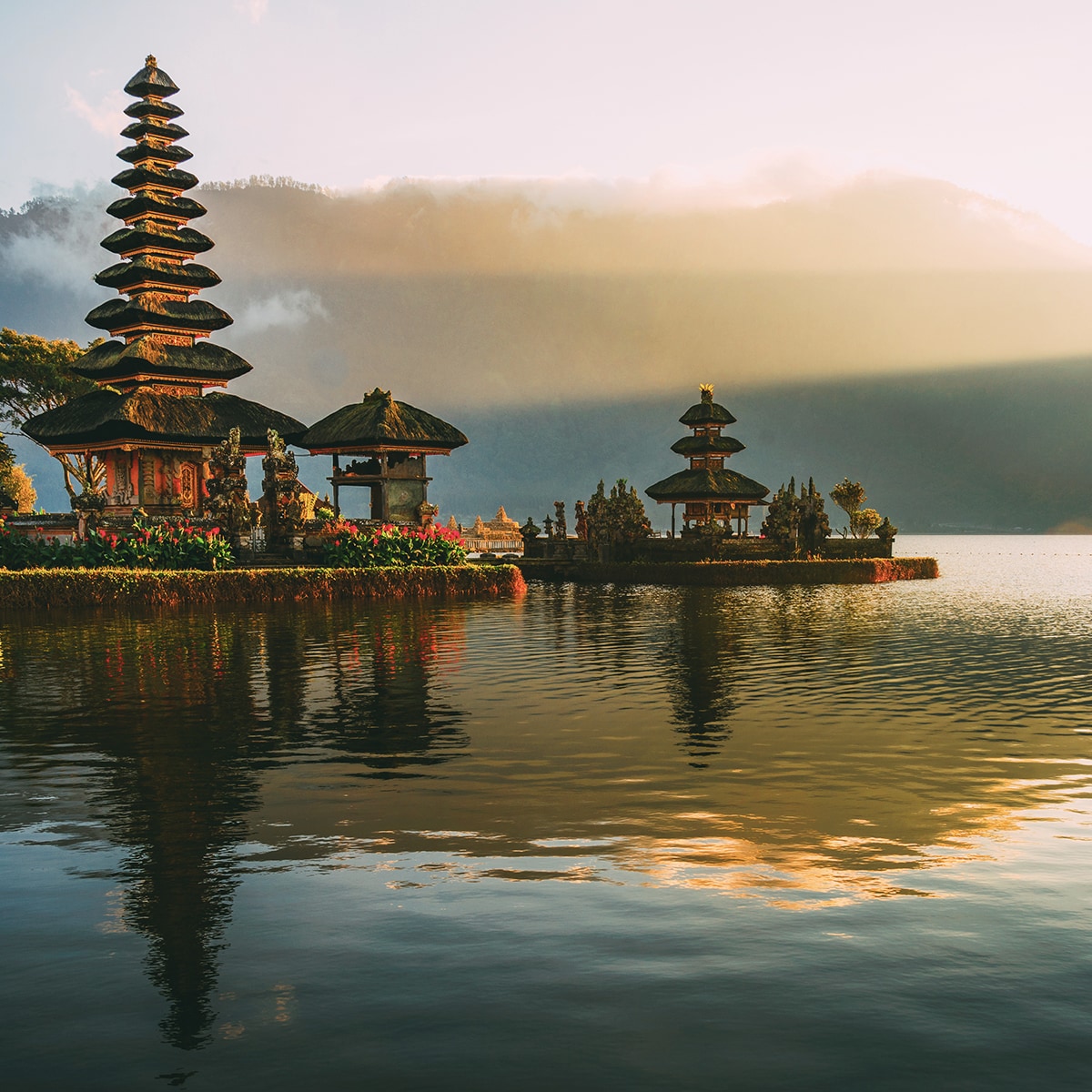
14 September 2023
The Way Bali and Its Community Fight the Outbreak of COVID-19
Bali is currently being recognized as a model by Indonesian authorities in overcoming the pandemic.

29 August 2022
Here Are the Newest Regulations regarding Domestic Travel in Indonesia!
The Task Force for Handling COVID-19 issued Circular Number 14 of 2021, regarding Domestic Travel Health Protocol during the Corona Virus Disease 2019 (COVID-19) Pandemic.

11 March 2022
Here Are the Newest Regulations regarding International Travel to Indonesia!
An Addendum to the Circular of the COVID-19 Handling Task Force Number 8 of 2021 regarding International Travel Health Protocols During the Corona Virus Disease 2019 (COVID-19) Pandemic.

23 February 2022
Here are some of the most frequently asked questions in Indonesia today regarding travel during the COVID-19 pandemic.

11 February 2022
Three Steps to Mitigate The Impact Of COVID-19 to The Tourism Sector
Coronavirus pandemic, or COVID-19, has impacted all sectors, not only tourism. While chairing a limited internal meeting by teleconference from Bogor Presidential Palace, Jawa Barat, Thursday, 16th April 2020.

10 December 2021
Going to Java or Bali? Read these New PPKM Regulations first!
President Joko Widodo enforces emergency PPKM that will start on 3rd July 2021. Check the new regulations here!

04 November 2021
Planning for A Trip to Bali? Read These New Requirements First
For those who are planning to travel to Bali by air transportation, there are some new requirements travelers must follow. Let's find out!

29 September 2021
Visa and Stay Permit Requirement for Foreign Nationals in Society’s New Customs
In relation to the Minister of Law and Human Rights Regulation Number 26/2020 on the Visas and Stay Permits During the New Normal Period, the Directorate General of Immigration has revised the regulations on Visas and Stay Permits for foreign nationals currently residing in Indonesia or planning to enter Indonesia during the new normal period.

22 September 2021
Visa and Stay Permit Requirements for Foreign Nationals in the Period of Handling the Spread of COVID-19
Read the detailed information regarding visa and stay permit requirement for foreign nationals during the enforcement of Restrictions on Community Activities.

18 September 2021
President Joko Widodo: Indonesia COVID-19 Positivity Rate Drops to 2,64 Percent
As a result, President Joko Widodo, or familiarly known as Jokowi, has brought good news regarding the sharply decreasing number of Bed Occupation Rate (BOR) in COVID-19 hospitals in Indonesia.

14 September 2021
Indonesia in Sixth Position for COVID-19 Vaccination Rate Worldwide
Based on the data provided by Oxford Martin School, Indonesia is listed in sixth position for COVID-19 vaccination rate worldwide.

09 August 2021
Indonesia Enters the List of "Best Countries to Invest in Post-COVID-19”
Indonesia has made the list of “Best Countries to Invest in Post-COVID-19” according to TheCEOMagazine.com
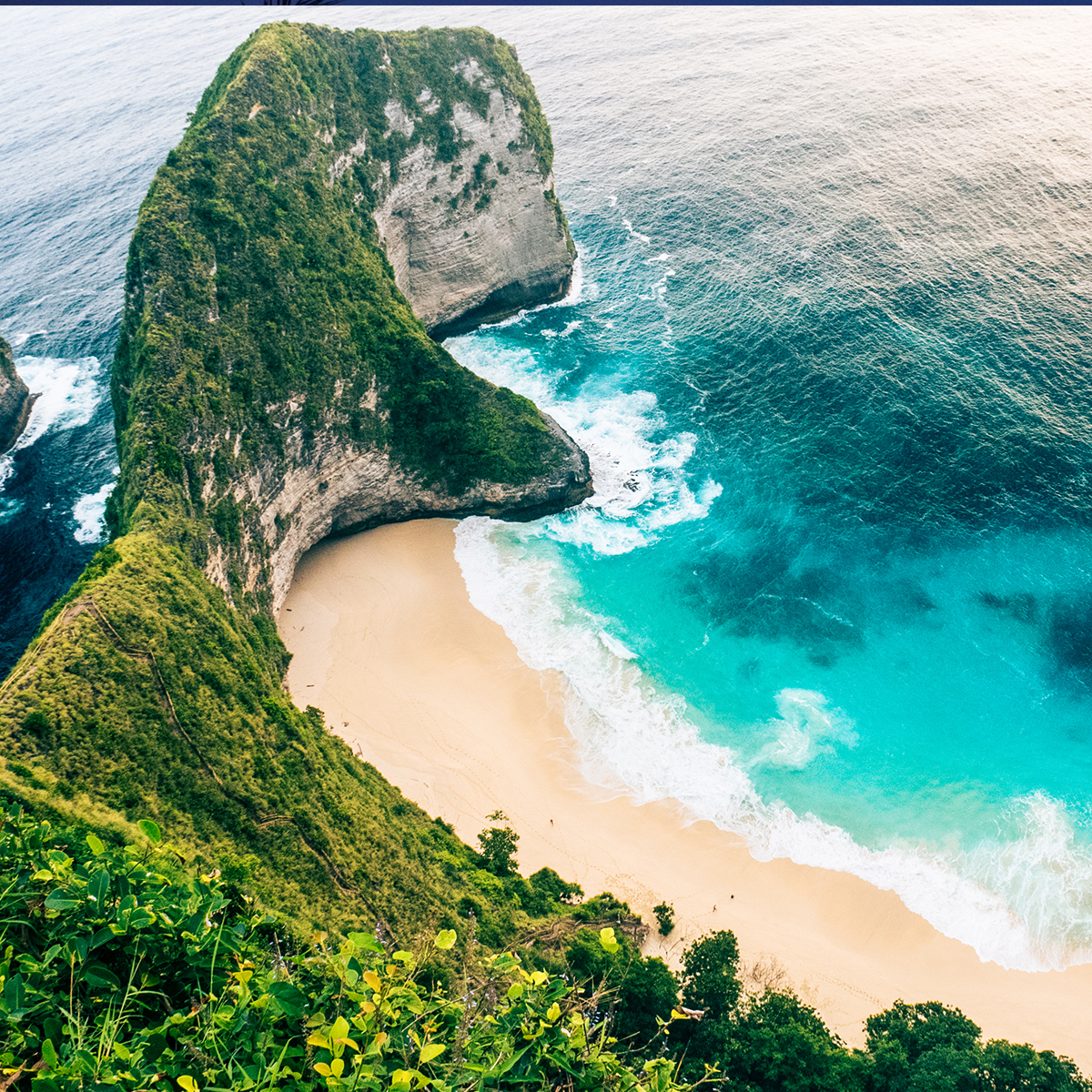
06 August 2021
Bali Entry Requirements for Visitors Regarding COVID-19
Due to its impressive result in tackling the number of COVID-19 infections, the government declared that Bali will be reopened to visitors starting from 28 May 2020.
03 June 2021
The Official Statement from Ministry of Tourism and Creative Economy
The Ministry of Tourism and Creative Economy of the Republic of Indonesia expressed concern in relation to the outbreak of novel coronavirus which has been declared as a global health crisis by the World Health Organisation (WHO), and hope that the condition would soon recover.
The Policy of The Government of The Republic of Indonesia on The Developments Regarding Covid-19 5 March 2020
Indonesia continues to monitor the reports regarding the worldwide spread of the COVID-19 outbreak issued by the WHO.
Official Statement of Bali Tourism Promotion Board on COVID 19
Additional Measures of The Indonesian Government in Relation to Covid-19 Response
Official Statement of The Closing of Komodo National Park Due to COVID-19
Due to the spread of global pandemic COVID-19, the Ministry of Environment and Forestry, along with the Directorate General of Conservation of Natural Resources and Ecosystems, decided to close down Komodo National Park temporarily.
Temporary Entry Ban for Foreign Citizens Entering the Republic of Indonesia
Due to the development of COVID-19 all around the world, including in Indonesia, the Directorate General of Immigration in Indonesia temporarily ban entry to the Republic of Indonesia for foreign citizens.
Large Scale Social Restriction Implementation
PSBB is a limitation of specific activities of a particular region that is suspected of COVID-19 infection. PSBB has been regulated in Ministry of Health Regulation No. 9 the Year 2020.

List of Closed Tourism Spots on each Province in Regards to COVID-19 Outbreak
Here are the lists of places that are temporarily closed in every province in Indonesia, due to COVID-19 outbreak prevention.
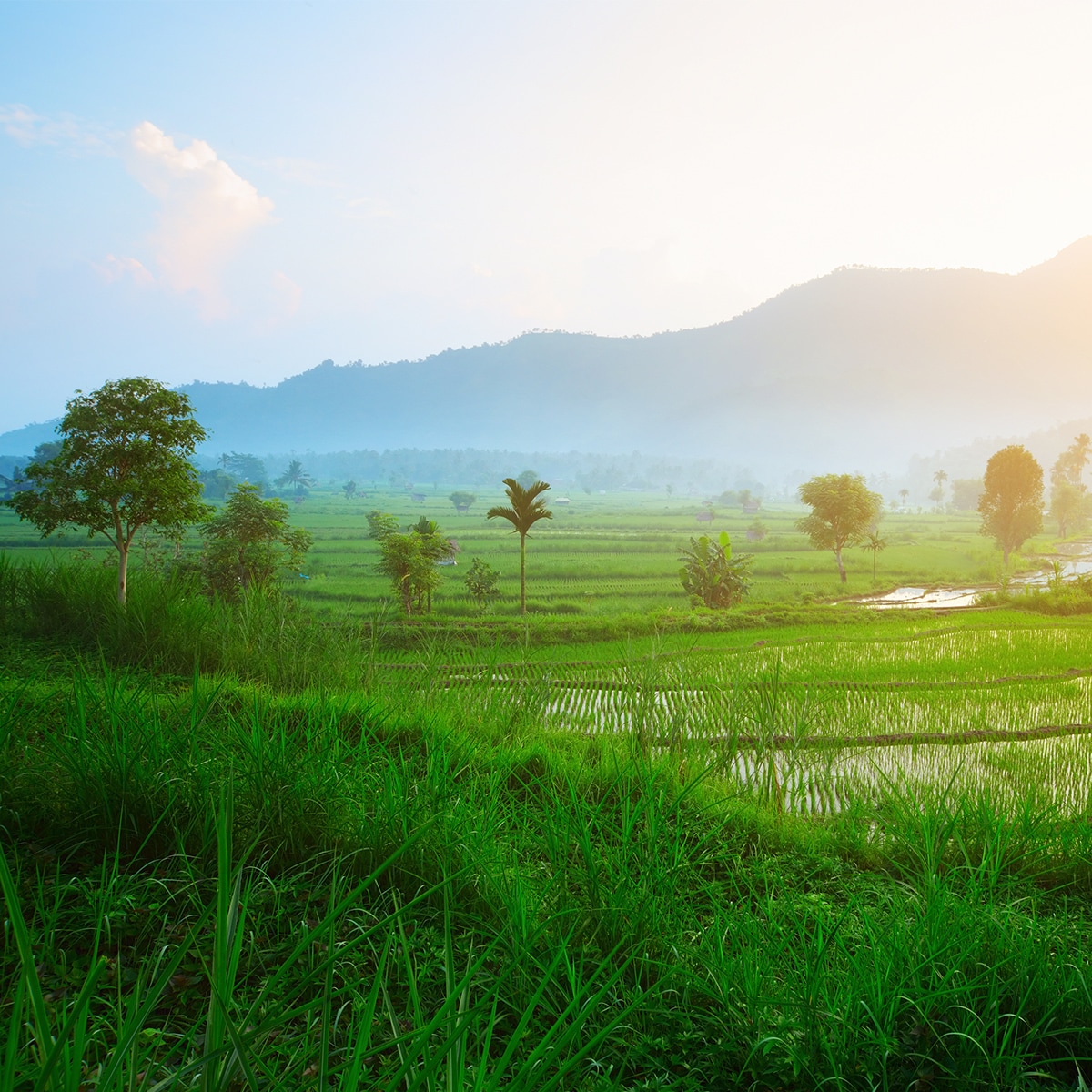
Unity in Distance
It's time for us to take a break and stay at home for a while. It's a small but meaningful contribution to making everything better during these hard times.
Bersama Jaga Indonesia Solidarity Concert
The pandemic of COVID-19 established by the World Health Organization WHO has made the world in the same story for the first time. The impact hit every corner of the source of human life. Pandemics make people limited their space.
02 June 2021
The Ministry of Tourism and Creative Economy Prioritizes in Protecting Public Health in the Midst of the COVID-19 Outbreak
Minister of Tourism and Creative Economy Wishnutama Kusubandio in his statement in Jakarta, Friday (03/13/2020) said that the ministry has postponed all forms of tourism promotion abroad until the COVID-19 outbreak ended.

Q & A with Wishnutama Kusubandio, Minister of Tourism and Creative Economy, on the Current Condition of Tourism in Indonesia and COVID-19
Development of The Handling of The Coronavirus 2020 in The Province of Bali
Denpasar City – Bali already has a few preparations in place to anticipate the spread of COVID-19, in accordance with the instructions by the Bali Governor, Wayan Koster, who is also the Head of the COVID-19 Quick Handling Task Force for the Bali Province.
Stay at Home for a Better Tomorrow
Take a break for a few moments, distance yourself to breathe safely. Contribute to a better future. #StayatHome and #ExploreTomorrow.
Indonesia Prevention to Fight COVID-19
Ensuring your safety and well-being matters the most to us. Once the COVID-19 outbreak ends, we will warmly welcome you to Indonesia.
Jakarta Gubernatorial Regulation and Denpasar’s PKM Aims to Curb the Spread of COVID-19
Governor of DKI Jakarta, Anies Baswedan, issued Gubernatorial Regulation No. 47/2020 on travel limitations out-of-and-into-Greater Jakarta on 14 May 2020.
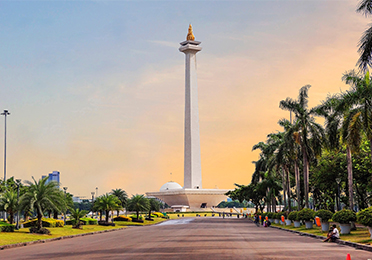
Mandatory Requirements for Airplane Passangers during The Covid-19 Emergency Period
In accordance with the government policy particularly Regulation of the Minister for Transportation No. 25 the Year 2020 on transportation control during Eid Fitr 2020 which aims to prevent further spread of Covid-19 in Indonesia.

01 June 2021
Government Contacts
Below is the list of contacts you can reach out to for information regarding the situation of the COVID-19 outbreak in Indonesia.
Implementation of Large-Scale Social Restrictions for the Greater Jakarta and Pekanbaru, Riau
In connection to the significant rise in the pandemic spread of the COVID-19 virus within several regions in Indonesia, several areas within Indonesia have submitted the Large-Scale Social Restrictions (PSBB) proposal to the Minister of Health, Dr.Terawan Agus Putranto.
Garuda Indonesia Reopens Flight for Exceptional Passengers
Along with this message, let us inform you that Garuda Indonesia has reopened flights and began operations starting from 7 May 2020.

8 FAQs You Need To Know About Indonesia Today
Yes, due to safety reasons, Indonesia’s borders are currently closed and limited access is allowed for specific travel purposes to authorized personnel only.
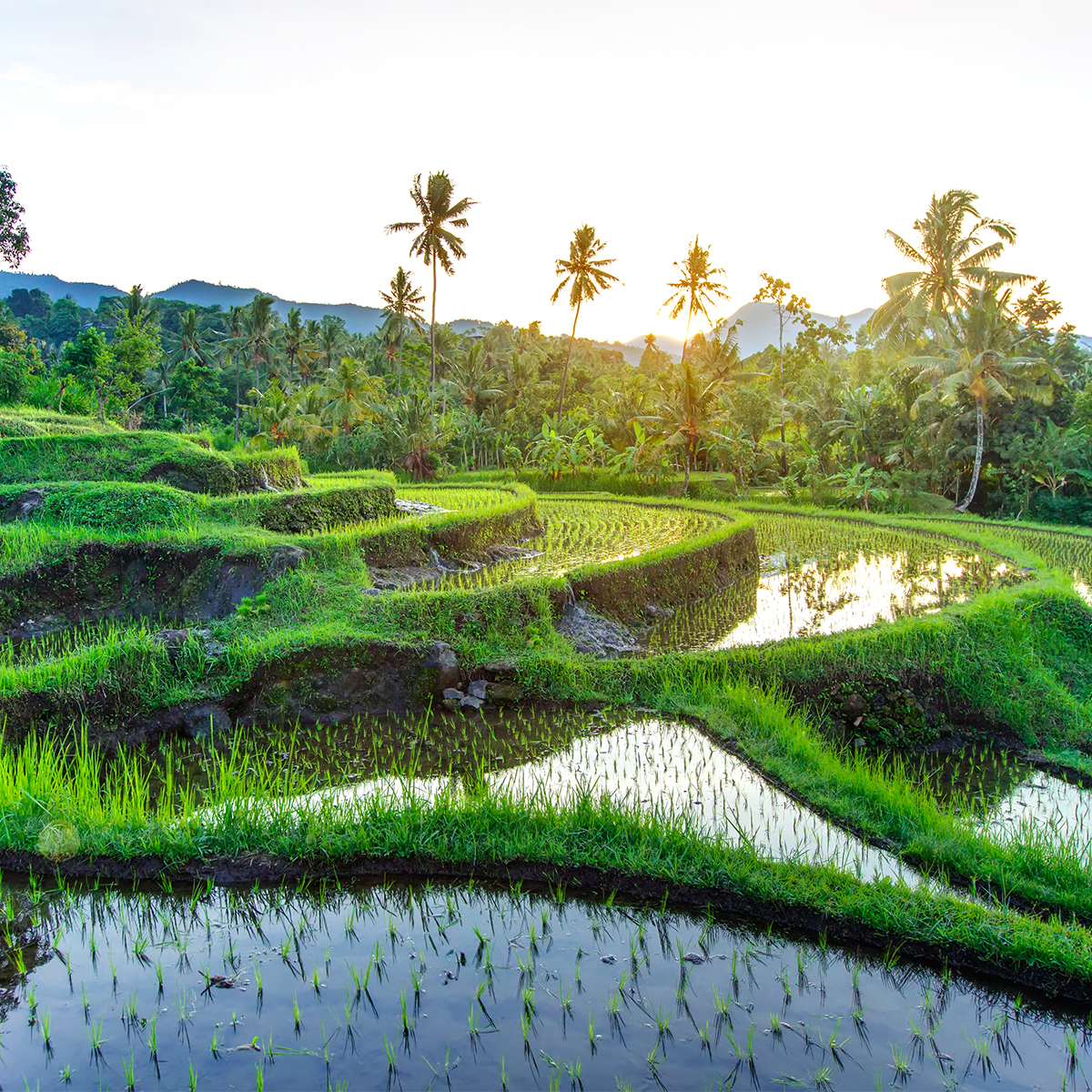
List of Reopened Tourism Spots in Regards to COVID-19 Outbreak Prevention Measurements
Below, you can find the lists of places that are reopened in several cities in Indonesia.
The Implementation of Health Protocol for the Tourism Sector During the Transition Period
The Head of the Jakarta Tourism and Creative Economic Agency on 5 June 2020 issued Decree Number 131/2020 regarding the Protocol for COVID-19 Prevention.
Information Update on Immigration Services for Foreign Nationals at Immigration Offices
Refer to this article for the updated information regarding immigration services at immigration offices for foreign citizens residing in Indonesia.
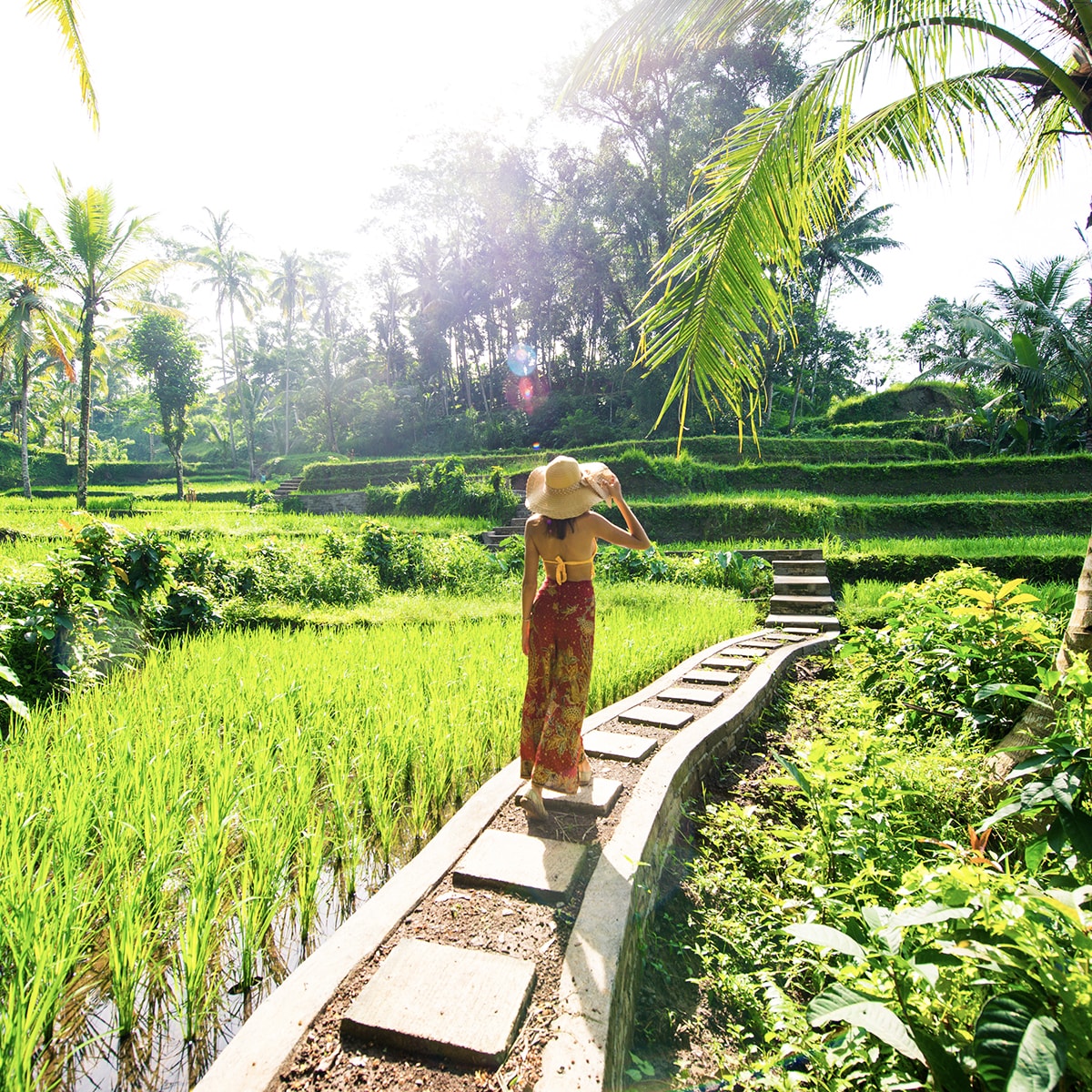
06 April 2021
Balinese Government Imposed Obligatory PCR Test Result Requirements for Upcoming Bali Visitors
See the latest regulations imposed by Indonesian government for upcoming Bali visitors.
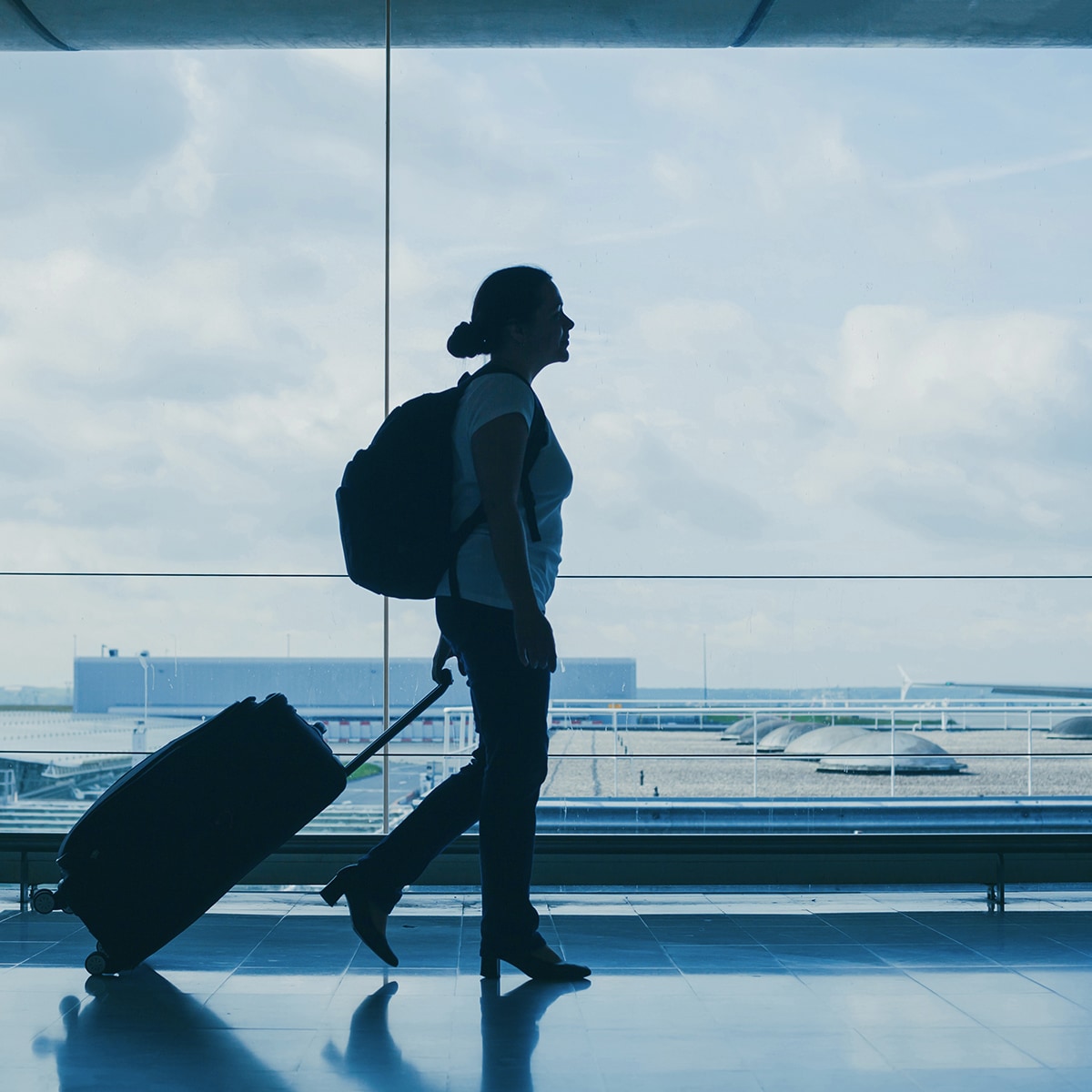
27 December 2020
New Entry Requirements for Java, Bali, and Bangka Belitung Islands
In anticipation of a spike in Covid-19 cases, several areas such as Java, Bali, and Bangka Belitung have implemented new requirements for in and out flights that must be obeyed by the tourists.
14 October 2020
Indonesia Reopens Public Places and Facilities to Enter "Transition Period" of Large Scale Social Restriction
The Government of the Republic of Indonesia started to impose a new policy to welcome the transition period of its Large Scale Social Restriction (PSBB) implementation.
Minister of Tourism and Creative Economy Encourage Tourism Stakeholders to Implement Strict Health Protocol to Welcome the “New Normal”
As a part of Task Force for the Acceleration of Handling COVID-19, Tourism and Creative Economy Minister, Wishnutama Kusubandio, emphasizes on sense of security, wellness, and comfort as three main aspects
27 August 2020
Preparation to Open Bali for Visitors by Implementing “New Era Life Order Protocol”
The COVID-19 pandemic has affected every aspect of life everywhere, including Bali.
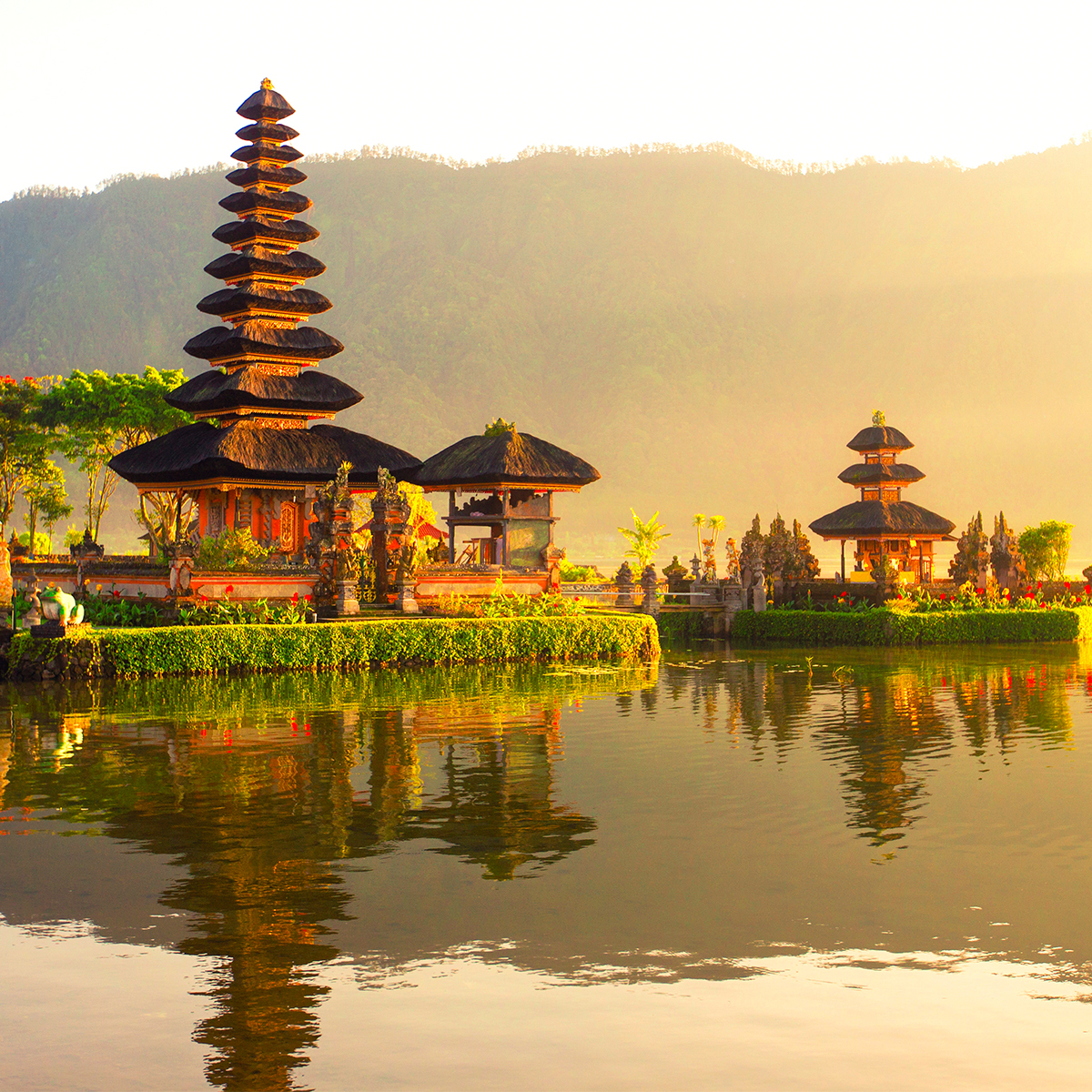
02 August 2020
Requirements for Domestic Tourist Visiting Bali
In order to provide more protection, comfort, and safety for tourists visiting Bali during the COVID-19 pandemic, the Provincial Government of Bali has issued Circular Letter No. 15243 the Year 2020 regarding new requirements for domestic tourists visiting Bali.
27 July 2020
Bali Entry Requirements During the New Normal Period
Wayan Koster, the Governor of the Province of Bali and the Head of the Bali Provincial Task Force for the Acceleration of Handling of COVID-19, issued Circular Letter Number 305/GUGASCOVID19/VI/2020.
02 April 2020
List of Postponed Public Events in Indonesia
According to the government's regulation regarding the measures to prevent further spread of COVID-19, all public events that have set to be held in March to April has been postponed until an undetermined time. Here are the list of public events that are postponed:
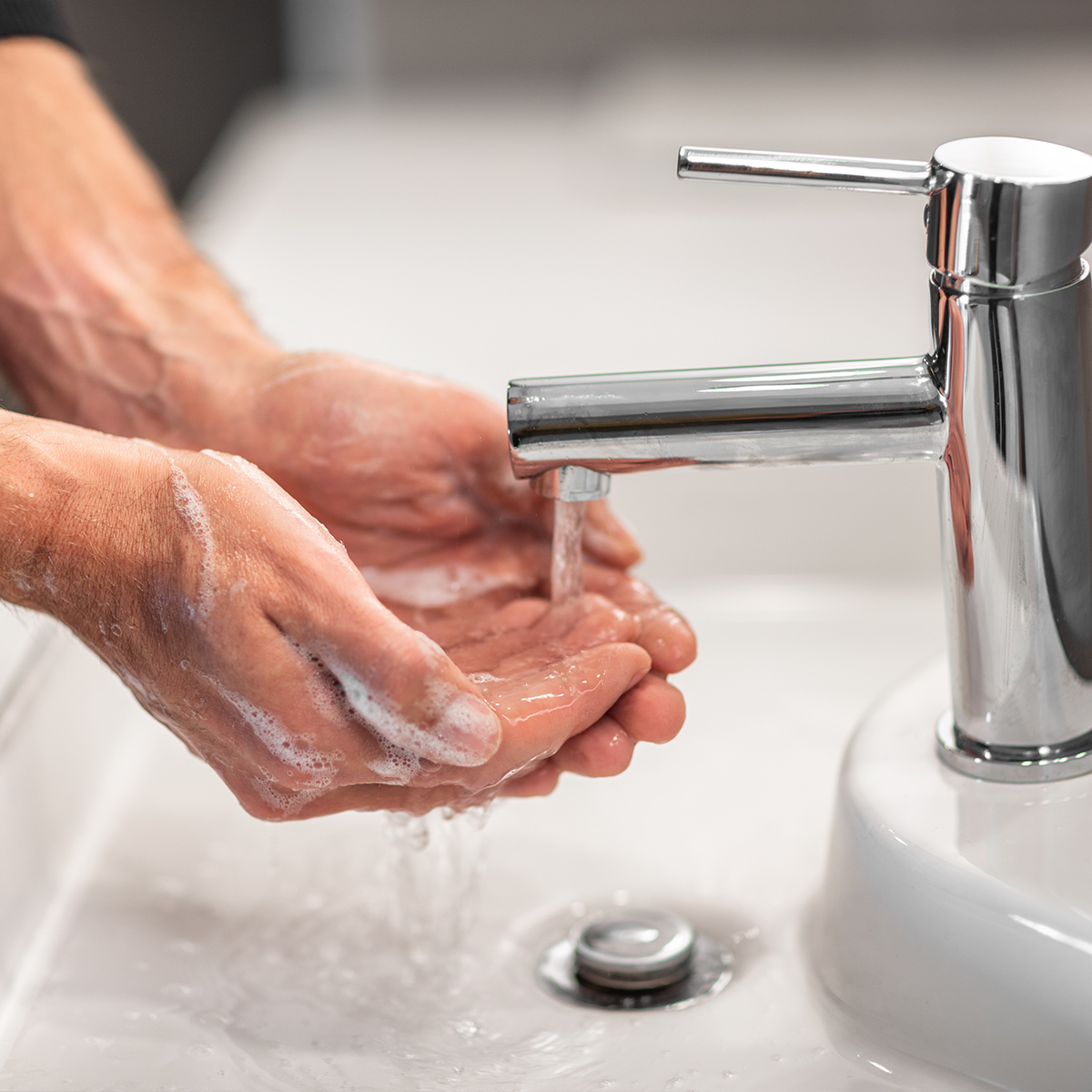
01 April 2020
How Indonesia is coming Together to Fight COVID-19
On 29 February 2020, President Joko Widodo declared a national state of emergency over the COVID-19 outbreak in Indonesia. Since then, many preventive measures have been taken in order to mitigate the spread of the disease.
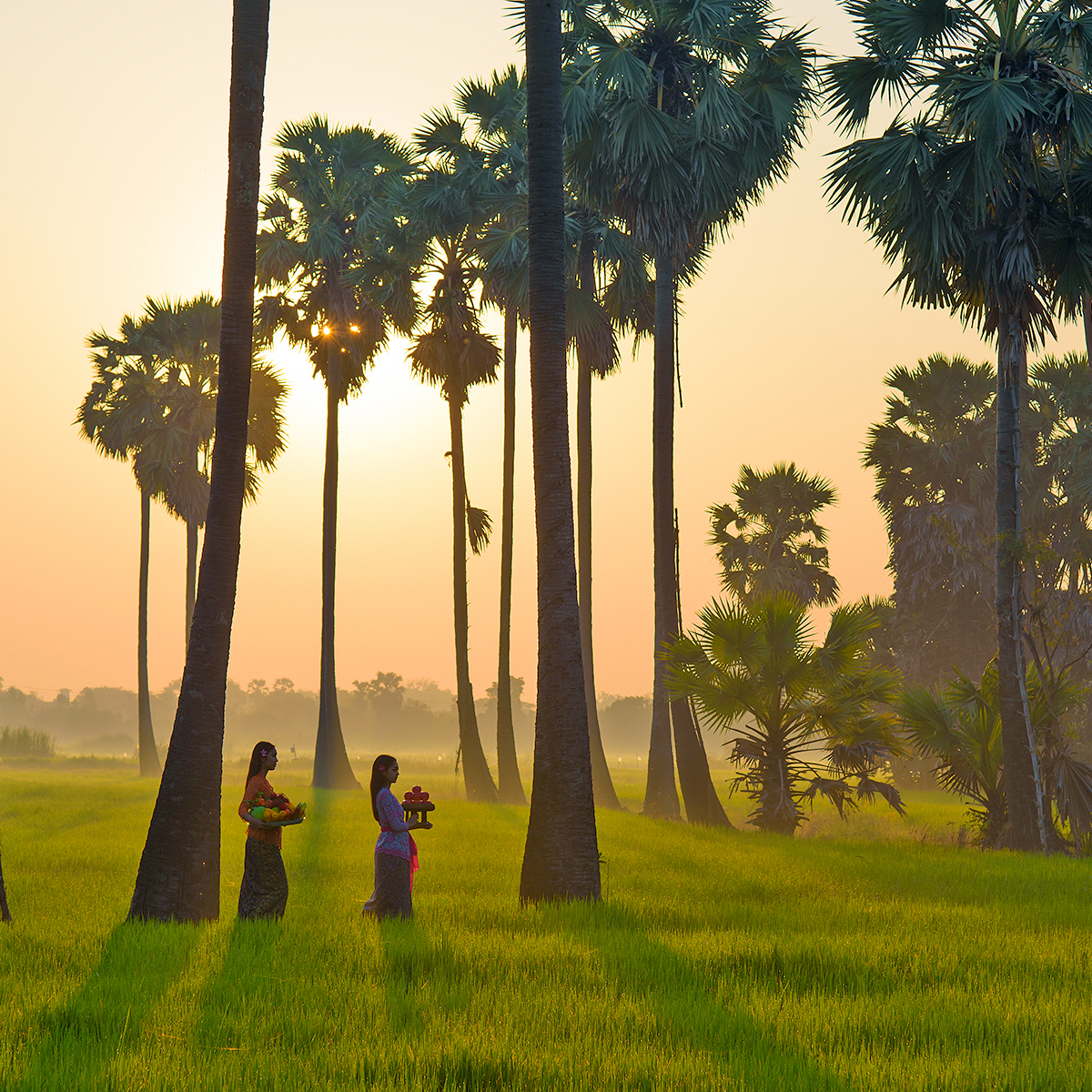
12 February 2020
A Letter to Our Friends, the People of China
We are deeply saddened to hear of the loss of lives and the significant impact caused by the outbreak of the novel coronavirus.
Stay Healthy for Travellers

30 October 2023
Looking for New Hobbies? Here are 6 Indonesian-Inspired Crafts for You to Recreate!
While you stay at home and contribute to a better future, you can discover new hobbies and improve your creative skills by creating these 6 Indonesian-inspired crafts.

19 May 2022
5 Popular Indonesian Foods You can Make at Home
Bring the taste of Indonesia to your kitchen!

21 April 2022
Bring Batik to Your Life with These 5 Creative DIY Home Decor Ideas
Bring Indonesia to your home!

Don’t Know What to Do During Quarantine in Bali? Try Doing These 5 Things!
Looking for meaningful activities to do during quarantine in Bali? Just check out these 5 exciting ideas!

12 August 2021
How You Can Get Ready to Travel Again Soon
It’s a good time for you to plan for the holiday you’ve been longing for.

We are Preparing to Welcome You Back Safely to Indonesia
Although we are entering the transition period, your safety is still in our top priority.

A 3D2N New-Normal Travel Experience in Nusa Dua, Bali
Here’s how to have a safe and enjoyable new-normal travel experience in Bali.

29 July 2021
7 Delicious Indonesian Breakfasts You can Recreate at Home
Make your mornings lively with these 7 delightful breakfast recipes from Indonesia.

15 July 2021
6 Traditional Indonesian Herbal Drinks That Can Boost Your Immune
Indonesia has herbal drinks that can boost the immune system. Here are six traditional drinks that are nutritious for your health.
13 July 2021
Make These 6 Iconic Indonesia Sceneries As Your Online Meeting Virtual Background
Transport yourself back to Indonesia!

02 July 2021
These 5 Ideas Will Light Up Your Creativity during Your Stay-at-Home Moments
There are so many things you can do to have fun and be productive while staying at home. Check out these 5 creative ideas that you should try!

21 June 2021
6 Guides on Being A More Responsible Traveler After the Pandemic
After the pandemic is over, here are the things you can do as a responsible traveler to contribute to a better world.

When Will We Travel Again? 4 Answers to the Big Question
To find an answer to the question, let’s take a look at these 4 points and see if our future travel destinations have considered them.

10 June 2021
3 Juicy Indonesian Satay Recipes to Comfort Your Palate
Enrich your palate with these juicy and tasty meat skewer recipes from Indonesia.

Preventive Endeavours to Counter Corona Virus in The Tourism and Creative Economy Sector
Proceeding a concrete and joint responsibility in rising high awareness to prevent the Epidemic of Coronavirus.
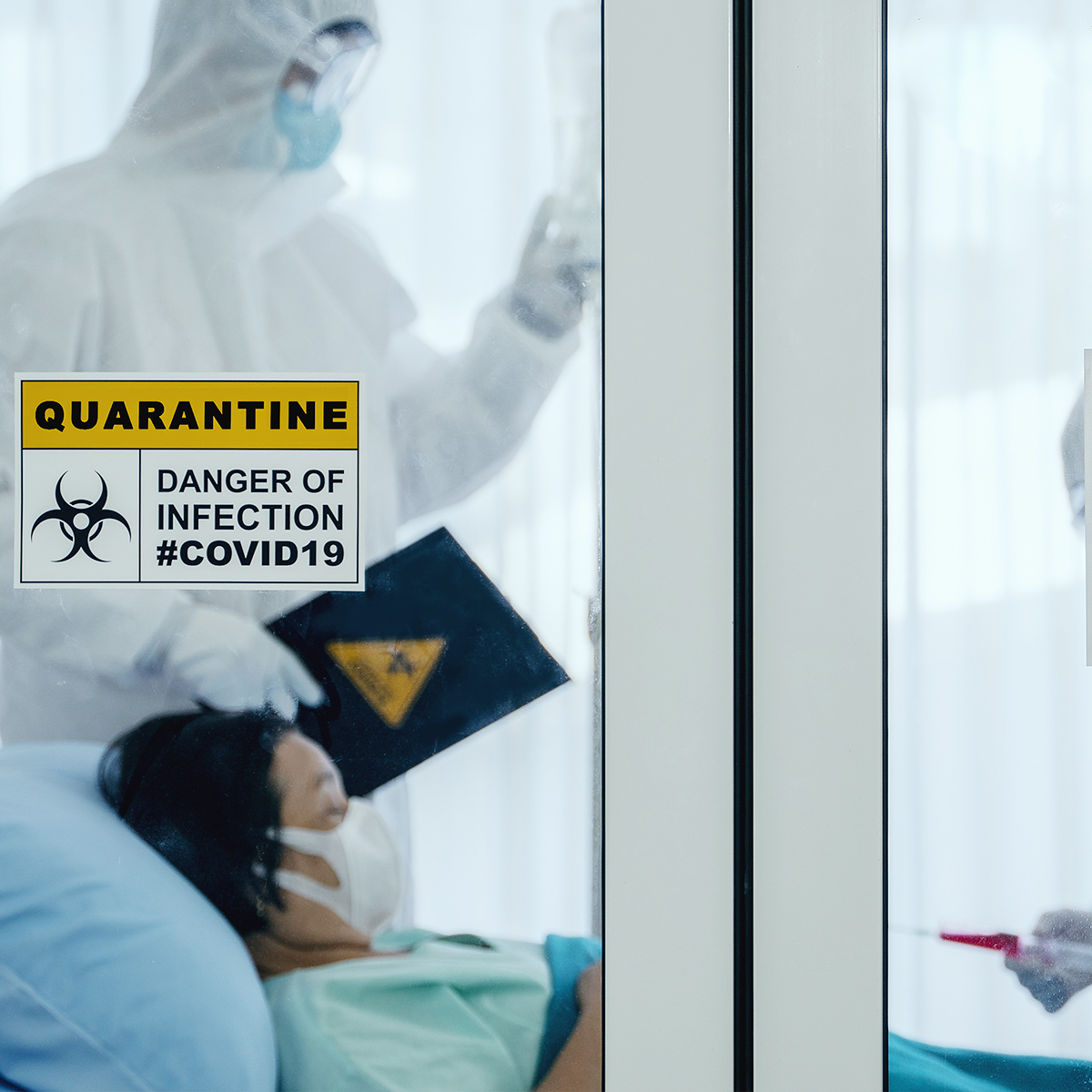
List of Referral Hospitals for the Case of COVID-19 in Jakarta
Here are the list of 8 recommended hospitals in Jakarta you can refer due to Covid-19 :

The Network of the Laboratoriums for COVID-19 Examinations
The Network of the Laboratoriums for Covid-19 Examinations According to the Health Ministerial Decree Number 182/2020.
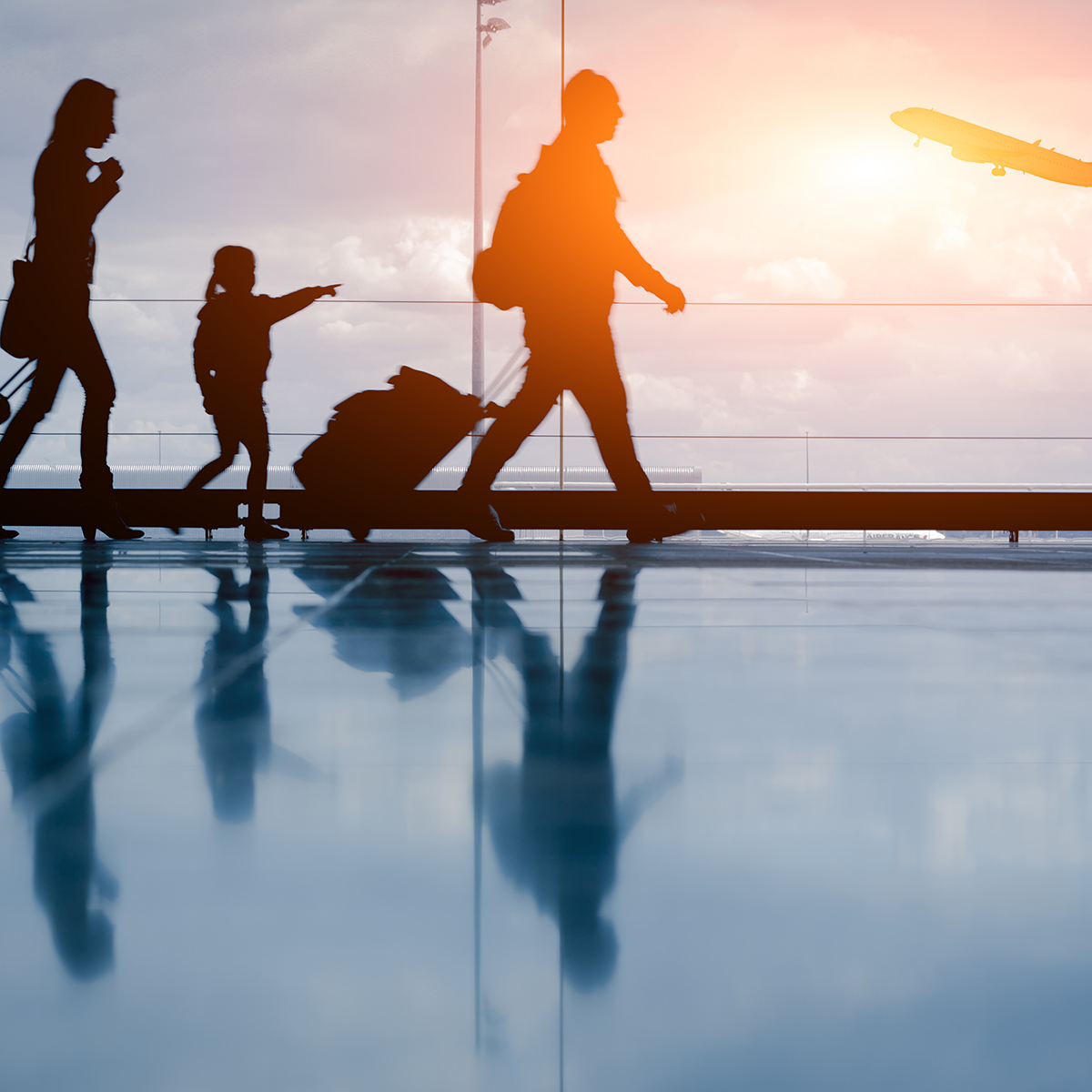
Stay Healthy, Travel Responsibly

20 May 2021
Small Steps to Prevent the Transmission of Novel Coronavirus
The Novel Coronavirus is a new epidemic that can be prevented in many simple methods. Kindly read the infographic and spread the information to protect the people around you.

07 April 2021
5 Creative Green Ideas to Keep You Happy at Home
Preserve, conserve, and be creative while staying at home.

5 Best Images to Inspire Your Travel Dream Today
Be inspired to dream about tomorrow.
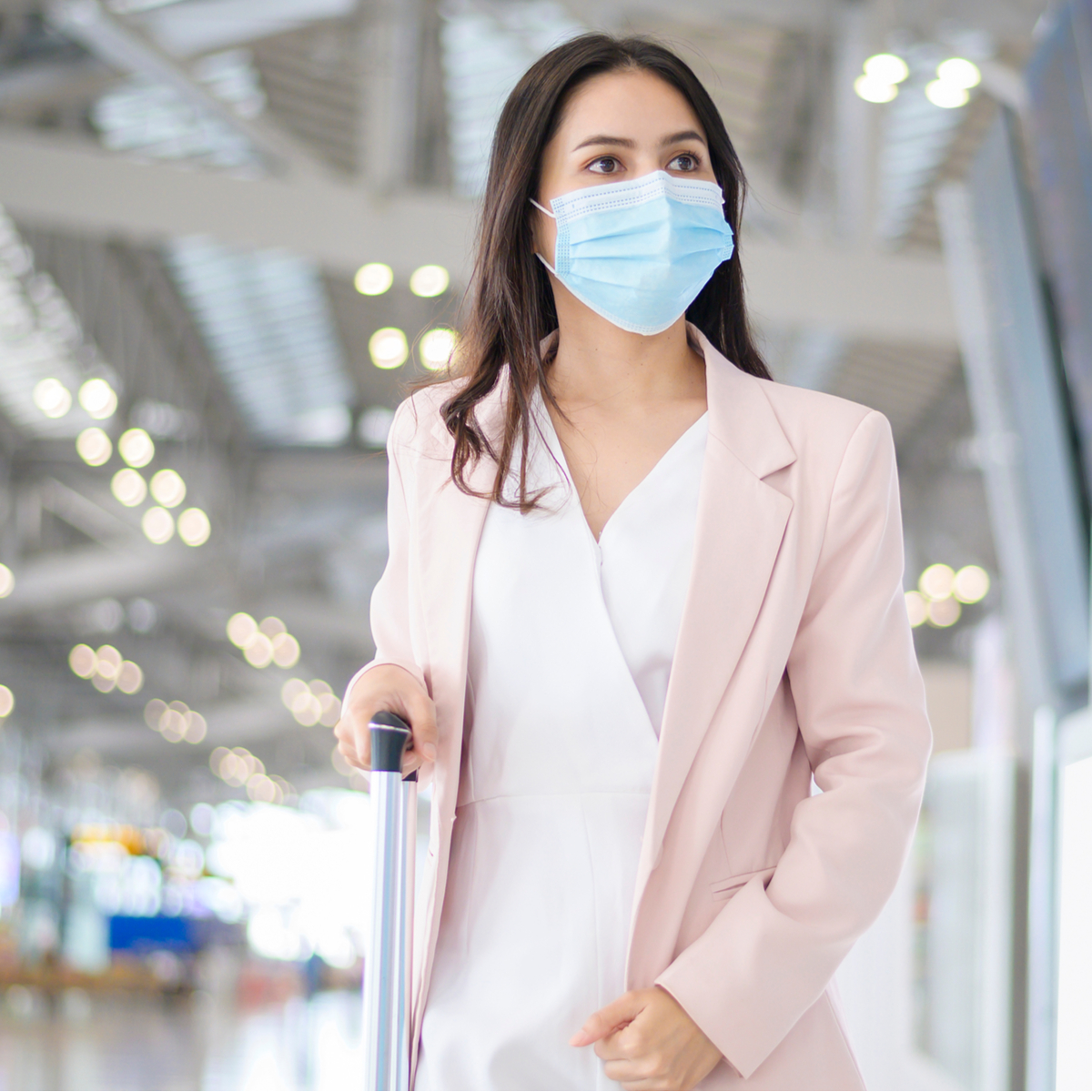
Going on a Business Trip to Indonesia Soon? Read the Requirements Here
With an estimate of US$5.8 billion being wiped from Indonesia’s tourist revenues as of July 2020, the country plans to recover its coronavirus-battered economy strategically. The government has negotiated on building bilateral travel corridors with countries including the United Arab Emirates, China, South Korea, and Singapore.

30 March 2021
6 Indonesian Traditional Dances for You To Enjoy from Home Now
During your time at home, you can try to move your body while learning about exciting traditional cultures with these traditional dances from Indonesia.

11 December 2020
7 Exciting Adventures For Your Next Travel Bucket List
Be inspired to plan your next adventure to Indonesia by watching these videos!

14 July 2020
How to Travel in the ‘New Normal’
Discover tips on how to travel in the ‘New Normal’

20 May 2020
In The Mood for Holiday? Stay at Home and Watch These 7 Videos
Travel to Indonesia without having to set your foot off the house.

13 May 2020
5 DIY Travel Keepsake Display Ideas to Reminisce Your Holiday Memories
Missing the holidays? Make these travel keepsake crafts to keep the memories alive.

11 May 2020
Enjoy These 5 Indonesian Traditional Snacks While Stay at Home
Grab these easy-to-make light bites from Indonesia!

05 May 2020
Refresh Your Mind with These 5 Famous Indonesian Icy Desserts
Quench your thirst with these refreshing Indonesian desserts.

27 April 2020
These 5 Tips will Level up Your Productivity when Working from Home
It may take a while before it becomes safer to spend time outside. So while we work from home, let’s try to keep our family life in balance.

21 April 2020
These 8 Healthy Herbal Drinks from Indonesia Will Keep You Warm While Stay at Home
In these hard times, your health depends on your immune system. So while you stay at home, you can try these 8 delicious herbal drinks from Indonesia to keep you warm, uplifted, and healthy.

7 Movies that Will Inspire You to Explore Indonesia
Missing the beauty of Indonesia already? These films will fulfill your desire to explore Indonesia while you #stayathome.

13 April 2020
Get Fascinated by these 5 Unique Traditional Indonesian Musical Instruments While You Stay at Home
Rich in cultural diversity, Indonesia has a lot of traditional music instruments with distinctive voices that will fascinate you to explore further during your #StayatHome moments.
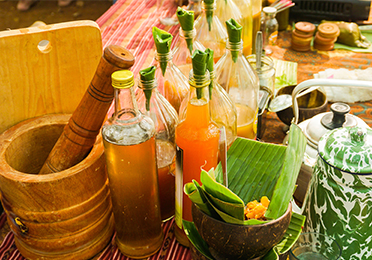
7 Simple Healthy Tips to Help You Stay Fit on Your Next Holiday in Indonesia
Many travels to Indonesia for its natural landscape, but only a few know that the archipelago is home to many diverse traditions that value wellness and a balanced lifestyle.

7 Ideas to Make Your Stay at Home Moments Fun
During this difficult time, when the government strongly urges us to avoid going outside and gathering in large groups, the best we can do is #StayatHome.

Stay at Home Life Hacks: How to Make Your Time More Fun
Staying at home for too long might make you feel dull, bored, and uninspired. Don’t worry, here are some things you can do!
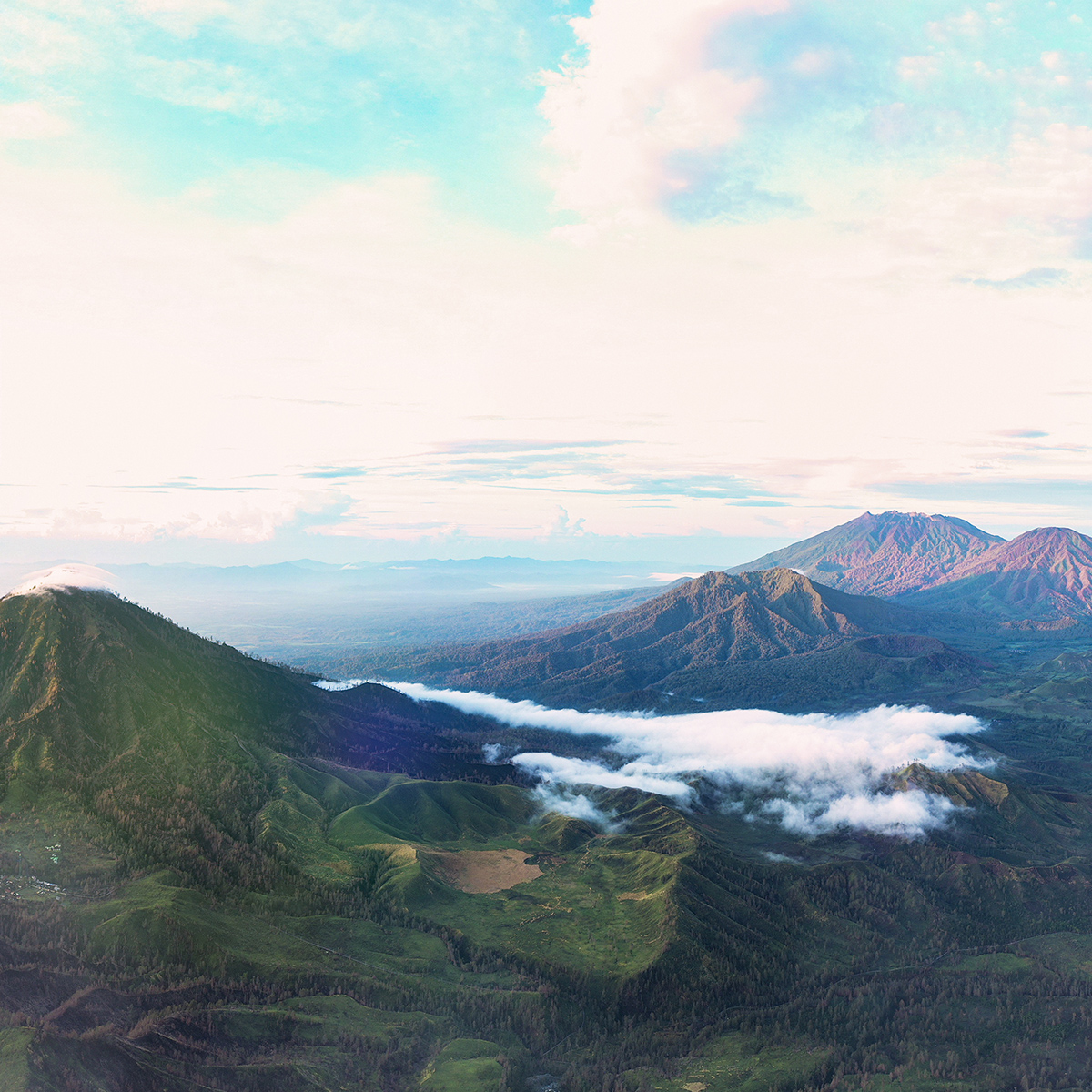
31 March 2020
These 5 Virtual Journeys to Indonesia Will Take You on an Epic Adventure While You Stay at Home
Can’t hold back your adventurous spirit while you Stay at Home? Relax. Visit Indonesia via these 5 virtual journeys without having to leave your house.

26 March 2020
Staying at Home? Travel Virtually to These Destinations and Say Goodbye to Boredom
Just because you can’t go outside, it doesn’t mean you can’t travel. In the midst of the COVID-19 outbreak, it is indeed best for us to stay at home and avoid close contact with people.
Latest Update
Indonesia.travel official Twitter account @wonderfulid provides useful information on weather warnings, advisories and latest news of transportation services in case of natural disasters.
Government Contact
112 and 119
Indonesia Covid-19 Information (Government) :
www.covid19.go.id
Other Important Contacts


Visit our other website
This is the official website of the Ministry of Tourism, Republic of Indonesia. The contents listed on this website are intended for informational purposes rather than commercial. Any displayed sale is meant as a token of partnership and will always redirect you to our partners' sites.
Accessibility Links

Is it safe to travel to Indonesia? Latest travel advice
Mount marapi has erupted again a month after the deadly eruption in december. here’s the latest foreign office advice and whether bali travel is affected.

M ount Marapi, a volcano in western Sumatra, has erupted for the second time in just over a month. There were two eruptions recorded by Indonesia’s geological agency on January 14. Residents living within 4.5 km (2.8 miles) have been urged to evacuate but so far no injuries have been reported.
The volcano is the most active in Indonesia and its last major eruption was in 1979, when 60 people died. During its previous eruption on December 3, 2023, over 70 hikers were on the mountain. Of these, 50 were evacuated immediately, but 23 were killed. On December 12 the Foreign Office updated its travel advice, stating that all travel within 3km (1.9 miles) of the crater should be avoided.
Main photo: Mount Marapi in western Sumatra (Getty Images)

Where is Mount Marapi and when did it erupt?
Mount Marapi is on the island of Sumatra, the closest Indonesian island to mainland Asia and the third-largest in the country. The volcano has the towns of Bukittinggi, Padang Panjang and Batusangkar at its base and is part of the Pacific’s “Ring of Fire” — home to 127 active volcanoes — where the meeting of continental plates can cause large amounts of volcanic and seismic activity.
In terms of nearby tourist destinations, the closest major city is Singapore , which is around 700km from Mount Marapi, while Bali is around 2,575km away. So far there has been no impact reported in either destination following the eruption.
Advertisement
The volcano erupted twice on January 14, 2024, according to Indonesia’s geological agency. No injuries have been reported but residents living within 4.5 km (2.8 miles) have been urged to evacuate. Lava flows in rivers and valleys is a strong possibility.
It also erupted on December 3, 2023. At the time, there were over 70 hikers on the mountain and 23 were killed while 50 were successfully evacuated.

What’s the latest government advice about travelling to Indonesia?
The UK Foreign Office last updated its advice for Indonesia on December 12. It advises against all travel to within 3km of the crater. In addition, it also currently advises against all travel to two other volcano mountains — Mount Sinabung in the Karo Regency and Mount Semeru area in the Lumajang Regency — but they’re not typically areas that tourists would visit.

Is it safe to travel to Indonesia right now?
On the whole, yes, although the usual caveats apply. Aside from the two regions mentioned above, the rest of Indonesia is deemed safe to visit, although there are warnings in place.
The Foreign Office advises that “terrorists are very likely to try to carry out attacks in Indonesia” and that the “threat of Islamist extremism remains high”. Potential targets for attacks could include large, crowded spaces such as beach resorts, restaurants, airports and tourist attractions, and there’s a higher risk during holiday periods such as Christmas and Chinese New Year as well as during election periods.

Which islands are unaffected?
Bali, the main tourist island in Indonesia and visited by millions of visitors a year, is unaffected as it’s about 2,575km away — likewise for its neighbour Lombok. The capital Jakarta, on the island of Java, is also unaffected and flights are taking off and landing as normal.
• Best hotels in Bali • Best luxury villas in Bali

Is Indonesia safe for female travellers?
On the whole, yes. Women should take normal precautions in busy areas such as Bali and Jakarta, and keep their wits about them at night by using licensed taxis and avoiding less crowded places. Indonesia — with the exception of Hindu Bali — is a majority Muslim nation, so women should dress appropriately when visiting religious sites.

Is Indonesia safe for LGBTQ travellers?
Homosexuality is not punishable by law across most of Indonesia, but it is considered a taboo topic. However, it is illegal in the northern province of Aceh, which is governed by sharia law, and people have been publicly flogged for breaking the law. Visitors to Indonesia should note that there is a stigma around homosexuality and that the country does not accept same-sex marriage. There are no laws protecting the LGBTQ community against discrimination or hate crimes.
• The safest countries for LGBTQ travellers • Where is hot in February? 14 sunny destinations
Additional reporting by Qin Xie
Sign up for the Times Travel Newsletter here .
Cookies on GOV.UK
We use some essential cookies to make this website work.
We’d like to set additional cookies to understand how you use GOV.UK, remember your settings and improve government services.
We also use cookies set by other sites to help us deliver content from their services.
You have accepted additional cookies. You can change your cookie settings at any time.
You have rejected additional cookies. You can change your cookie settings at any time.
Safety and security
This guide also has safety advice for regions of Indonesia .
There is a high threat of terrorist attack globally affecting UK interests and British nationals, including from groups and individuals who view the UK and British nationals as targets. Stay aware of your surroundings at all times.
UK Counter Terrorism Policing has information and advice on staying safe abroad and what to do in the event of a terrorist attack. Find out how to reduce your risk from terrorism while abroad .
Terrorism in Indonesia
Terrorists are likely to try to carry out attacks in Indonesia.
The threat from Islamist extremism remains high, though the Indonesian authorities continue to disrupt attack planning. Indonesian authorities report multiple arrests of alleged terrorists in the advanced stages of preparation.
Indonesian government and law enforcement interests and places of worship are regularly targeted by extremists. Western interests are also at risk. Small-scale attacks occur on a regular basis and further incidents are likely. Attacks could be indiscriminate, including in places visited by foreign nationals. Potential targets include:
- beach resorts
- hotels, bars and restaurants
- markets and shopping malls hosting major international brand outlets
- tourist attractions
- places of worship
- foreign embassies
- polling stations
- ferry terminals and airports
There’s a heightened risk on and around:
- Christmas, New Year and Easter
- Chinese New Year
- Nyepi (Balinese New Year)
- Islamic celebrations and holidays such as Ramadan
- national and local elections
- presidential inaugurations
- Independence Day (17 August)
Follow the advice of the local authorities, and stay alert in crowded places and at large gatherings.
Recent attacks include:
- in 2022, a suicide bomber attacked a police post on Jalan Astana Anyar, in Bandung, West Java, killing one and injuring 8 people
- in 2021, there was a suicide attack outside the Catholic Cathedral Church at JaIan Kajaolalido, Makassar
- in 2020, a police officer was killed and another injured during an attack on a police station in Kalimantan
- in 2019, a suicide bomber attacked police headquarters in Medan, Sumatra, injuring 4 police officers and 2 civilians
Political situation
The political situation in Indonesia is stable. However, elections, presidential inaugurations and external developments, including in the Middle East, can trigger protests or unrest. Nationwide student protests took place in 2019 and 2020, and could recur at any time.
Indonesia held national elections on 14 February.
Avoid all protests, demonstrations and student and political rallies as they can become violent without warning.
Sexual assault
Reported cases of rape and sexual assault are high in Bali and Lombok. Be alert when out at night, and avoid areas that are poorly lit.
If you call a taxi, use only registered companies, such as Bluebird, Silverbird or Express, and check the driver’s identity. If you book with a mobile app, check the driver is the same as the person on the app, and share your journey with a friend using the app. Be wary of drivers claiming to be registered with app companies and trying to pick up passengers on the street.
Drink spiking
There have been reports of drink spiking linked to sexual assault in Bali, Lombok and the Gili Islands.
Watch your drinks being prepared, and do not leave them unattended. Do not accept drinks from strangers at clubs or parties.
Tourists have been assaulted or robbed after taking visitors to their hotel rooms, and in some cases have found that their drinks were spiked.
Protecting your belongings
Be aware of the risk of street crime such as bag-snatching and pickpocketing, particularly in busy tourist areas. There are often reports of bag-snatching in Bali. Conceal your bag as much as possible to reduce the risk. Carry only essential items and take care of your passport and bank cards.
Beware of thieves on public transport and at transport hubs. If you’re travelling by car, keep doors locked while driving.
Credit card fraud is common. Do not lose sight of your card during transactions. Criminals sometimes place a fake telephone number on ATMs advising customers to report problems so they can fraudulently ask for card details.
Unlicensed money changers may short-change you. Only use licensed currency exchanges, identified by a Bank of Indonesia logo and a QR code. Open the code to check the name of the business and its operating licence.
There has been a rise in the number of scams at tattoo parlours, nail salons and spas in Bali. Take care when choosing your provider and agree fees in advance.
Alcoholic drinks and drugs
Drinks served in bars can be stronger than those in the UK, usually because the measures of spirits are larger. In some cases, over-drinking and taking drugs has resulted in accidents, injuries, robbery, assaults and lost travel documents. Some British nationals have suffered psychiatric problems caused by alcohol, drugs and a lack of sleep. Drink responsibly and be aware of your limits.
Methanol poisoning
People, including British nationals, have died or suffered serious illness in Indonesia after drinking spirits that contain methanol due to inadequate distillation.
Methanol poisoning cases have resulted from drinks purchased in bars, shops and hotels in tourist areas like Bali, Lombok, the Gili Islands and Sumatra. Criminal gangs make counterfeit replicas of well-known alcohol brands and these could contain high amounts of methanol.
Affected drinks have included:
- local spirits, including arak/arrack (a local rice or palm liquor)
- spirit-based mixed drinks, such as cocktails
- counterfeit brand-name bottled alcohol in shops or behind the bar
To protect yourself from methanol poisoning:
- buy alcoholic beverages only from licensed liquor stores
- buy drinks only at licensed bars and hotels
- avoid home-made alcoholic drinks
- check bottle seals are intact
- check labels for poor print quality or incorrect spelling
Methanol is tasteless and odourless. TravelHealthPro lists the symptoms of methanol poisoning . Seek urgent medical attention if you or someone you are travelling with show signs of methanol poisoning.
Laws and cultural differences
Ramadan is a holy month for Muslims. The dates vary by year and country. Ramadan in Indonesia is from 1 March to 29 March 2025. During this time, do not:
- eat, drink, smoke or chew gum in public in the daytime, including in your car
- play loud music or dance
- swear in public
Get more advice when you arrive from your tour guide, hotel or business contacts.
You should also:
- check opening hours of shops and restaurants
- be aware that if hotels and restaurants are providing food or drink in fasting hours, they may separate you from Islamic guests, for example with screens
- follow local dress codes – clothing that does not meet local dress codes may cause more offence at this time
- be aware that driving may be erratic, particularly when people are trying to get home at dusk
- be patient and show tolerance
Balinese New Year
During Balinese New Year (‘Nyepi’), local custom requires that all people in Bali observe a day of silence by staying indoors, turning off lights, and making no noise. Ngurah Rai International Airport is closed for the entire day. However, emergency services and hospitals are allowed to operate.
Personal ID
You must always carry your passport or stay permit (such as KITAS or KITAP).
Illegal drugs and prison sentences
Do not get involved with illegal drugs. Possession, trafficking and manufacture of any illegal drugs are serious offences in Indonesia. The Indonesian authorities have a zero-tolerance policy and those caught face lengthy prison sentences or a death penalty, usually after a protracted and expensive legal process. British nationals have been caught and given prison sentences for drug offences in Indonesia.
Police often raid venues (particularly in Bali) known to be frequented by foreigners. You may have to take a urine or blood test if there is a reasonable suspicion that drugs have been used. Criminal gangs in the UK and elsewhere are known to coerce people into carrying drugs across borders. Do not allow yourself to be persuaded.
Alcohol laws and bans
The province of Aceh enforces Sharia law. It is the only province in Indonesia to do so and the laws apply to both Muslims and non-Muslims.
In Aceh, the consumption, production and distribution of alcohol are all illegal under Sharia law. Punishment following a Sharia court process is public caning.
LGBT+ travellers
Same-sex sexual activity is illegal in the province of Aceh under Sharia law. Punishment following a Sharia court process includes public caning, a prison sentence or a fine payable in gold.
Read more advice for LGBT+ travellers .
In the province of Aceh gambling is illegal under Sharia law. Punishment following a Sharia court process includes public caning, a prison sentence or a fine payable in gold.
Extra-marital sex
In the province of Aceh, extra-marital sex is illegal under Sharia law and punishable by public caning after a Sharia court process.
Wildlife, animal products and souvenirs
It’s illegal to buy, sell, kill or capture any protected wild animal or trade its parts without a licence. If you’re caught buying or smuggling illegal wildlife products, you’ll be prosecuted and could receive a prison sentence and a fine.
Transport risks
Road travel.
If you are planning to drive in Indonesia, see information on driving abroad .
You cannot drive using your UK driving licence. You can drive using an international driving permit issued in Indonesia. International driving permits issued in the UK may need to be endorsed by the Indonesian licensing office in Jakarta.
Before driving, riding or hiring any type of vehicle, ensure that you have the appropriate licence to do so. Check you are covered with your travel insurance company.
Driving conditions
Traffic discipline is very poor and there has been a large increase in moped and motorbike accidents – some fatal – in Bali. Wear a helmet in good condition if you’re riding a motorbike or moped.
Foreign nationals involved in even minor traffic violations or accidents may be vulnerable to extortion. Some multinational companies do not allow their expatriate staff to drive in Indonesia. Consider employing a private driver or hiring a car with a driver.
If you’re involved in an accident, you must wait for the police at the scene. If you have concerns for your safety, move to another location. Make sure someone stays to watch your vehicle if it will not drive. Report the accident at a police station and show full co-operation.
Travelling by boat or ferry can be dangerous as the sea conditions can change rapidly. Safety standards vary between providers. Vessels can be crowded and overloaded and are often poorly maintained.
Before you travel, check the availability of safety equipment such as life jackets and lifeboats. Life jackets suitable for children are not always available so you may need to bring your own. Avoid travelling after dark unless you’re satisfied the vessel is suitably equipped.
There is a high level of piracy and armed robbery against ships in and around the Sulu and Celebes seas and in the Malacca Straits.
Mariners should be vigilant, set up secure areas on board and report all incidents to the coastal and flag state authorities.
Extreme weather and natural disasters
Find out what you can do to prepare for and respond to extreme weather and natural hazards .
Volcanic eruptions
Check Regional risks for warnings against travel to specific volcanoes.
There are lots of active volcanoes in Indonesia. They can erupt without warning and eruptions have caused destruction and fatalities. The authorities usually evacuate villages within a 3km to 7km radius of the eruption.
There are 4 numbered volcano alert levels:
Check news reports and updates on volcanic activity (in Bahasa language) before travelling to areas that are prone to volcanic activity.
While near any volcano, you should:
- respect exclusion zones
- monitor local media
- stay alert and listen to any local warnings
- follow the advice of the local authorities, including any evacuation orders
Sometimes valleys beyond local exclusion zones are affected by mud and debris flows. Volcanic ash may fall outside exclusion zones.
Ash clouds can affect flight schedules and the operation of regional airports. Check with your airline or travel company for the latest information.
Ash plumes and pollutants from volcanoes can affect air quality and have an impact on health. A fitted face mask may provide some protection from airborne particles. To reduce exposure to hazardous gases, stay inside and close doors and windows. Masks will be available in Indonesia – or buy your own before you travel.
If you have any pre-existing respiratory conditions, such as asthma, you might be at increased risk of triggering or worsening your symptoms . Make sure you travel with enough of your regular medicines.
The rainy season runs from September to January or February.
Flash floods and widespread flooding can occur across Indonesia. Cities, especially Jakarta, can suffer severe localised flooding resulting in major traffic congestion and power outages. The main toll road to Soekarno-Hatta International Airport and other major roads in Jakarta can be affected by flooding. There are landslides in mountainous and remote areas, but also in some urban areas.
Earthquakes and tsunamis
Earthquakes happen regularly. If a major earthquake or landslide occurs close to shore, follow the instructions of local authorities, bearing in mind that a tsunami could arrive within minutes. The Indonesia Tsunami Early Warning Centre issues warnings when a potential tsunami with significant impact is imminent or expected.
The US Federal Emergency Management Agency has advice about what to do before, during and after an earthquake or tsunami .
Wildfires in Indonesia’s forests are most severe during the dry season, from May to November. Many fires burn all year in the peat-rich soil.
The fires, mostly on Sumatra and Borneo, generate a widespread haze that affects air quality throughout the country. See Health .
Outdoor activities and adventure tourism
Scuba diving.
Diving school standards are not always as high as in the UK. You should:
- check a dive operator’s credentials
- make sure you’re covered by insurance
- make sure safety equipment is available on the boat, particularly oxygen
- ask about safety precautions, including the ability to transfer divers to a hyperbaric chamber
If you have not had any previous diving experience:
- ask your dive instructor to explain what cover they offer before signing up
- check what to do if something goes wrong, including how to call for help while at sea
Related content
Is this page useful.
- Yes this page is useful
- No this page is not useful
Help us improve GOV.UK
Don’t include personal or financial information like your National Insurance number or credit card details.
To help us improve GOV.UK, we’d like to know more about your visit today. Please fill in this survey (opens in a new tab) .
- Things To Do
- Entertainment
- Food Travel
- Travel Tips
- Travel News
Is Indonesia Safe? (How To Visit SAFELY)
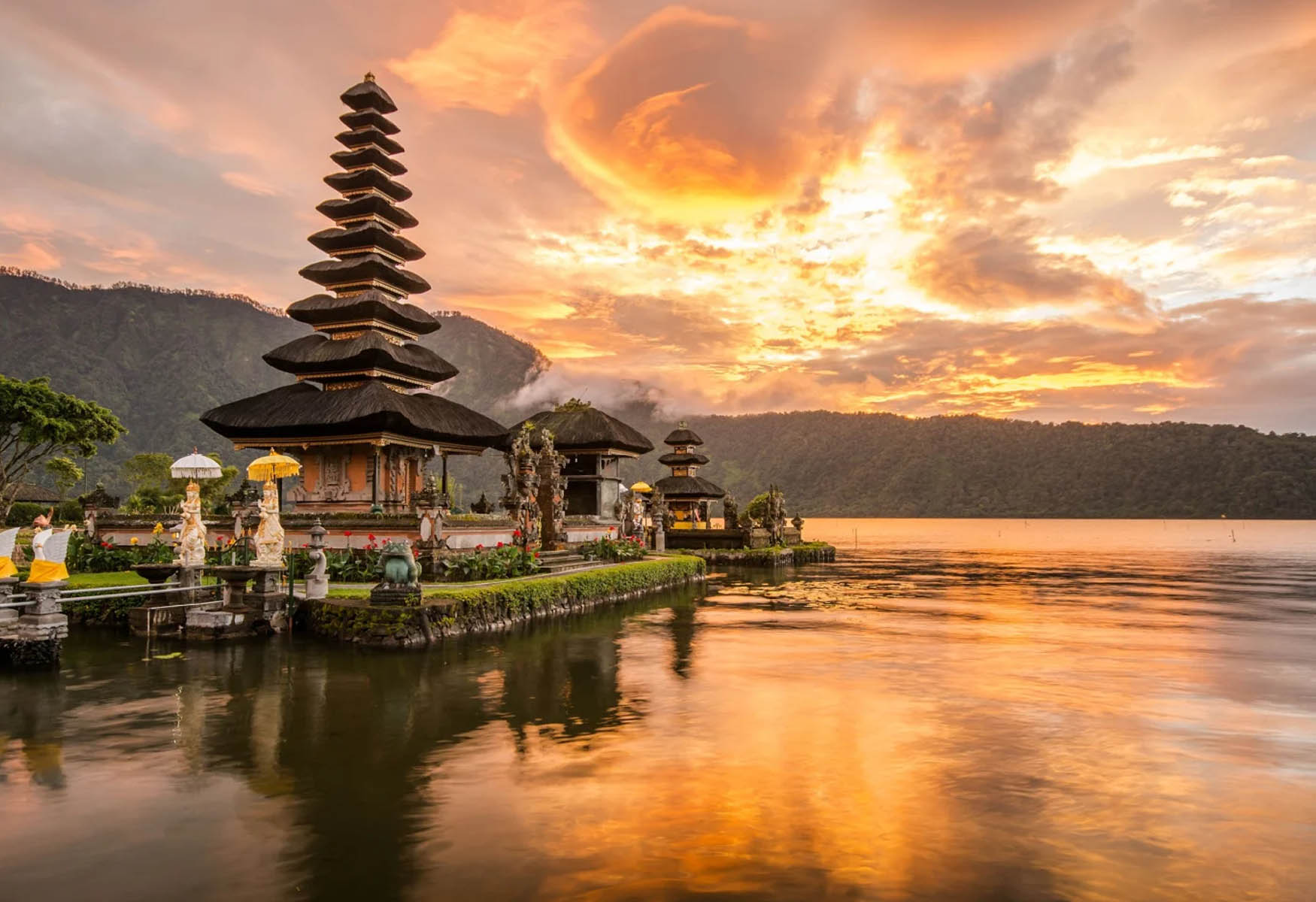
Introduction
Indonesia, with its breathtaking landscapes, vibrant culture, and warm hospitality, is a popular destination for travelers from all over the world. However, before embarking on a journey to this beautiful archipelago, it’s important to address a common concern: safety. Understanding and being prepared for potential risks can ensure a safe and enjoyable experience while exploring all that Indonesia has to offer.
Like any other country, Indonesia has its share of safety challenges. However, it’s crucial to note that the majority of visitors to Indonesia experience no safety issues. The key is to be well-informed, take necessary precautions, and exercise common sense to mitigate any risks.
In this article, we will explore various aspects of safety in Indonesia, including how to research potential risks and areas to avoid, how to prepare for a safe trip, and what measures to take to stay safe while in the country. By following these guidelines and using your own judgment, you can have a memorable and secure journey.
Understanding the Safety Situation in Indonesia
Before traveling to Indonesia, it’s important to have a clear understanding of the safety situation in the country. While Indonesia is generally a safe destination, it’s important to note that certain regions and areas may have higher risks than others. Conducting thorough research and staying informed is essential in order to make informed decisions about your travel plans.
One of the first steps in understanding the safety situation in Indonesia is to consult travel advisories issued by your government. These advisories provide detailed information about the security situation in specific regions and offer recommendations and precautions for travelers. It’s advisable to regularly check these advisories, as they are updated to reflect any changes in the safety situation.
It’s also important to research and understand the cultural and social norms in Indonesia. Familiarize yourself with the local customs, traditions, and laws to ensure that you respect the local culture and avoid inadvertently engaging in any activities that could potentially be perceived as disrespectful or offensive.
Another aspect to consider when understanding the safety situation in Indonesia is the potential for natural disasters. Indonesia is located in the Pacific Ring of Fire, making it prone to earthquakes, tsunamis, and volcanic activity. Familiarize yourself with emergency procedures and guidelines in case of such events, and stay informed about any ongoing developments or alerts from local authorities.
While it’s important to be aware of potential risks, it’s equally crucial to not let fear deter you from visiting Indonesia. By staying informed, being prepared, and exercising caution, you can mitigate risks and have a safe and enjoyable trip in this diverse and captivating country.
Researching Potential Risks and Areas
When planning a trip to Indonesia, it’s essential to research potential risks and areas that may have safety concerns. By understanding the specific risks associated with certain locations, you can make educated decisions about your travel itinerary and take necessary precautions.
Start by researching the overall security situation in Indonesia. Look for recent news articles, travel blogs, and forums to get a sense of any ongoing safety concerns or incidents in the country. Additionally, consult reliable travel websites and government advisories for up-to-date information on specific areas to avoid or exercise caution.
Pay attention to any travel warnings or alerts related to specific regions or cities in Indonesia. These warnings may be issued due to political unrest, terrorist threats, or civil disturbances. It’s important to take such advisories seriously and adjust your travel plans accordingly.
Furthermore, it’s recommended to research the local laws and regulations in the areas you plan to visit. Indonesia has stringent drug laws, and penalties for drug-related offenses can be severe. Understanding and respecting local laws can help you avoid any legal troubles during your stay.
Consider seeking advice from fellow travelers or locals who have recently visited Indonesia. Online travel forums can be a valuable resource for gathering information and gaining insights from firsthand experiences. These individuals can provide valuable recommendations and tips on specific areas to avoid or exercise caution.
Finally, consider consulting with a reputable travel agency or tour operator. They are familiar with the local conditions and can provide guidance on areas to visit that align with your safety preferences. They can also organize guided tours or arrange transfers, ensuring a more secure and hassle-free travel experience.
Taking the time to research potential risks and areas of concern before your trip to Indonesia will help you make informed decisions and take necessary precautions. By being well-prepared, you can minimize potential risks and focus on enjoying your time exploring the rich culture and natural beauty of this incredible country.
Preparing for a Safe Trip
Preparing for a safe trip to Indonesia involves taking proactive measures to ensure your well-being and security throughout your journey. By following these guidelines, you can minimize potential risks and enjoy a worry-free experience.
First and foremost, make sure to have comprehensive travel insurance that covers medical emergencies, trip cancellations, and theft or loss of personal belongings. It’s crucial to carefully review the policy and understand what is covered to ensure you have adequate protection throughout your trip.
Before traveling, check if you need any vaccinations or preventive medications for diseases prevalent in Indonesia. Consult a healthcare professional or visit a travel clinic to get the necessary vaccinations and follow any precautions related to food and water safety.
Make multiple copies of important travel documents such as your passport, visa, and itinerary. Keep one copy with you and leave another copy with a trusted friend or family member back home. It’s also a good idea to store digital copies in cloud storage for easy access if needed.
Research and pack appropriate clothing for the climate and cultural norms of the areas you plan to visit. Indonesia has a tropical climate, so lightweight and breathable clothing is recommended. However, it’s important to dress modestly in certain religious or conservative regions to respect local customs.
Invest in a quality travel lock to secure your luggage and hotel room. Use the lock to secure your bags during transit and in your hotel room when you’re away. Additionally, consider using a money belt or hidden pouch to keep your valuables safe while exploring.
Stay informed about local customs and etiquette. Learn a few basic phrases in Bahasa Indonesia, the official language, to show respect and facilitate communication. It’s important to be culturally sensitive and avoid behavior that may be considered disrespectful or offensive.
Finally, familiarize yourself with the transportation options in the areas you plan to visit. Research reputable taxi services or opt for ride-hailing apps like Gojek or Grab for secure and reliable transportation. If you plan to rent a vehicle, ensure you have proper documentation and drive responsibly.
By taking these steps to prepare for a safe trip, you can minimize potential risks and enjoy a smooth and secure journey throughout your time in Indonesia. Being proactive and well-prepared will give you peace of mind, allowing you to fully immerse yourself in the beauty and culture of this wonderful country.
Staying Safe While in Indonesia
While Indonesia is generally a safe destination, it’s important to remain vigilant and take necessary precautions to ensure your safety while traveling within the country. Here are some tips to help you stay safe during your time in Indonesia.
First and foremost, be aware of your surroundings and trust your instincts. If a situation feels uneasy or unsafe, remove yourself from it. Stay alert and mindful of your belongings, especially in crowded areas or while using public transportation.
Exercise caution when using ATMs and avoid using them in secluded or poorly lit areas. Skimming and card-related scams can occur, so it’s advisable to use ATMs located within reputable banks or in busy public areas.
When it comes to transportation, choose reliable and licensed providers. If using taxis, opt for well-known companies or ride-hailing services. Ensure that the driver is using the meter or agree upon a price before starting the journey. If possible, share your ride details with a friend or family member.
If you plan to use public transportation, be mindful of your belongings and keep them close to you. Avoid displaying expensive items or jewelry that might attract unwanted attention. It’s also a good idea to familiarize yourself with the local transport routes and schedules to avoid getting lost or being in unfamiliar areas at night.
While exploring tourist attractions or crowded places, be cautious of pickpockets. Keep your valuables secure, preferably in a crossbody bag or hidden pouch. Avoid carrying large amounts of cash and only use reputable money exchange services or withdraw money from trusted ATMs.
When it comes to your personal safety, trust your instincts and be cautious when interacting with strangers. Avoid traveling alone at night, especially in unfamiliar or poorly lit areas. It’s advisable to stick to well-lit and busy streets and take note of the location of nearby establishments or emergency services.
Respect local customs and traditions when visiting religious sites. Follow the dress code, remove your shoes when required, and avoid any behavior that may be considered disrespectful. It’s important to be mindful and show proper etiquette to the local community.
Lastly, stay updated on current events and developments in the areas you plan to visit. Keep an eye on local news or reach out to reliable sources for any potential safety concerns or recent incidents. It’s essential to be well-informed and adjust your travel plans accordingly to ensure your safety.
By following these tips and using your common sense, you can have a safe and enjoyable experience while traveling in Indonesia. Remember, safety should never compromise your exploration, so be prepared, stay informed, and embrace the wonders this enchanting country has to offer.
Emergency Contacts and Resources
Knowing the appropriate emergency contacts and having access to reliable resources is crucial for your safety during your stay in Indonesia. Familiarize yourself with the following contacts and resources:
1. Emergency Services: In case of immediate danger or emergencies, dial 112 for general emergencies or 110 for the police. These numbers can be reached from any mobile phone or landline throughout Indonesia.
2. Embassy or Consulate: It’s essential to have the contact information for your country’s embassy or consulate in Indonesia. They can provide assistance in case of lost passports, medical emergencies, or other related issues.
3. Local Authorities: Make note of the local police station nearest to your location. They can assist with non-emergency matters or incidents that require immediate attention.
4. Medical Assistance: Save the contact information for local hospitals or medical clinics in the areas you plan to visit. The emergency hotline for medical assistance is 118. Having the names of English-speaking doctors or medical facilities can also be helpful.
5. Travel Insurance Provider: Keep a copy of your travel insurance policy and the emergency contact number for your insurance provider. In case of any medical emergencies or other covered incidents, reach out to them for guidance and assistance.
6. Online Resources: Utilize reliable online resources to stay updated on the safety situation in Indonesia. Websites such as the official Indonesia Tourism website, local news outlets, and travel forums can provide valuable information on any recent developments or safety concerns.
7. Local SIM Card: Consider getting a local SIM card upon arrival in Indonesia. This will allow you to have a local phone number and access to local mobile networks, making it easier to contact emergency services or seek assistance if needed.
In addition to the emergency contacts and resources listed above, it’s also advisable to inform a trusted friend or family member of your travel plans. Share your itinerary, accommodation details, and contact information with them. This can be valuable in case of any unforeseen circumstances or emergencies.
Remember, being prepared and having access to the right contacts and resources is essential for your safety and well-being while in Indonesia. Stay vigilant, keep yourself informed, and trust your instincts to ensure a secure and enjoyable trip.
Indonesia is a stunning country with a rich culture and breathtaking landscapes that attracts travelers from around the world. While safety is a valid concern, with proper preparation and precautions, you can have a safe and enjoyable trip in Indonesia.
Understanding the safety situation in Indonesia by researching potential risks and areas to avoid is essential. Stay informed about the security situation by regularly checking travel advisories and consulting reputable sources. By being knowledgeable, you can make informed decisions about your travel plans and minimize potential risks.
Preparing for a safe trip involves taking proactive measures such as obtaining comprehensive travel insurance, obtaining necessary vaccinations, and making copies of important travel documents. It’s also essential to be aware of cultural norms, dress appropriately, and secure your belongings to mitigate any risks.
Staying safe while in Indonesia requires vigilance and common sense. Be aware of your surroundings, choose reliable transportation options, and protect your valuables. Knowing emergency contacts, including local police and medical services, embassy or consulate information, and having access to online resources, can provide you with the necessary support in case of an emergency.
In conclusion, while safety should always be a priority, it’s important not to let fear deter you from exploring the wonders of Indonesia. By being well-prepared, staying informed, and using your judgment, you can have a memorable and secure journey in this diverse and captivating country.
LEAVE A REPLY Cancel reply
Save my name, email, and website in this browser for the next time I comment.
- Privacy Policy
- Advertising
- Affiliate Disclosure
Indonesia Travel Restrictions
Traveler's COVID-19 vaccination status
Traveling from the United States to Indonesia
Open for vaccinated visitors
COVID-19 testing
Not required
Not required for vaccinated visitors
Restaurants
Not required in public spaces and enclosed environments.
Documents & Additional resources
Ready to travel, find flights to indonesia, find stays in indonesia, explore more countries on travel restrictions map, destinations you can travel to now, dominican republic, netherlands, philippines, puerto rico, switzerland, united arab emirates, united kingdom, know when to go.
Sign up for email alerts as countries begin to open - choose the destinations you're interested in so you're in the know.
Can I travel to Indonesia from the United States?
Most visitors from the United States, regardless of vaccination status, can enter Indonesia.
Can I travel to Indonesia if I am vaccinated?
Fully vaccinated visitors from the United States can enter Indonesia without restrictions.
Can I travel to Indonesia without being vaccinated?
Unvaccinated visitors from the United States can enter Indonesia without restrictions.
Do I need a COVID test to enter Indonesia?
Visitors from the United States are not required to present a negative COVID-19 PCR test or antigen result upon entering Indonesia.
Can I travel to Indonesia without quarantine?
Travelers from the United States are not required to quarantine.
Do I need to wear a mask in Indonesia?
Mask usage in Indonesia is not required in public spaces and enclosed environments.
Are the restaurants and bars open in Indonesia?
Restaurants in Indonesia are open. Bars in Indonesia are .

Is Indonesia Safe to Travel? Current Safety Status and Essential Travel Tips
Indonesia is generally safe for travel. However, be cautious about threats from terrorism and natural disasters. Stay alert in areas like Papua. Use licensed taxis and avoid motorcycle taxis at night. For female travelers, solo outings in the evening are unwise. Always consult the Travel Advisory for the latest updates.
To ensure a safe journey, follow essential travel tips. Always stay aware of your surroundings and avoid displaying valuables. Use reputable transportation services to navigate the cities. Familiarize yourself with local laws and customs to respect cultural sensitivities. Moreover, be cautious about consuming street food and tap water to avoid health issues.
Understanding the safety status in Indonesia empowers travelers. Prospective visitors can utilize this information to make informed decisions. In addition to safety considerations, exploring the rich cultural heritage, vibrant cities, and stunning landscapes enhances the travel experience. Next, we will discuss specific regions in Indonesia, their unique attractions, and safety considerations to help travelers plan their trip effectively.
Table of Contents
What Is the Current Safety Status for Travelers in Indonesia?
The current safety status for travelers in Indonesia is influenced by security, health, and environmental factors. This status indicates the overall level of risk travelers may encounter while visiting the country.
According to the U.S. Department of State, safety includes the assessment of crime rates, health risks, and natural disasters, which may affect tourists. The agency provides detailed information on various risks including terrorism, civil unrest, and health concerns.
Travel safety in Indonesia encompasses crime rates, natural disasters like earthquakes, health risks such as dengue fever, and the political environment. Each of these aspects can impact travelers’ experiences and well-being.
The World Health Organization (WHO) highlights that travelers should be aware of regional health risks and should take necessary precautions, such as vaccinations and preventive medications. Security advisories from reputable sources emphasize awareness of local conditions.
Several factors contribute to the travel safety status in Indonesia. These include natural calamities, urban crime in major cities, socio-political tensions, and public health issues.
According to the Global Peace Index 2023, Indonesia ranks 51st globally, indicating moderate safety. The country faces natural disaster risks, with over 100 annual earthquake occurrences, emphasizing the need for caution.
Travel safety impacts tourism, local economies, and international perceptions. Travelers may alter their plans based on safety assessments, which can affect local businesses that rely on tourism.
The dimensions of safety cover health measures, environmental precautions, socio-political awareness, and economic stability. A lack of safety can deter visitors, impacting jobs and income for local families.
For instance, security incidents in Bali have increased travelers’ concerns, resulting in a decline in bookings for certain tourist spots. Health warnings during outbreaks of diseases like COVID-19 also influence travel trends.
To address safety issues, various experts recommend travelers stay informed through reliable sources, have emergency plans, and remain vigilant while exploring.
Recommendations include following guidelines from the Ministry of Tourism of Indonesia, ensuring travel insurance, and knowing local emergency numbers to enhance overall safety.
Strategies like employing travel advisories, mobile apps for real-time alerts, and community engagement can further improve traveler safety. Adopting these practices can mitigate risks and enhance the travel experience in Indonesia.
What Do Recent Travel Advisories Say About Indonesia’s Safety?
Recent travel advisories indicate that Indonesia presents both opportunities and challenges for travelers concerning safety.
- Natural Disasters
- Health Risks
- Crime Rates
- Transportation Safety
- Political Stability
- Cultural Considerations
Given these main points, it is essential to explore each aspect to understand how they contribute to the overall safety evaluation for travel in Indonesia.
Natural Disasters: Natural disasters in Indonesia are a significant aspect of the safety landscape. Indonesia is located in the Pacific Ring of Fire, making it susceptible to earthquakes and volcanic eruptions. According to the US Geological Survey, Indonesia experiences about 3,000 earthquakes annually, though many are minor. Travelers should be aware of active volcanoes, such as Mount Merapi, which have erupted in the past. The National Disaster Mitigation Agency of Indonesia offers guidelines for staying safe during such events.
Health Risks: Health risks are also a consideration for travelers in Indonesia. Diseases such as dengue fever, malaria, and typhoid can be prevalent in certain regions. The World Health Organization recommends vaccinations and preventive measures, including mosquito repellent and clean water access. Additionally, the COVID-19 pandemic has influenced health advisories, with the CDC urging travelers to stay informed about local regulations and health facilities.
Crime Rates: Crime rates in Indonesia can vary between urban and rural areas. Petty crime, such as pickpocketing, is more common in crowded tourist spots. According to a 2022 report by Numbeo, the crime index in Bali is lower than in larger cities like Jakarta. Travelers should remain vigilant and keep personal belongings secure to minimize risk.
Transportation Safety: Transportation safety is another factor to consider. Road conditions can vary significantly, with rural areas potentially lacking proper maintenance. The National Police of Indonesia has reported increased accident rates. Using reputable transportation services, such as licensed taxis or ride-sharing apps, can enhance safety while traveling.
Political Stability: Political stability affects travel safety as well. Indonesia has experienced protests and political unrest, particularly in response to government policies. The US Department of State has issued warnings about potential unrest in certain areas. Staying updated with local news and avoiding large gatherings can help travelers navigate political climates safely.
Cultural Considerations: Cultural considerations play a vital role in ensuring a safe travel experience. Respect for local customs and traditions is crucial for positive interactions. Areas like Bali have a unique culture that emphasizes harmony and respect. Understanding the cultural norms can help mitigate potential misunderstandings and ensure a more enjoyable visit.
These factors collectively shape travel advisories and give a comprehensive view of Indonesia’s safety landscape. It is advisable for travelers to conduct thorough research and prepare adequately to navigate these considerations effectively.
Why Should Travelers Exercise Caution in Certain Regions of Indonesia?
Travelers should exercise caution in certain regions of Indonesia due to diverse safety concerns, including natural disasters, political instability, and specific health risks. Knowing these factors can help travelers make informed decisions and stay safe during their visits.
According to the U.S. Department of State, caution is advised in specific areas of Indonesia due to these varied threats. The department provides travel advisories that assess safety levels based on government analysis and intelligence reports.
Several underlying causes necessitate caution in Indonesia. One primary reason is the country’s geographical location. Indonesia is situated on the Pacific Ring of Fire, making it susceptible to natural disasters such as earthquakes, tsunamis, and volcanic eruptions. Additionally, certain regions experience political unrest or social tensions that can pose risks to travelers. Economic disparities can also lead to crime spikes in urban areas.
Natural disasters are events that cause significant disruption and can lead to loss of life or property. For example, seismic activity frequently occurs in Indonesia, resulting in earthquakes that can trigger tsunamis, impacting coastal areas. Political unrest may arise from issues such as elections, ethnic tensions, or local governance disputes, leading to protests or riots.
Specific conditions that contribute to these risks include geographical factors and social issues. Regions like Aceh and Papua may have heightened security alerts due to separatist movements or conflicts. Tourists may also face health risks, such as dengue fever or foodborne illnesses, particularly in areas lacking proper health facilities.
Travelers should stay informed about current events, follow local advice, and register with their embassy for updates. For instance, avoiding travel near Mount Merapi during heightened volcanic activity is advisable. Understanding these specifics allows travelers to take necessary precautions and enhance their safety while exploring Indonesia.
What Types of Crime Should Travelers Be Aware of in Indonesia?
Travelers in Indonesia should be aware of the following types of crime.
- Petty Theft
- Drug-related Crime
- Sexual Assault
- Traffic Accidents
Understanding these crimes can help travelers navigate their experiences in Indonesia more safely and confidently.
Petty Theft : Petty theft refers to small-scale crimes involving the theft of personal belongings. In Indonesia, this often includes pickpocketing or bag snatching in crowded areas, such as markets or tourist attractions. According to a report by the U.S. Department of State (2020), thieves often operate in pairs, distracting the target while one steals. Travelers should secure their belongings and remain vigilant.
Scams : Scams involve deceitful schemes to defraud individuals. In Indonesia, tourists may encounter common scams, like taxi overcharging or unsolicited guide services. A study by the University of Bali indicated that nearly 30% of tourists had experienced at least one scam while visiting (Jones, 2019). Awareness and research before travel can mitigate these risks.
Drug-related Crime : Drug-related crime involves drug possession, trafficking, or use of controlled substances. Indonesia has strict anti-drug laws and significant penalties, including long prison sentences or even the death penalty for trafficking. The Indonesia Narcotics Board emphasizes that drug offenses can lead to severe legal consequences.
Sexual Assault : Sexual assault includes any unwanted sexual contact or behavior. While reported cases may be low, incidents can still occur in crowded areas or nightlife hotspots. The Indonesian National Police advises travelers to avoid isolated places and remains in public areas, especially at night.
Terrorism : Terrorism refers to acts of violence intended to intimidate or coerce a population. Indonesia has faced terrorist attacks in the past, primarily from extremist groups. According to the National Counterterrorism Agency, security measures are in place, but travelers should stay updated on travel advisories and remain aware of their surroundings.
Traffic Accidents : Traffic accidents involve collisions or injuries on roads. Traffic in Indonesian cities can be chaotic, and road safety standards may differ from what travelers are accustomed to. The World Health Organization (2018) reports that Southeast Asia has high rates of traffic-related fatalities. Travelers should consider public transportation and avoid driving when possible.
By being informed about these types of crime, travelers can take proactive steps to enhance their safety while visiting Indonesia.
How Can Tourists Protect Themselves Against Petty Crime in Indonesia?
Tourists can protect themselves against petty crime in Indonesia by staying vigilant, securing belongings, and avoiding risky situations. Here are detailed strategies to enhance personal safety:
Stay Aware of Surroundings : Tourists should remain conscious of their environment. Being alert helps in identifying potential threats. A study by the World Health Organization (WHO, 2017) emphasizes that a significant number of tourists experience theft in crowded areas.
Secure Personal Belongings : Using zippers and locks on bags can deter thieves. Tourists should carry their valuables, such as passports and money, inside a concealed money belt or neck pouch. The U.S. State Department (2022) recommends keeping important items close to the body.
Avoid Displaying Valuables : Tourists should refrain from showcasing expensive items like jewelry or electronics in public. This practice reduces the likelihood of attracting unwanted attention.
Use Trusted Transportation : Opting for registered taxis or reputable ride-sharing services enhances safety. A report from the Indonesian National Police (2021) indicates that unauthorized taxis are often targets for petty crimes.
Stay in Well-Lit and Busy Areas : While exploring, staying in crowded and well-lit areas minimizes risks. Robbers tend to avoid places with many witnesses, as noted in a study by the International Crime Prevention Association (ICPA, 2019).
Learn Basic Local Phrases : Understanding simple phrases in Bahasa Indonesia can help tourists navigate and seek help if needed. Clear communication can prevent misunderstandings that may lead to safety issues.
Be Cautious with Alcohol Consumption : Tourists should limit alcohol intake, especially in unfamiliar areas. Alcohol can impair judgment and increase vulnerability, as highlighted by research in the Journal of Travel Medicine (Smith et al., 2020).
Trust Your Instincts : If a situation feels uncomfortable, tourists should feel empowered to leave. Trusting one’s instincts is crucial in ensuring personal safety.
By implementing these strategies, tourists can significantly reduce the risk of petty crime while enjoying their visit to Indonesia.
Are There Specific Safety Concerns for Women Traveling Alone in Indonesia?
Yes, there are specific safety concerns for women traveling alone in Indonesia. While many solo female travelers enjoy their experiences in the country, it is important to remain vigilant and aware of local customs and potential risks.
In Indonesia, cultural expectations and social norms vary significantly across regions. In urban areas such as Jakarta and Bali, women may experience greater freedom and acceptance compared to rural regions, where traditional values are more pronounced. Solo female travelers may encounter different attitudes towards them, which can affect their experiences. For example, in more conservative areas, women might face unwanted attention, whereas in tourist-friendly locations, they may find a more welcoming atmosphere.
On the positive side, Indonesia is known for its hospitality and vibrant culture. Numerous female travelers report a positive experience and appreciate the friendly nature of locals. Reports indicate that about 76% of solo female travelers in Indonesia felt safe during their trips (Travel Safe Association, 2022). Many travel blogs and forums highlight favorable interactions between women and local residents, fostering a sense of security in popular tourist destinations.
Conversely, there are negative aspects to consider. The potential for harassment exists, particularly in crowded areas or when using public transportation. A study by the International Society of Travel Safety (ISTS, 2021) noted that 45% of women travelers experienced some form of harassment while abroad, with Indonesia being one of the reported locations. Additionally, crime rates can vary, and petty thefts, such as pickpocketing, occur in certain areas.
Given these considerations, women traveling alone in Indonesia should take precautions. Recommended strategies include dressing conservatively, staying aware of surroundings, and avoiding isolated areas, especially at night. Joining guided tours can also provide a safer experience. Additionally, it is important to connect with other travelers or local female communities for advice and support.
How Prepared Should Travelers Be for Natural Disasters in Indonesia?
Travelers in Indonesia should be well-prepared for natural disasters. Indonesia is located on the Pacific Ring of Fire, making it prone to earthquakes, volcanic eruptions, and tsunamis. Prior to traveling, individuals should research the specific risks associated with their destinations in Indonesia.
Travelers should carry an emergency kit. This kit should include essentials such as water, non-perishable food, a first aid kit, a flashlight, and extra batteries. Knowledge of emergency hotlines and local evacuation routes is important. Travelers should also store copies of important documents, such as passports and insurance information, in a secure location.
Before a trip, travelers should monitor local news and obey travel advisories issued by their government. Understanding basic safety procedures, such as “Drop, Cover, and Hold On” during earthquakes, is crucial. Additionally, travelers should familiarize themselves with their accommodation’s safety measures and emergency plans.
To connect the steps: First, research specific natural disaster risks in the area. Next, prepare an emergency kit based on these risks. Then, stay informed and educate oneself on safety procedures. Finally, ensure all important information is readily accessible.
In summary, travelers in Indonesia should prioritize preparedness for natural disasters. Understanding risks, having an emergency plan, and staying informed enhances safety during their visit.
What Steps Can Travelers Take to Stay Safe During an Earthquake or Tsunami?
Travelers can take several steps to stay safe during an earthquake or tsunami. Preparation and awareness are essential for ensuring personal safety in these natural disasters.
- Prepare an emergency kit
- Develop a communication plan
- Familiarize yourself with local safety procedures
- Identify safe locations in case of an earthquake
- Know evacuation routes for tsunamis
- Stay informed about weather updates and alerts
- Practice earthquake drills
Understanding how to respond effectively during an earthquake or tsunami is crucial. Here’s a detailed explanation of each safety step.
Prepare an Emergency Kit : Preparing an emergency kit means gathering essential supplies to survive after a disaster. The kit should include water, non-perishable food, a first-aid kit, flashlight, batteries, and important documents. According to the Red Cross, households should prepare enough supplies to last at least three days.
Develop a Communication Plan : Developing a communication plan involves creating a strategy for how to contact family and friends during an emergency. This should include designated meeting points and alternative communication methods. The Federal Emergency Management Agency (FEMA) suggests that families regularly discuss their plans to ensure everyone is aware of them.
Familiarize Yourself with Local Safety Procedures : Familiarizing yourself with local safety procedures means learning how your destination responds to natural disasters. Different regions may have specific protocols in place. Travelers should review local government websites or contact the tourism office for this information.
Identify Safe Locations in Case of an Earthquake : Identifying safe locations involves knowing areas that are structurally sound and away from windows, heavy furniture, or tall objects. The Centers for Disease Control and Prevention (CDC) recommend “Drop, Cover, and Hold On” as a protective action during an earthquake.
Know Evacuation Routes for Tsunamis : Knowing evacuation routes means being aware of the quickest paths to higher ground if a tsunami warning occurs. The National Oceanic and Atmospheric Administration (NOAA) provides tsunami evacuation maps that are crucial for coastal areas prone to tsunamis.
Stay Informed About Weather Updates and Alerts : Staying informed involves monitoring news outlets, apps, or local radio stations for real-time information on potential disasters. Alerts about earthquakes or tsunamis can significantly improve response times and overall safety.
Practice Earthquake Drills : Practicing earthquake drills ensures that everyone understands how to respond during an earthquake. Drills can help solidify actions like seeking cover and moving to safety. FEMA emphasizes that regular practice can reduce panic and confusion during an actual event.
What Essential Travel Tips Can Help Enhance Safety While Visiting Indonesia?
To enhance safety while visiting Indonesia, travelers should follow essential tips. These tips include awareness of local customs, health precautions, travel insurance, secure transportation, and avoiding risky areas.
- Awareness of Local Customs
- Health Precautions
- Travel Insurance
- Secure Transportation
- Avoiding Risky Areas
To ensure a safe experience, it is important to elaborate on each tip and provide context.
Awareness of Local Customs : Awareness of local customs is crucial for ensuring respectful and safe interactions in Indonesia. Each region has unique traditions and cultural norms. Understanding these customs can prevent misunderstandings and unintentional offenses. For instance, dress modestly and show respect in religious sites. The Indonesian Ministry of Tourism emphasizes that acknowledging local etiquette enhances visitor experiences and fosters goodwill.
Health Precautions : Health precautions are vital for maintaining well-being while traveling in Indonesia. Vaccinations for diseases like hepatitis A and typhoid are recommended. The CDC advises travelers to drink bottled or boiled water and avoid raw foods to reduce the risk of foodborne illnesses. Carrying a basic first-aid kit is beneficial. According to a 2021 report by the World Health Organization, proper health measures can significantly reduce the chance of illness during travel.
Travel Insurance : Travel insurance provides protection against unexpected events, including medical emergencies, trip cancellations, and lost belongings. Many travelers overlook this, but it can be a lifesaver. Policies vary, so choosing a comprehensive plan is advised. The Global Business Travel Association indicates that having travel insurance can help mitigate financial losses and provide peace of mind during a trip.
Secure Transportation : Secure transportation is critical for safety while navigating Indonesia. Use reputable taxi services or rideshare apps like Grab, which are widely available. Avoid hailing random taxis, as they may not be licensed. In a 2019 study by the Asian Development Bank, safety in transportation was highlighted as a key issue for travelers in Southeast Asia. Opting for well-reviewed transportation options minimizes risk.
Avoiding Risky Areas : Avoiding risky areas is essential for traveler safety. Certain regions may have higher crime rates or social unrest. Research destinations in advance and stay informed about local news. The Australian Government’s Department of Foreign Affairs and Trade warns travelers to exercise caution in areas known for political protests. Awareness of one’s surroundings can help avoid dangerous situations.
By following these essential safety tips, travelers can enjoy a secure and enriching experience while visiting Indonesia.
Why Is It Crucial to Understand Local Laws and Customs in Indonesia?
Understanding local laws and customs in Indonesia is crucial for several reasons. This comprehension helps travelers and expatriates navigate the social and legal environment effectively. It reduces the risk of misunderstandings and legal issues that can arise from cultural differences and unfamiliar regulations.
The U.S. Department of State defines cultural awareness as “understanding the values, norms, and practices of different societies.” This understanding promotes respectful interactions and helps avoid actions that might be considered offensive or illegal.
Several underlying reasons highlight the importance of understanding local laws and customs. First, cultural norms vary greatly between Indonesia and Western countries. For instance, Indonesian culture emphasizes politeness and respect for hierarchy. Second, local laws can be strict, and their application may be different from what visitors expect. Violating these laws, even unknowingly, can lead to significant penalties, including fines or incarceration. Third, understanding local customs fosters positive relationships with local people, enhancing the travel experience or business dealings.
Specific legal terms, such as “cultural relativism,” refer to the practice of evaluating a culture based on its values and beliefs rather than comparing it to one’s own culture. This concept is essential, as it encourages a respectful approach to different societal norms.
The mechanisms involved in adapting to local laws and customs include research, open-mindedness, and engagement with locals. Travelers should study Indonesian laws related to behavior, dress codes, and social customs. For example, modest dress is often expected in religious sites. Also, knowing how to greet locals respectfully can lead to better interactions.
Certain conditions can exacerbate misunderstandings. For instance, actions that may be acceptable in one culture, such as public displays of affection, could be deemed inappropriate in Indonesia. An example includes refusing to accept items with the left hand, as it is considered disrespectful. Another scenario is discussing sensitive topics, such as politics and religion, which may lead to discomfort or conflict.
In summary, understanding local laws and customs is vital for respectful and safe interactions in Indonesia. It enhances personal safety and enriches the overall experience in the country.
How Can Travel Insurance Provide Protection and Peace of Mind in Indonesia?
Travel insurance provides protection and peace of mind in Indonesia by covering unexpected events such as medical emergencies, trip cancellations, and loss of belongings. This coverage allows travelers to handle unforeseen circumstances smoothly and reduces financial stress.
Travel insurance offers several key benefits:
Medical emergencies: Travel insurance covers medical expenses incurred due to accidents or illnesses during a trip. According to the World Health Organization (2020), medical care abroad can be significantly more expensive. For example, a hospital stay in Indonesia can cost between $100 to $1,000 per day, depending on the facility.
Trip cancellations: This insurance protects against losses from canceled trips. According to a study by the U.S. Travel Insurance Association (2021), nearly 30% of travelers experience trip cancellations. Covered reasons may include illness or natural disasters, which ensure that travelers do not lose all their prepaid costs.
Lost or delayed belongings: Travel insurance often includes coverage for lost, stolen, or delayed baggage. The Travel Insurance Association reported in 2021 that 2% of travelers experience lost luggage. Having insurance can alleviate the stress of trying to replace essential items in an unfamiliar location.
Emergency evacuation: Some policies cover emergency evacuation and transportation to medical facilities. The U.S. State Department (2022) noted that evacuation costs can reach over $100,000 in certain emergency situations, making this coverage invaluable for travelers in need.
24/7 assistance: Many travel insurance providers offer 24/7 assistance services, which can help travelers navigate emergencies. This support can range from arranging medical care to providing travel updates, offering a sense of security and reassurance.
Liability coverage: Travel insurance may also include personal liability coverage in case of accidents that cause injury to others or damage to property. This can protect travelers from potentially costly legal claims.
With these benefits, travel insurance becomes a vital resource for anyone traveling to Indonesia. It not only safeguards against the financial burden of unexpected events but also enhances the overall travel experience by providing peace of mind.
What Popular Tourist Destinations Are Considered Safe to Visit in Indonesia?
The popular tourist destinations considered safe to visit in Indonesia include Bali, Yogyakarta, the Gili Islands, Komodo Island, and Ubud.
- Gili Islands
- Komodo Island
While the majority of these destinations are deemed safe, it is essential to recognize that safety can vary based on different circumstances, such as the local political climate, natural disasters, and regional variations in crime. Tourists should always stay informed about travel advisories and local news for any updates.
Bali : Bali is a well-known destination that attracts millions of visitors every year. The island is famous for its beautiful beaches, vibrant culture, and friendly locals. According to a 2022 report by the Ministry of Tourism of Indonesia, Bali has a low crime rate compared to many tourist hotspots worldwide. The lush landscapes and temples, like Uluwatu and Tanah Lot, enhance its appeal. However, petty crime, like pickpocketing, can occur in crowded areas.
Yogyakarta : Yogyakarta is renowned for its rich cultural heritage and proximity to historical sites, such as Borobudur and Prambanan temples. It enjoys a reputation for being safe for tourists, as reported in a 2021 travel safety survey. The city has a vibrant local atmosphere and is known for its artistic scene. While pickpocketing can happen in busy markets, overall, the local community is welcoming and protective of visitors.
Gili Islands : The Gili Islands offer stunning beaches and scuba diving opportunities. They are popular for their relaxed vibe and minimal vehicle traffic. The Gili Islands, particularly Gili Trawangan, have a reputation for being safe, largely due to active local security measures. A 2022 safety analysis indicated that violent crime is very rare. Visitors should remain cautious and avoid isolated areas at night.
Komodo Island : Komodo Island, famous for its native Komodo dragons, is generally considered safe for tourists. The national park has strict regulations ensuring the safety of visitors and the protection of wildlife. According to national park officials, guided tours are mandatory, which adds to visitor safety. However, travelers should be aware of their surroundings and adhere to park rules to avoid potential hazards.
Ubud : Ubud is known for its lush landscapes, wellness retreats, and traditional arts. It is a popular destination for travelers seeking tranquility and cultural experiences. The area has low crime rates and is frequented by wellness tourists. A 2023 local tourism report showed that crime rates related to tourists remain low, making it a safe choice for both relaxation and exploration.
In conclusion, these destinations combine natural beauty, cultural richness, and relative safety for travelers, making them ideal choices for a visit to Indonesia.
How Do Safety Levels Vary Between Cities Like Bali, Jakarta, and Yogyakarta?
Safety levels vary significantly between cities like Bali, Jakarta, and Yogyakarta due to differing crime rates, tourist attraction management, and local infrastructure.
Bali: – Bali is considered a safer destination for tourists. According to the Global Peace Index (2022), Bali ranks higher on safety compared to other Indonesian regions. – Petty crime, such as pickpocketing, can occur, particularly in tourist-heavy areas. However, violent crime rates remain low. – The local police are generally proactive in ensuring safety, especially in resort areas.
Jakarta: – Jakarta exhibits a higher crime rate compared to Bali and Yogyakarta. The Jakarta police reported in 2023 that urban crime, including theft and scams, is more prevalent due to higher population density. – Traffic accidents pose significant safety concerns. The World Health Organization (WHO) indicated that Indonesia has a high rate of traffic fatalities, particularly in Jakarta. – Despite these issues, parts of Jakarta, especially business districts, are generally safe during the day, but night-time safety can be a concern.
Yogyakarta: – Yogyakarta is known for being a safe city with a strong sense of local community. The Indonesian Institute of Statistics reported a low crime rate here in 2022. – Most incidents are minor, such as petty theft in crowded areas. However, locals and tourists generally feel safe walking around. – The city also has a rich cultural heritage, which is well-managed, contributing to overall safety. Local authorities ensure the protection of historical sites and their visitors.
These variations in safety levels highlight the importance of being aware of local conditions when traveling in Indonesia.
- Is img travel insurance good
- Is i-20 a travel doc
- Is honduras safe to travel
- Is high cholesterol a pre existing condition for travel insurance
- Is havana safe to travel to

Indonesia Travel Guide
Last Updated: September 12, 2024
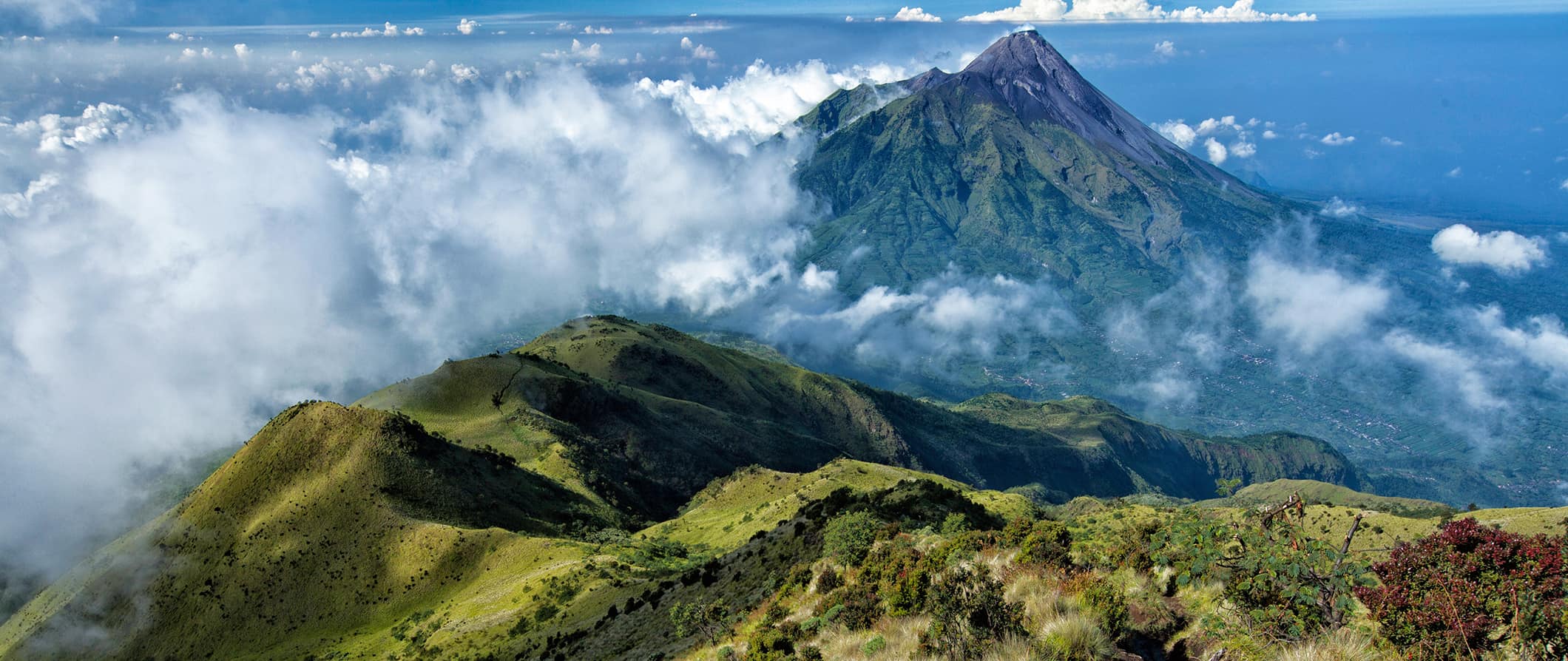
With over 17,000 islands, Indonesia is the world’s largest island country. Home to over 261 million people, it boasts stunning landscapes, incredible beaches, amazing food, and affordable prices.
While most people just visit Bali, backpacking further afield in the country is an underrated activity. With so much on offer, it can take months to see everything because there is just so much to see and do here: hectic and chaotic cityscapes, cool white sand beaches, and violent volcanoes. Indonesia has it all.
And it’s easy to visit Indonesia on a budget too. It’s extremely inexpensive and your money goes far here.
While most travelers fly to Bali and visit the Gili Islands or head to Lombok, I encourage you to try to get to the less touristy destinations and off the beaten path. Find dragons in Flores, go hiking, see the historic ruins of Java, and go to Sumatra. You’ll find even cheaper prices and far fewer crowds once you escape the digital nomad hub of Bali.
This Indonesia travel guide can help you plan your trip, save money, and make the most of your time in this island paradise!
Table of Contents
- Things to See and Do
- How to Stay Safe
- Where to Stay
- Typical Costs
- Suggested Budget
- Money-Saving Tips
- How to Get Around
- Best Places to Book Your Trip
- Related Blogs on Indonesia
Click Here for City Guides
Top 5 things to see and do in indonesia.
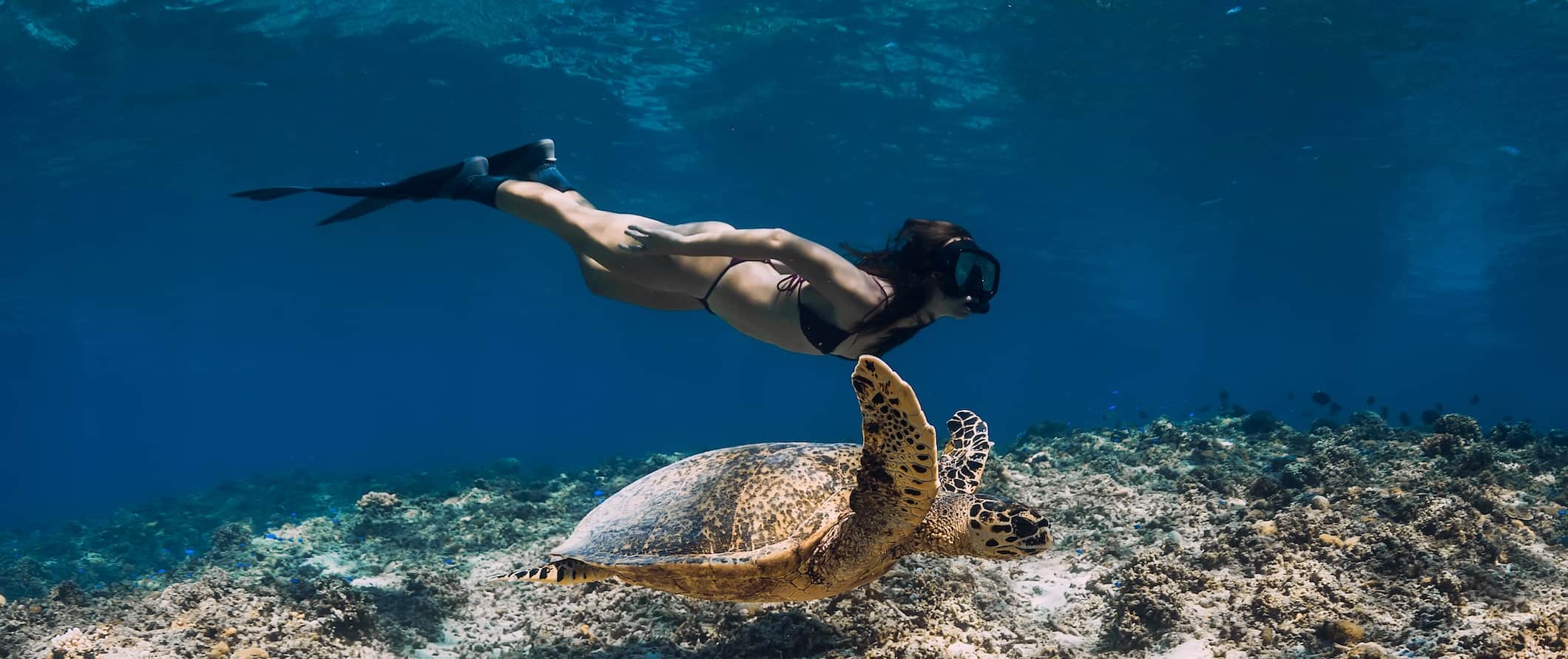
1. Relax in Bali
Bali is probably the most famous of Indonesia’s islands. Although often crowded with travelers, there is no escaping the fact that this place is beautiful. Try some surfing at Bingin Beach or visit the Pura Besakih, the Mother Temple, which is truly stunning to behold. Make sure you see some traditional Balinese dancing in Ubud too. You can also join a yoga retreat pretty much anywhere on the island and cooking classes are also plentiful and make for a great souvenir.
2. Dive in the Gili Islands
For a true sense of an island paradise, head to the Gili Islands . There are excellent (and cheap) scuba and snorkel facilities as well as great nightlife on Gili Trawangan. These islands are super popular with backpackers thanks to their super cheap accommodation and food, party scene, and stunning beaches for lazing around all day.
3. Admire Borobudur
Borobudur is a the world’s biggest Buddhist temple complex, dating from the 8th and 9th centuries. With 2,672 reliefs meant to highlight Buddhist teachings, it’s made from blocks of volcanic rock. Each level is supposed to describe the stages of life. It is said you can’t move on to the top until you discover the meaning of each relief. Admission for foreign adults is around 380,000 IDR.
4. See Komodo dragons
The subject of more nature documentaries than any other lizard, the Komodo dragon is a force to be reckoned with. Komodo National Park, part of the Lesser Sunda Islands, is the only place to see the world’s largest lizard in the wild, which grows up to 10 feet long and weighs over 135 kilograms (300 pounds). Admission is 150,000 IDR during the week, with prices rising to 250,000 IDR on Sundays and holidays (just note that there are additional fees for other activities including ranger fees, hiking fees, diving fees, and so on). The only way to really visit Komodo National Park is on a tour since the islands are over an hour away from Labuan Bajo port on Flores Island.
5. Visit Bromo-Tengger-Semeru National Park
Bromo-Tengger-Semeru National Park covers a total of 800 square kilometers (308 square miles) at the center of East Java and is the largest volcanic region in the province. Get up early to catch one of the most memorable sunrises of your life from the top of Mount Bromo or Mount Semeru. The easiest way to get here is from Probolinggo, through the village of Ngadisari. Although it doesn’t take long to get to the summit (around 45 minutes up a sandy slope) and access to the trail is free, a number of tour operators run guided trips through the park, which includes transport to and from the park.
Other Things to See and Do in Indonesia
1. explore hindi prambanan.
There are 244 temples at this 9th-century UNESCO World Heritage Site, with the central compound being the main attraction. There are eight minor temples and eight major temples here, with the tallest being 45 meters (150 feet) — which is actually taller than Borobudur. Located in Yogyakarta, there’s a lot to see, so schedule a full day here (it’s the second-largest temple complex in Southeast Asia, after Angkor Wat). Admission is around 380,000 IDR.
2. Wander Jakarta
Indonesia’s capital is a large, bustling city with a population of over 10 million. You could easily spend a few days here as there is a lot to see. Admire Istana Merdeka, the presidential palace (visitors are not allowed inside); see the Monas Tower, a symbol of Indonesia’s independence; check out Ancol Beach; visit the National Museum, and go shopping at the Jalan Surabaya Flea Market. For a moment of calm, people-watch from one of the cafes overlooking Fatahillah Square in the Old Batavia, the Dutch Quarter, where you can take in the historic architecture as you take in the local pace of life.
3. Snorkel or dive in Bunaken
The Bunaken National Marine Park is located in the Bay of Manado and it’s where you want to go if diving or snorkeling is your thing. These deep waters offer fantastic visibility and some of the world’s most biodiverse marine life. Keep an eye out for tuna, sharks, rays, turtles, sea snakes, and more. Entry to the marine park is 50,000 IDR per person, though children under 10 enter free.
4. Broaden your taste buds
Indonesia is home to 17,000 islands and over 260 million people. The country is brimming with diverse cultures, traditions, and beliefs. If you want some idea of how diverse this place is, there are over 700 languages spoken here! This diversity is very much reflected in the food. Javanese, Sundanese, Padang, and Balinese food are just some of your options. Hit the markets, participate in cooking classes, or take food tours to get a taste of what the country has to offer. Your tastebuds will thank you!
5. Visit Yogyakarta
Yogyakarta is Indonesia’s cultural hub and is a much less industrial city compared to Jakarta. There is an interesting blend of old customs with modern living here (the region still has a sultan/monarchy). It’s a hip place filled with street art, galleries, cafes, great nightlife, and a strong arts community. Yogyakarta is also a good jumping-off point for exploring the popular and picturesque Borobudur and Prambanan sites.
6. See the orangutans in Sumatra
A mysterious and rare primate, the orangutan finds its habitat on the Indonesian island of Sumatra. A visit to see these primates is a moving experience. And, given the rapid deforestation and fires in the area, you probably want to do this sooner rather than later as these animals are gravely endangered. If you go, make sure you’re traveling with an eco-friendly tour company. Reputable companies don’t let you get in close contact with the animals, as the risk of disease is too high. Even a common cold can knock out a baby orangutan. Nevertheless, seeing these majestic animals is an amazing and life-changing experience. Week-long guided treks cost around 20,000,000 IDR per person.
7. Experience village life in Kalibaru
Kalibaru is a small village on the southeastern side of Java. It’s quiet, secluded, and a great place to tour one of the many plantations (cacao, coffee, dragon fruit, rubber, and spices, among others) in the area on your way to or from Bali. It’s not as well-visited as many other places in Indonesia, meaning you can escape the crowds and get a chance to experience what local life is really like. You can stay here after a trip to Mount Bromo, or just visit on a day trip.
8. See the Bogor Botanical Gardens
Located 65 kilometers (40 miles) outside of Jakarta, the Bogor Botanical Gardens have over 200 acres of land and 15,000 species of plants and trees. The gardens are a lovely spot in which to lose yourself for a couple of hours with a book and some snacks. Admission is around 26,000 IDR. There is a commuter train between Bogor and Jakarta with a stop right next to the gardens.
9. See the Banyu Wana Amertha Waterfalls
These are some of the most beautiful waterfalls in Bali, and yet not many people make the trek here. They’re located about 90 minutes from Ubud, and then you have to hike through a banana plantation to reach the falls. It’s worth it as there are several sets of falls to explore. Just make sure to bring your swimsuit!
10. Explore the megaliths in Bada Valley
Near Lore Lindu National Park are 400 ancient stone megaliths scattered around the hills. No one really knows the origins of these structures, but they’re thought to be over 5,000 years old. No settlement remains or tools were ever found in the area. It’s best to hire a local guide here as the megaliths are not easy to find.
11. Visit the House of Danar Hadi
The House of Danar Hadi in Surakarta (Central Java) is considered one of the world’s best batik museums, with a handpicked selection of favorites from the owner’s collection of 11,000 pieces (batik is a cloth-dyeing method from Java). You have to take a tour to see it all, but it’s worth it. There are lots of antique and royal items on display. They also have batik demonstrations showcasing how these detailed pieces are made. Admission is 35,000 IDR.
12. See the lakes in Kelimutu National Park
Kelimutu National Park, on the island of Flores, is renowned for its tri-colored crater lakes. The crater lakes have continuously changed color over the years, likely due to the mineral makeup in the water. Sometimes they’re green, black, brown, red, blue, etc. The lakes are very sacred among the locals, who believe that they’re the final resting spots of departed souls. Moni is the closest town to the lakes; from there you can take public transportation to the park. Admission to the park is 150,000 IDR.
For more information on specific cities in Indonesia, check out these guides:
- Bali Travel Guide
- Gili Islands Travel Guide
How to Stay Safe in Indonesia
Indonesia is a safe place to backpack and travel. Violent crime is rare. Petty theft (including bag snatching) is the most common type of crime in Indonesia. It’s most common on public transit as it’s easy for thieves to grab your wallet or purse when you’re distracted by all the chaos around you. Staying alert and securing your valuables is the best way to prevent petty theft.
Credit card fraud is also common in Indonesia. To avoid this, it’s always best to pay with cash when possible. To avoid getting your information stolen at an ATM, enter a reputable bank to withdraw money from there.
There are a lot of small scams around the island and you can read about how to avoid these common travel scams here .
Solo female travelers should generally feel safe here but the standard precautions apply (never leave your drink unattended at the bar, never walk home alone intoxicated, etc.). The country is big and, while generally safe, there are certain spots you’ll want to stay more vigilant in. There are countless solo female travel blogs out there that can give you specific information on how to stay safe.
Earthquakes are common in Indonesia, owing to its location on the Ring of Fire (it experiences more earthquakes than any other country). Make sure you know where your exits are during an emergency. Also, download an offline map and languages translation pack in case you need it during an emergency situation where you don’t have mobile data/Wi-Fi.
If you experience an emergency, dial 112 for assistance.
When in doubt, always trust your instincts. If a taxi driver seems shady, get out. If your hotel or accommodation is seedier than you thought, go somewhere else. Make copies of your personal documents, including your passport and ID, in case of an emergency.
The most important piece of advice I can offer is to purchase good travel insurance. Travel insurance protects you against illness, injury, theft, and cancellations. It’s comprehensive protection in case anything goes wrong. I never go on a trip without it as I’ve had to use it many times in the past. You can use the widget below to find the policy right for you:
Where to Stay in Indonesia
Looking for a place to stay during your trip? Here are some of my favorite places to stay in Indonesia:
- Wonderloft Hostel (Jakarta)
- PADI Backpackers House (Ubud)
- Kememai Hostel (Ubud)
- Warung Coco Hostel (Kuta)
- Tribal Bali (Canggu)
- Gili Beach Bum (Gili Trawangan)
- My Mate’s Place (Gili Trawangan)
Indonesia Travel Costs
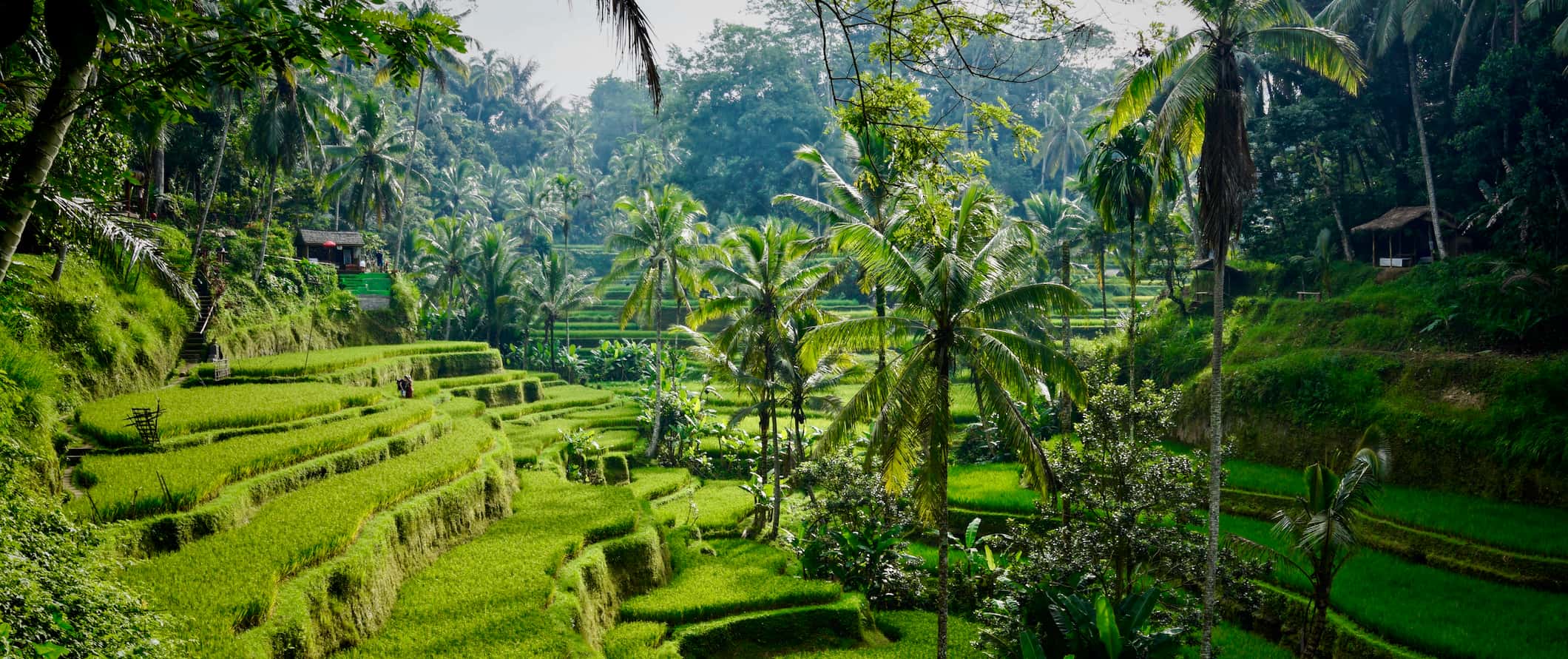
Accommodation
- Hostel dorms – 55,000-100,000 IDR per night
- Hostel private rooms – 175,000 IDR per night
- Budget hotels – 300,000-400,000 IDR per night
- Airbnb private rooms – 300,000 IDR per night
- Airbnb apartments – 400,000 IDR per night
- Street food – 10,000 IDR
- Sit-down restaurants – 25,000-125,000 IDR
- Western restaurants – 100,000 IDR
- Fast food (think McDonald’s) – 50,000 IDR
- Beer – 30,000 IDR
- Groceries for a week – 450,000-500,000 IDR
Indonesia Suggested Budgets
Backpacker – 425,000 idr per day.
On a backpacker budget, you can stay in a hostel dorm, eat some street food, cook some meals, rent a bicycle to get around, and do mostly free activities like hiking and enjoying the beach. If you plan on drinking, add another 30,000-60,000 IDR to your daily budget.
Midrange – 1,100,000 IDR Per Day
On a midrange budget, you can stay in a budget hotel or a private hostel room. You’ll be able to eat out at more restaurants, rent a scooter to get around, drink more, and do more paid activities like enjoying some massages and going diving/snorkeling.
Upscale – 2,350,000 IDR Per Day
On a “luxury” budget, you can stay at a nicer hotel or villa, take taxis or private minivans to get around, eat Western food, drink more, and do any adventure activities you want. This is just the ground floor for luxury, however.
Indonesia Travel Guide: Money-Saving Tips
While Indonesia is super affordable, it’s also easy to splash out here (especially in Bali). To help you save money, here are some specific ways you can keep your spending down while you’re here:
Bring a filtered water bottle – Indonesia has a ton of plastic waste. It has so much that a lot of it just gets burned. You’ll see — and smell — it during your visit. Bring a reusable water bottle with a filter to save both money and the environment. I personally like Lifestraw .
Eat on the street – You can pick up tasty local fare for under 10,000 IDR. Street-side snacks, soups, and noodles are super affordable and super tasty.
Bargain hard – Nothing is ever at face value in Indonesia. Bargain with sellers as most of the time the prices they quote aren’t the prices you end up paying if you bargain!
Drink cheap – Save money on alcohol by heading to the local happy hours (or just buying your drinks at a local store instead of the bar). This is the cheapest way to drink!
Book online in advance – If you’re planning on hitting up some of Indonesia’s most popular destinations, such as Bali, it’s actually cheaper to book your accommodations (and sometimes tours) online in advance rather than showing up and trying to strike a deal.
Pay bus attendants directly – When you’re taking an intercity bus, don’t purchase a ticket from a ticket window. It’s cheaper to pay directly on the bus.
Rent a bike – In many places, such as Bali and Gili, you can easily get around on two wheels. Rent a bike for as little as 40,000 IDR per day. It’s a great way to get around on the cheap.
Take taxis – Taxis are essential for getting around in some parts of Indonesia, and they can be cheap. Just make sure the driver puts the meter on before you depart (or agree on a price before you get in).
How to Get Around in Indonesia
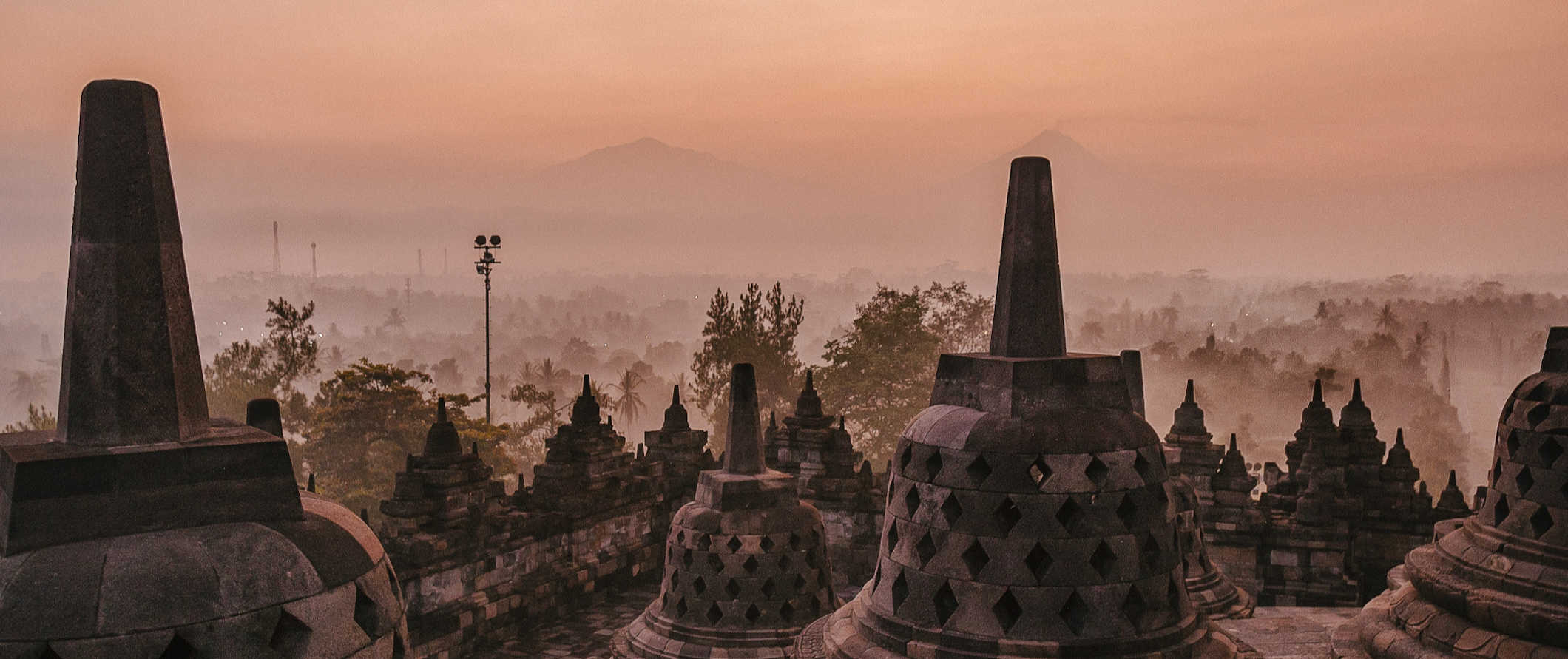
Public transportation – Public buses aren’t really used for city transport except on Java. There’s an extensive network in Jakarta, known as the Transjakarta Busway. Fares cost 3,500-9,000 IDR for any destination in the network. You have to pay with a card that costs 40,000 IDR (it comes with a 20,000 IDR credit) from station ticketing offices.
Otherwise, most people get around by becak , a three-wheeled pedal or motor-powered cart. You should negotiate your fare before you get in; ask your hotel/hostel staff for up-to-date price estimates.
Taxis are also affordable, and they’re metered in major cities. Bluebird Taxis is available in most places, and they’re the most dependable company for metered taxis and English-speaking drivers. There’s a smartphone app that makes it really easy to order taxis. The starting rate is around 7,500 IDR and then 5,300 IDR per kilometer.
Grab (an Uber offspring) is a household name in Southeast Asia. It is convenient but sometimes costs even more than a taxi. Gojek is a similar option. Be forewarned: if you order a Grab or Gojek, you might wind up on the back of a motorbike.
Ferry – For traveling between islands, ferries start around 15,000 IDR for a ticket from East Java to West Bali, and the rates go up from there for other routes. Bali to the Gili Islands is 175,000 IDR (one way) on a speedboat.
While it’s not necessary to book in advance it’s a good idea to do so during peak season or on more popular routes. You can buy tickets on the ferry company’s website or via a ticket agent like 12go.asia.
Bus – Buses are the main way for locals and tourists to get around Indonesia. It’s a good idea to book your long-distance tickets in advance, especially if you want an air-conditioned ride. You can buy a ticket from a travel agent, or visit the bus terminal. Your accommodation may also be able to arrange your transportation.
A 12-hour journey on a bus costs around 170,000 IDR. A short journey, like the one from Kuta Beach to Ubud, is less than 80,000 IDR and takes one hour.
If your ride is a shorter one, you might end up on a bemos (mini-bus). In this case, negotiate your fare beforehand.
Train – In Indonesia, the cities of Java are well linked by train, including Jakarta, Bandung, Surabaya, Probolinggo (for Mount Bromo), and Banyuwangi (the ferry terminal for Bali). Economy class from Jakarta to Surabaya takes 10.5 hours and costs about 190,000 IDR, while an 8-hour executive class trip can cost from 620,000 IDR. Surabaya to Probolinggo (for Mount Bromo) takes 2-3 hours and costs 27,000 IDR for economy or 240,000 IDR for executive class. Surabaya to Banyuwangi (for Bali) takes 6-7 hours and costs as little as 56,000 IDR for economy or 235,000 IDR for executive class. You can reserve your tickets at tiket.com.
Flying – Garuda Indonesia is the country’s main airline offering international service as well as domestic flights. Lion Air and AirAsia also offer plenty of domestic routes, although Lion Air’s safety record is spotty and I wouldn’t advise traveling with them.
Flights between Jakarta and Bali start around 900,000 IDR each way, while Jakarta to Lombok starts around 1,200,000 IDR. Lombok to Bali is around 1,100,000 IDR. However, this isn’t the cheapest way to travel and is only recommended if you have limited time.
Hitchhiking – Hitchhiking is possible here, though it’s not super common. English isn’t widely spoken so you’ll want to learn some phrases before you go. For more tips and information, check out Hitchwiki .
When to Go to Indonesia
Indonesia has just two seasons: the wet season and the dry season. Dry season lasts from May to September while the rainy season occurs from October to April. The average daily temperature year-round is 28°C (80°F).
Overall, the best time of year to visit is between May and September when it’s dry and sunny. It’s still pleasant to visit during the rainy season, however, as rainfall usually comes as fast and intense downpours that only last a few hours.
The Nusa Tenggara region is more affected by the wet season which may sometimes result in flooding. The wet season may also be a problem if you’re looking to get off the beaten track in Indonesia, as muddy roads can sometimes keep you from getting around.
In Bali and Kalimantan, the extremes between seasons aren’t drastic. The dry season is the best time to climb the volcanoes, and the best time to dive is from April to September. (If you are expecting to do some climbing, remember to pack some warm layers. It gets cold at the top!)
Indonesia Travel Guide: The Best Booking Resources
These are my favorite companies to use when I travel. They consistently have the best deals, offer world-class customer service and great value, and overall, are better than their competitors. They are the companies I use the most and are always the starting point in my search for travel deals.
- Skyscanner – Skyscanner is my favorite flight search engine. They search small websites and budget airlines that larger search sites tend to miss. They are hands down the number one place to start.
- Hostelworld – This is the best hostel accommodation site out there with the largest inventory, best search interface, and widest availability.
- Agoda – Other than Hostelworld, Agoda is the best hotel accommodation site for Asia.
- Booking.com – The best all around booking site that constantly provides the cheapest and lowest rates. They have the widest selection of budget accommodation. In all my tests, they’ve always had the cheapest rates out of all the booking websites.
- Get Your Guide – Get Your Guide is a huge online marketplace for tours and excursions. They have tons of tour options available in cities all around the world, including everything from cooking classes, walking tours, street art lessons, and more!
- SafetyWing – Safety Wing offers convenient and affordable plans tailored to digital nomads and long-term travelers. They have cheap monthly plans, great customer service, and an easy-to-use claims process that makes it perfect for those on the road.
- LifeStraw – My go-to company for reusable water bottles with built-in filters so you can ensure your drinking water is always clean and safe.
- Unbound Merino – They make lightweight, durable, easy-to-clean travel clothing.
Indonesia Travel Guide: Related Articles
Want more tips for your trip? Check out all the articles I’ve written on Indonesia travel and continue planning your trip:

How to Visit Borobudur in Indonesia
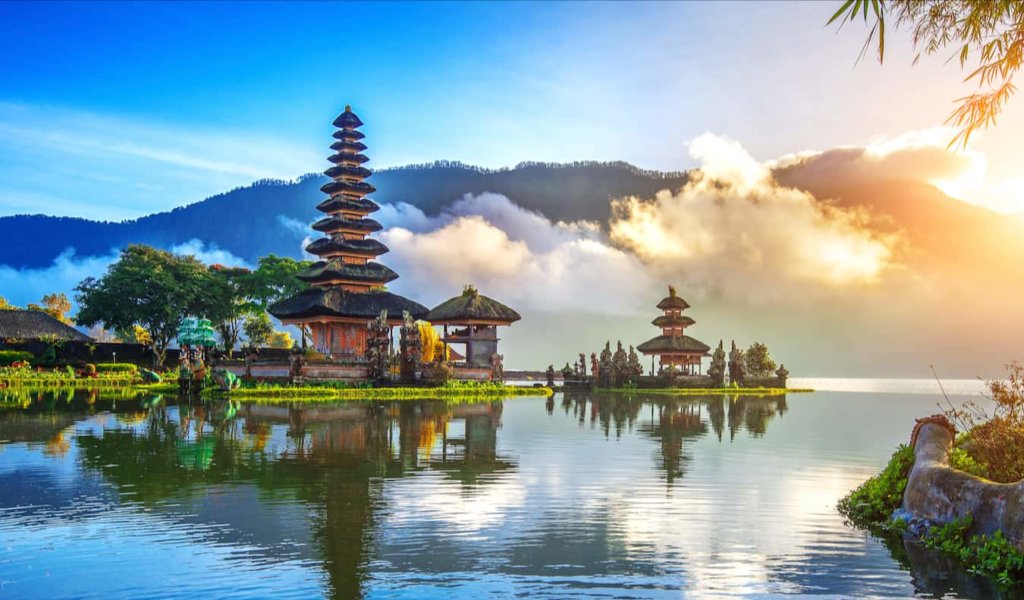
The 6 Best Hostels in Bali
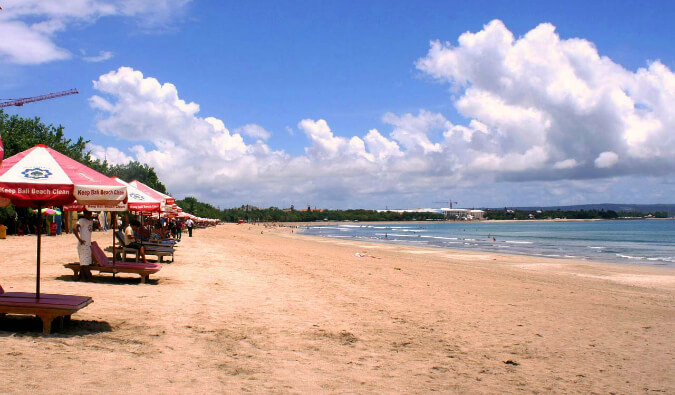
Kuta Beach: The Worst Place in Bali
Get your free travel starter kit.
Enter your email and get planning cheatsheets including a step by step checklist, packing list, tips cheat sheet, and more so you can plan like a pro!

- Where To Stay
- Transportation
- Booking Resources
- Related Blogs
- Search Please fill out this field.
- Newsletters
Is It Safe in Bali?
:max_bytes(150000):strip_icc():format(webp)/mike_borobudur-5b6d3ea446e0fb0025fcb683.jpg)
Bali—the Southeast Asian yoga oasis of "Eat, Pray, Love" fame—attracts more than 6 million international visitors per year. It's a haven for young, solo travelers on gap years and life-affirming sabbaticals, which proves how generally safe the Indonesian island is. That isn't to say, however, that Bali is entirely incident-free. Like any tourist-centric destination, it's also a magnet for pickpocketing and thievery. What's more, Balinese roads are notoriously dangerous in that they're chaotic and often times not well maintained. Being located in the Ring of Fire (an earthquake-prone fault line in the basin of the Pacific Ocean), the island is especially vulnerable to tsunamis as well.
Travel Advisories
The U.S. Department of State has issued travel warnings for Indonesia due to terrorism and natural disasters . "Terrorists may attack with little or no warning, targeting police stations, places of worship, hotels, bars, nightclubs, markets/shopping malls, and restaurants," the warning states. "Natural disasters such as earthquakes, tsunamis or volcano eruptions may result in disruptions to transportation, infrastructure, sanitation, and the availability of health services."
Is Bali Dangerous?
Although Bali is safe enough to visit for a short trip, earthquakes and tsunamis are a major concern. In 2018, Indonesia as a whole suffered from 2,000 natural disasters, claiming nearly 4,000 lives, displacing 3 million people, and leaving much of the country in a state of devastation. Because tourism accounts for more than a quarter of Bali's gross domestic product, your vacation may help boost the economy, but be aware of the risk of natural disasters and the damage they've already caused.
Additional risks to travelers include targeted crime like robberies and pickpocketing. Terrorism is a problem throughout the country, but the U.S. Department of State does not cite Bali as an epicenter of it. The roads are notably dangerous in that a quarter of Bali's reported crashes prove deadly, and to make matters worse, renting scooters has become a popular tourist activity with not much training or precaution involved. Foreigners are injured in traffic accidents in Bali (whether as pedestrians, passengers, or drivers themselves) all the time.
Is Bali Safe for Solo Travelers?
Bali is not only safe for solo travelers, it's somewhat of a mecca for lone vagabonds. With so many young backpackers holidaying on the island, there's a sort of safety in numbers. Whereas some other Southeast Asian countries—notably Thailand and Vietnam—have earned unfavorable reputations for their rambunctious backpacker party cultures, Bali (being a Hindu island) revolves less around drugs and alcohol, which helps keep the crime at bay. Remember to keep your possessions close to your person when you're out and lock up your belongings at the hotel or hostel to avoid theft, which can just as easily be perpetrated by fellow travelers.
Is Bali Safe for Female Travelers?
The "Eat, Pray, Love" narrative has boosted female travel (female solo travel, in particular) immensely, making Bali one of the top destinations for itinerant women. In general, Balinese people are perfectly friendly, hospitable, and apt to look after visitors, but sexual harassment is also prevalent. One group of men, dubbed the "Kuta cowboys" after Kuta Beach, is notorious for preying on women. They often hold tourist-facing beach jobs, but what they're actually attempting to sell is sex.
Safety Tips for LGBTQ+ Travelers
A high-profile UK rape case involving Indonesian exchange student Reynhard Sinaga, who was convicted in 2020 of drugging and raping more than 100 men in Manchester, sparked a series of LGBTQ+ raids throughout the country . The incident provoked homophobic attacks against the LGBTQ+ community, but it was particularly centered in Sinaga's home city of Jambi. Bali remains a major destination for LGBTQ+ travelers , thanks to its love-touting Hindu heritage and its diverse demographic, both different from the rest of the country. If you're worried about your safety as a queer traveler or couple, stick to the tourist-friendly areas of Bali where it's more widely accepted. Bali's gay organization, promoting sexual health in the LGBTQ+ community, is Gaya Dewata .
Safety Tips for BIPOC Travelers
Indonesia is not immune to racism, but it's mostly directed at Papuans, who have had a tense relationship with Indonesians since the takeover of West Papua in the 1960s. Otherwise, people of color are generally safe in the country, especially in the cultural melting pot that is Bali. If you fall victim to an act of discrimination during your visit, you should report it to the tourist police, who are stationed at Jl. Kartika Plaza No.170 in Kuta.
Safety Tips for Travelers
Bali is a safe place to visit, but be sure not to abandon your common sense. Travel in groups and take the necessary precautions to avoid danger.
- Macaque monkeys are commonplace around Bali, but don't be fooled by their cute appearance as they will not scruple from stealing shiny objects and food from unsuspecting tourists. Many a tourist have lost glasses, jewelry, and other belongings to these shifty beasts. Most close encounters with macaques happen around Pura Luhur Uluwatu and the Ubud Monkey Forest in Central Bali. You would also be wise not to smile at them as they interpret bared teeth as a sign of aggression.
- The beaches on the southwest part of Bali are known to have dangerous rip tides and undertows. Dangerous beaches are marked by red flags. Do not attempt to swim at red-flagged beaches.
- Ask your hotel about tsunami evacuation procedures; otherwise, find accommodations at least 150 feet above sea level and two miles inland.
- Despite the draconian anti-drug laws, tourists often get stealthy drug offers while walking on the streets, with disguised drug dealers slyly whispering offers of cheap marijuana or mushrooms to likely-looking travelers. If this happens to you, walk away. You're likely to find yourself entrapped in a drug sting.
- Apply high-SPF sunscreen to forestall the agony of UV-burned skin; SPF (sun protection factor) of no lower than 40 ought to be adequate for a Bali vacation.
- There are no traffic rules in Bali, only suggestions. Thus, crosswalks (when you can find them) don't get much respect, nor do the pedestrians treading on them.
U.S. Department of State . "Indonesia Travel Advisory."
Reuters . "Indonesia rights body condemns LGBT raids ordered by mayor after UK rape case." January 14, 2020.
Related Articles
More related articles.
10 Safest Cities in Indonesia
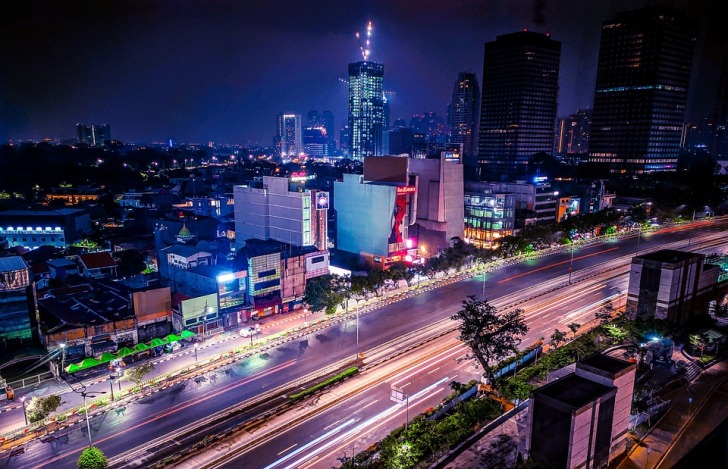
Fun fact: Did you know that Indonesia is the largest country in Southeast Asia and the largest archipelago in the world?
Indonesia is also home to approximately 240 million people.
Resting between the Indian and Pacific oceans, Indonesia shares land borders with East Timor, Malaysia , and Papua New Guinea .
There is also an extensive maritime border shared with India , Australia , Singapore , Thailand , Vietnam , Palau , and the Philippines .
A transcontinental country primarily located in Southeast Asia, it has some territories in Oceania.
Plus, 18,110 islands, 6,000 of them inhabited.
For the most part, Indonesia is considered safe, and many experiences and sights await your visit, though you should know that it is not without its dangers.
The good news is that Indonesia is ranked the 76th safest country in the world.
Yet, as anywhere, many hazards potentially lie in Indonesia, from natural disasters such as earthquakes, tsunamis, and volcanoes, to social disruptions that can include corruption, terrorism, street attacks, and crime.
It is believed to be a reasonably secure destination for travelers, especially those who are respectful, cautious, sober, polite, and aware of their surroundings.
Just like home!
In addition, locals in Indonesia are typically incredibly gracious and quite welcoming to tourists, and tourism is becoming an increasingly strong component in building a burgeoning engine of prosperity.
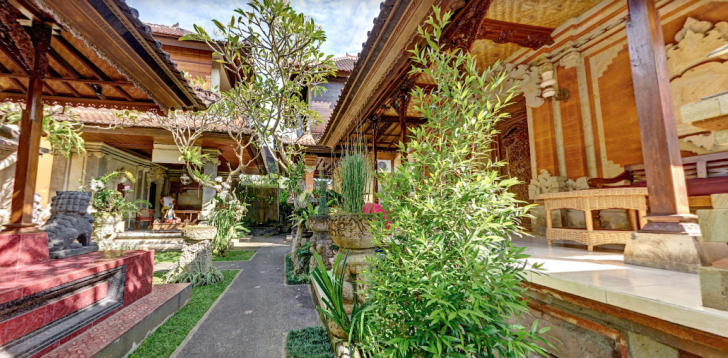
Bangka-Belitung Islands
- 5 Safety Tips for Traveling to Indonesia
Indonesia Safety Overview
Is it safe to travel to indonesia, does indonesia have many natural dangers, what is an easy thing i can do to stay safe, are pickpockets and purse snatching a problem in the region.
What some have called “The Island of the Gods,” Bali attracts travelers to the area for its gorgeous natural scenery and legendary nightlife.
This makes for an exciting mix of surfers, students, honeymooners, digital nomads, retirees, and everyone else.
In addition, some consider it among the safest places in Indonesia, thanks to amiable locals and a relaxed pace of life.
An island extensive in size, with a wide range of areas to discover, Bali has beaches, lakes, terraced rice fields, and a couple of active volcanoes thrown in for good measure.
A spectacular travel destination, Bali has it all, from breathtaking nature to nightlife, cool cafes to beautiful beaches.
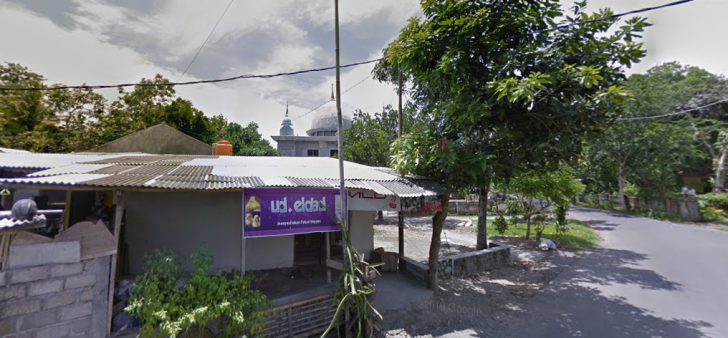
Lombok offers beautiful beaches, a laid-back lifestyle, and fantastic nature experiences.
Enjoy adventures such as climbing the active volcano Rinjani or relaxing on the white sand beaches.
The prominent tourist spot is Kuta, in the south part of the island, and there are unique places all over Lombok.
Apart from the natural hazards like earthquakes, Lombok is safe, calm, and peaceful.
It’s an excellent location to experience the authentic lifestyle of the locals, who are mainly farmers.
They are less tourism-dependent.
And less hunger and poverty translate into greater safety.
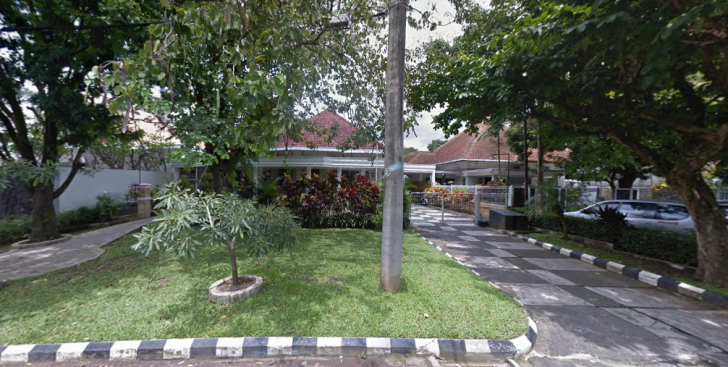
A dynamic economic region, Malang is filled with people conducting business and commuting to their workplace on a weekday.
And as in any area taking mass transit, be aware of your environment and attempts at pickpocketing.
Many people enjoy visiting Malang because of its pleasant and temperate climate.
Others want to explore this center for business and the economy.
In contrast, others enjoy the opportunity to explore a more urban area that possesses the enticements and the pleasures of any fascinating city.
And just like visiting any city, use caution when going out at night.
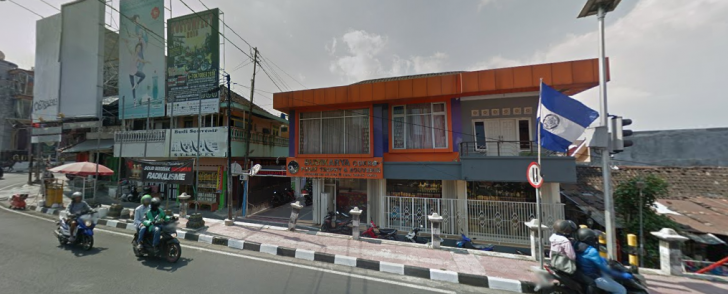
Filled with artsy communities and interesting tourist landmarks, Yogyakarta is a serene area that welcomes visitors.
Added inducements to visit include being relatively affordable, with fun eating options from inexpensive cafes to fine dining options.
Be open to adventure and polite, and you should have an excellent travel experience in this town popular with locals and tourists.
Many tourists visit this local area because it merges two wonderful traits that draw travelers: it is reasonably affordable, and there are some excellent and well-known attractions and travel bargains.
So come and explore one of the safest places to travel in Indonesia.
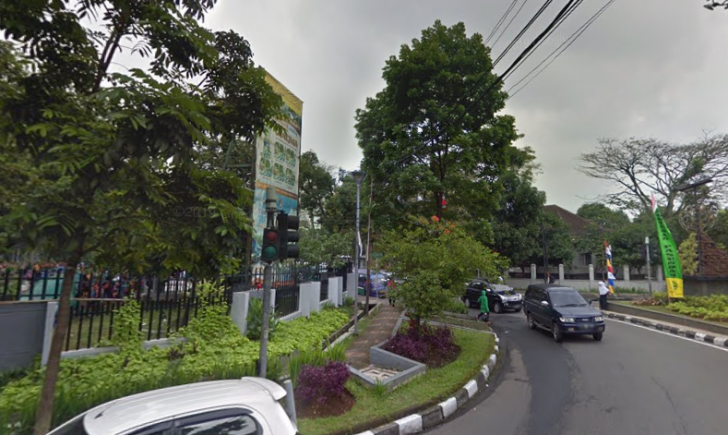
Bandung has earned the honor of being named A Creative City by UNESCO because of its unique and exciting designs, which is only one of the reasons why Bandung is a favorite among tourists.
In addition, it is getting a reputation as an epicurean city, famous for its cuisine.
Bandung is a popular city to explore with its calm and fresh weather.
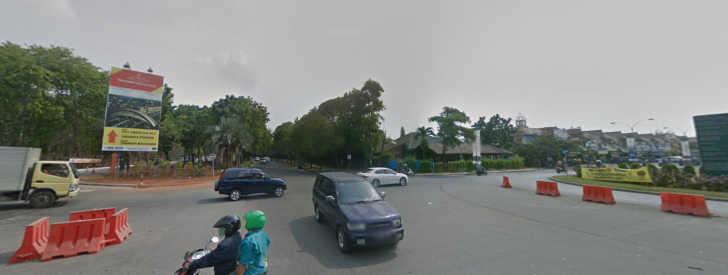
One of the exciting things about Cikarang is its initiative to turn its central business district into a smart, green city with world-class amenities and architecture to cater to the growing expatriate community.
The town is a home base for over 2,500 multinational companies.
Because of this, it has attracted an increasing number of ex-pats and tourists and a bustling feel and energy.
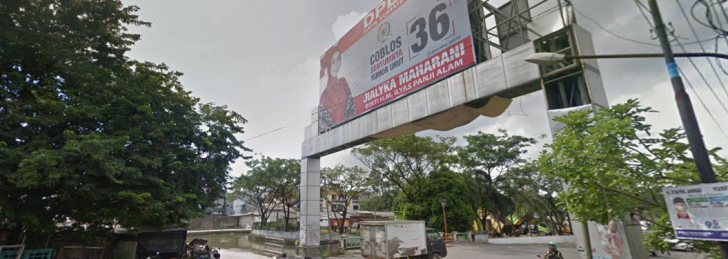
If on Sumatra Island, snack connoisseurs should consider paying homage to Palembang.
Palembang is primarily famous, and justifiably so, for its renowned snack, Pempek Palembang.
While there, stroll over to the town’s icon, Ampera Bridge, which is beautiful and has a considerable array of dining options from independent and proud food vendors.
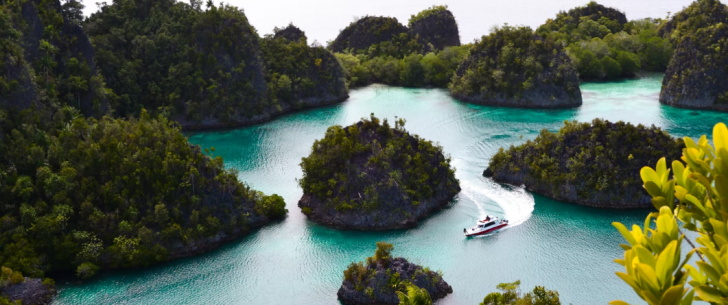
Raja Ampat is on its way to becoming one of the safest spots for solo travel in Indonesia.
Explore boat transit and tours, and for those who love combining nature and aquatic life, there are many types and levels of water recreation.
Enjoy snorkeling, swimming, or diving.
Regarding accommodation, there is a diverse range of lodging for every taste and budget.
And, as always, you are safest staying in an area that caters to travelers.
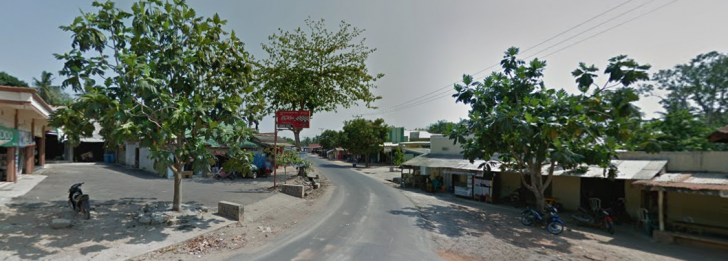
The Bangka Belitung islands consist of two islands, Bangka and Belitung, situated right off the southeast coast of Sumatra.
Belitung is a smaller island, surrounded by many tiny islands and granite rock formations, so it is excellent for enjoying island hopping boat tours!
However, one possible hazard to consider is that during the rainy season, October to February, weather conditions can be challenging and perhaps even risky for non-swimmers exploring this island.
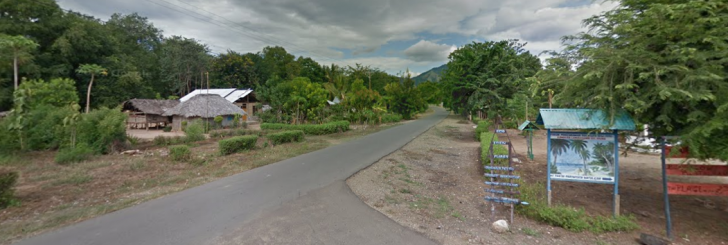
Yes, the island of Flores possesses volcanic mountains surrounded by terraced rice paddies and gorgeous beaches looking over the deep turquoise sea, making it a favorite place for visitors to explore.
Flores is the perfect getaway spot to relax for a few days.
However, for many visitors worldwide, the primary appeal can be summed up in two words: Komodo Dragons!
Labuanbajo, a port town, is the main tourist center and the transit hub to get to Komodo National Park and the nearby offshore diving sites.
There are many boat tours, or you could go snorkeling with the Manta Rays or take a stroll in the Komodo Dragon National Park and trek on some of the most beautiful beaches in Indonesia.
5 Safety Tips for Traveling to Indonesia
- Do not get lured away by an unregistered guide . You do not follow strangers into dark streets at home. Please don’t do it on vacation! Only use the services of a guide working with a reputable tour agency.
- Try to avoid accepting candy from strangers. But, again, this translates to understanding what you’re getting into. The best thing to do, eye-roll, is not to take strangers’ drinks, drugs, candy, or other items, which is generally an intelligent policy, wherever you go.
- Indonesia is a conservative and primarily Muslim country . Therefore, it is wise to dress appropriately to avoid problems and misunderstandings and show cultural respect.
- Do not leave your personal belongings unattended in a public space . Theives are everywhere in the world, including Indonesia; why tempt them?
- When working towards keeping safe, keep in the know . Stay informed by monitoring the local news for events of interest, from climate occurrences to political unrest, before and during your trip.
READ THE FULL REPORT: Indonesia Safety Review

- OVERALL RISK: MEDIUM
- TRANSPORT & TAXIS RISK: MEDIUM
- PICKPOCKETS RISK: HIGH
- NATURAL DISASTERS RISK: MEDIUM
- MUGGING RISK: MEDIUM
- TERRORISM RISK: HIGH
- SCAMS RISK: MEDIUM
- WOMEN TRAVELERS RISK: MEDIUM
Frequently Asked Questions
Indonesia is thought by most to be a safe country to travel in, yet, like any place, it still has its dangers, which can range from natural disasters to terrorism to drink spiking to petty theft.
With that said, plan your trip with care, express a bit of caution, a lot of common courtesy and consideration, keep your wits about you and your cell phone and bag close on the streets of Indonesia, and you should be fine.
Situated on the poetically and aptly named Pacific Ring of Fire, a region known to experience a high degree of tectonic activity, the area is susceptible to volcanic eruptions, earthquakes, tsunamis, and flood risks.
One easy way to stay safe is to stay connected with friends, fans, and family during your trip.
Keep your people updated about where you’re staying and any day trips.
That way, you can be quickly found in an emergency.
Pickpocketing and purse snatching are widespread problems.
So it is best to display caution, especially in public and crowded places like airports and bus and train stations.
Therefore, keep your belongings close by, or leave valuables in a security deposit box at your hotel.
Better yet, unless you need your goodies while traveling, leave them at home.
Additional Resources

4 Comments on 10 Safest Cities in Indonesia
It’s reassuring to see cities in Indonesia making significant strides in safety measures, creating a more secure environment for residents and visitors.
Living in one of the safest cities there has been a blessing, but it’s hard to maintain these standards and continuously improve safety protocols.
Safety is a top priority for many when choosing a place to live. These cities in Indonesia offer a great balance between safety and quality of life.
While safety is a key aspect, it’s equally important to address social issues to ensure a holistic sense of security in these Indonisian cities.
Leave a Comment Cancel reply
Popular destinations.

Safety Index
Recent reviews & comments.
- Nate Higgers on Liberia
- Rodrigo on Zihuatanejo
- Mike on Nevada
- Anonymous on 17 Pros and Cons of Living in the UK
- Christian Lowe on Grand Junction
Popular US States
- Pennsylvania
- Travel Guides
Is Bali Safe?
Compared to many places in the world, Bali is fairly safe. However, the things that require your attention to ensure daily safety are different than what you would need to worry about at home. Pay attention, and exercise common sense and caution to easily have a safe and enjoyable time in Bali.

There is crime in Bali, but most of the crime is non-violent and tends to be theft of belongings or scams (such as ATM skimming). While there are occasional violent crimes, often these are sensationalized by the media.
Take care of your belongings, lock up valuables, and maintain a low profile as a tourist. Be aware of possible pickpocketing, and use ATMs at a bank with security. The Kuta and Legian areas have the highest crime rates, while Ubud is one of the safest locations.
Roadway safety is a big issue. Be very careful driving or even crossing the street. Use local taxis wherever possible. And of course, don’t drink and drive.
Bali also has a small but mentionable risk of natural disasters from volcanoes and earthquakes. We recommend you sign up for travel advisories from your country of origin before departing for Bali.
Culinary & Cultural Encounters
Adventure sports, hidden local gems, photo opportunities, mind & body rejuvenation, easy sightseeing, city-life energy, rugged exploration, rest & relaxation, romantic moments, mind-blowing vistas, off-the-beaten-path exploration.
Sign up to receive the latest news and offers from Anywhere
Is Indonesia Safe To Visit?
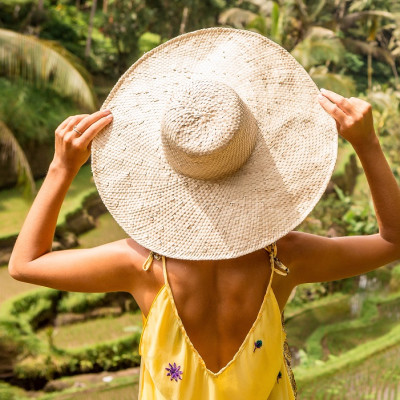
Expert tips on safety in Indonesia
Is Indonesia safe? Rest assured. Indonesia is one of the most popular travel destinations in Asia. Like most other Southeast Asian countries, Indonesia, and especially Bali, is a very safe destination. Relying on your common sense and following a few safety rules will go a long way in ensuring that your vacation is stress-free.

Take care of your valuables
As in all other destinations, it is best leave your valuables in the safe of your hotel. If you are carrying expensive items, take care not to display them in public.
Stay away from Animals
Beware of stray dogs in Indonesia as many of these have rabies. The same applies to monkeys as well. In general, it is a good idea to keep away from all animals in Indonesia.
While climbing volcanoes is possible, make sure to check if these are currently active or dormant. On your private Indonesia tour, your local guide and Trip Coordinator will be able to advise you accurately about volcanoes. We will customize your itinerary whenever necessary.
Women travelers
Indonesia is a very safe destination for female travelers however, traveling alone at night is not recommended. Avoid motorcycle taxis after dark. Do keep in mind that Indonesia is a Muslim country and dress conservatively when you are not at the beach.
Be extra careful while navigating traffic in Indonesia – the conditions can be quite chaotic compared to Western countries. Tourists should avoid riding in motorcycles even if you find locals using this mode of transport – these are known to cause accidents.
Please note: Despite careful research, we cannot assume complete liability for the information provided here. Further updated information is available at your local Foreign Office .

Is Indonesia Safe? Our Tips for Your Trip
Keeping you safe is our top priority. Our travel consultants are happy to advise on your security and safety in Indonesia. For all domestic flights, we only use airlines that meet our standards of safety. During your trip, your local guide is happy to help you with anything you need. Your Trip Coordinator is also available around the clock while you travel.
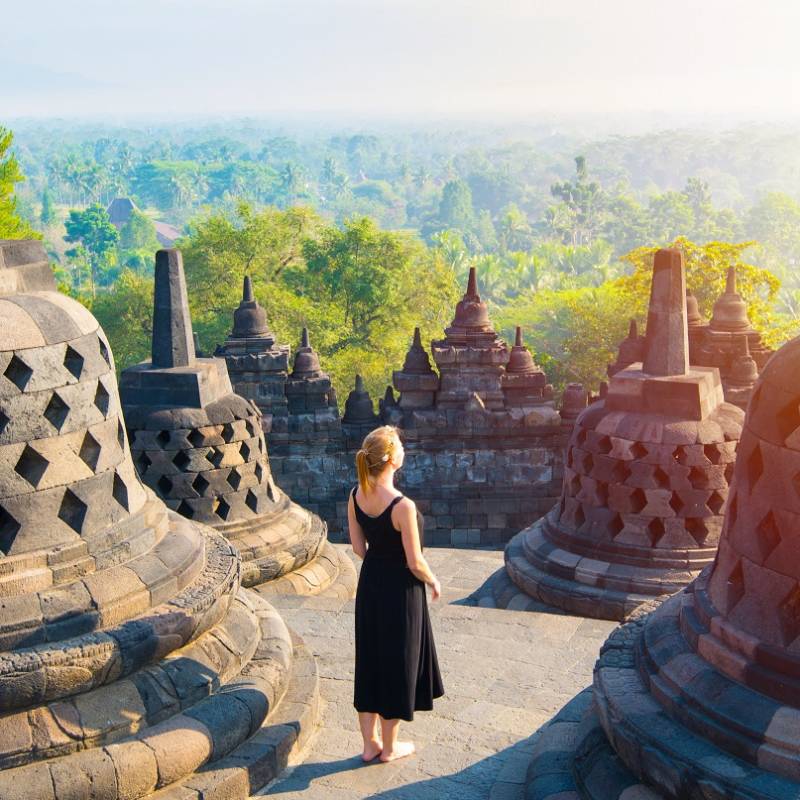
Popular Trips to Indonesia

Indonesia: Classic Sumatra
Discover the essence of Sumatra as you explore its history, culture and food. Marvel at landmarks such as the Tjong A Fie Mansion, Maimoon Palace and the Grand Mosque at Medan before heading into the Bukit Lawang region. Savor the local cuisine on a guided tour and keep an eye out for wild orangutans in…

Java, Indonesian Borneo & Bali Islands: Culture, Wildlife & Nature
Embark on an enthralling journey through Java, Indonesian Borneo, and Bali, where culture, wildlife, and nature unite harmoniously. Discover Yogyakarta’s historic temples, Borobudur and Prambanan, and experience the vibrant nightlife with a personalized tour. Venture to Tanjung Puting National Park to spot wild orangutans on a traditional riverboat. Witness the dramatic landscapes of Mount Bromo,…

Indonesia: Highlights of Bali & Flores
Unwind and relax at some of the most stunning beaches at Bali and Flores in Indonesia on this 13-day tour. Ubud, the cultural heart of Bali, beckons with its temples and museums. At the charming mountain settlement of Munduk, discover cascading waterfalls, lush forests and verdant paddy fields. Experience the thrill of spotting a komodo…
Best Places To Visit
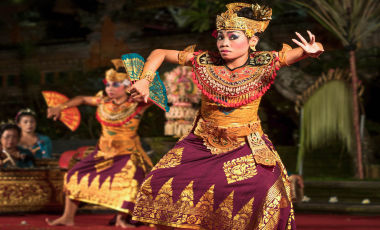
Ubud is the cultural heart of Bali. Home to the country’s royal family, the town is rich in art and at the center of Balinese craft and traditional dance.
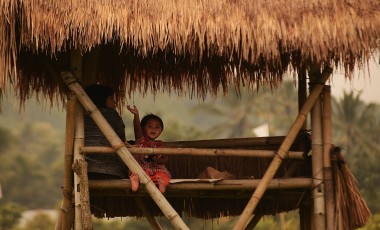
Munduk in Bali is undoubtedly one of the most charming mountain villages of Indonesia. With its lush hills that are dotted with jungles, paddy fields, fruit trees and other island plants, it is the ideal location to unwind within the harmony of nature.
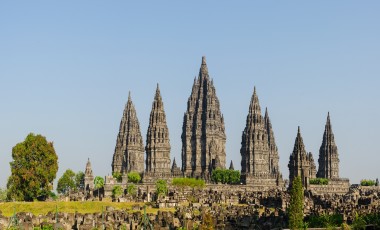
Yogyakarta in Java is a unique place for the appreciation of contrasts. Yogyakarta is best known for its two historic temples: Borobudur Temple, a 9th century Buddhist monument and UNESCO World Heritage site, and Prambanan Temple, dedicated to the divine Hindu Trimurti (trinity).
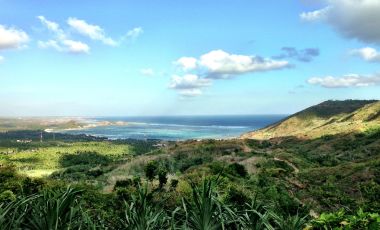
Despite being the same size as Bali, Lombok has managed to retain its privacy. If you seek authenticity, then venture to its black and white sandy beaches, lush forests, and fascinating trails through tobacco and paddy fields.
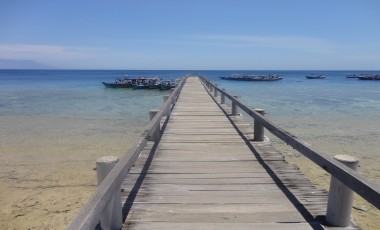
Pemuteran in Bali is the ultimate beach oasis! This hidden jewel is located on the northwestern tip of Bali and is only known to visitors who have been vacationing in Indonesia for years and prefer a quieter beach.
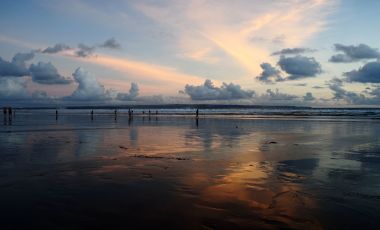
Seminyak is the hedonist hotspot of Bali! Located north of the airport, Seminyak boasts a marvellous beach along a stretch of coastline that has made Bali world-famous.
Best Time To Visit
The climate of Indonesia is unlike other Asian countries. Here is an overview from our destination experts about when to go to this country of 1000 islands.
Things To Do
Fiery volcanoes, magnificent temples and beautiful beaches – Indonesia is full of treasures. Follow this link to discover the top highlights, activities and attractions.
Travel Guide
In a country as diverse as Indonesia, it is important to learn some details before you visit. From language to currency, visa and health information, here are our top travel tips.
From the Blog

Top Indonesia Travel Tips from Enchanting Travels
Discover more about Indonesia from our Travel Consultant, Kathrin Mayr, who shares her top Indonesia travel tips after experiencing the nooks and crannies of the wonderful island nation! Indonesia – the name alone conjures up images of an exotic paradise with powdery white beaches, smoldering volcanoes, mystical cultures and above all, adventure!

Top 10 Best Ever Luxury Pools on Your Bali Holidays
We’ve made a list of our top 10 luxury swimming pools that’ll bring your dream Bali holidays to life. Come on over, and plunge right in!
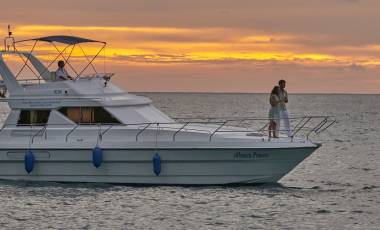
Top 10 Cruises in Asia that will make Your Vacation one to Remember
There is something truly unique about a luxury cruise down Asia’s magnificent and iconic rivers. Discover our top 10 favorites for your cruise of a lifetime!
What Our Guests Say

The Enchanting Difference
Authentic & unique.
Our award-winning, licensed local guides provide incredible insights and exclusive experiences for you.
Personalized & Private
Our experts completely customize your private tour to match your interests and preferences.
High-Quality Experiences
All our accommodations and services are personally tested by our team.
Fully Supported Travel
You’ll have a personal and dedicated trip coordinator, backed by 24/7 support in case of emergencies while you’re traveling.
Financial Protection & Flexibility
Your booking is flexible and completely secure with us.
Safe & Secure
Your safety and well-being are our top priorities.
Do you have a vacation in mind? Personalize your itinerary with our Trip Builder.
Indonesia, Philippines recognized as top 2024 travel destinations

- “Must-visit” Philippines : The 2024 WTA saw the Philippines bagging eight major awards , including Asia’s leading dive destination, Asia’s leading beach destination, Asia’s leading island destination and Asia’s leading tourist attraction 2024 for the historic walled city of Intramuros. WTA founder Graham Cooke lauded the country for successfully hosting the event, proclaiming it a “must-visit” destination for meetings, incentives, conferences and exhibitions.
- Other major awards : Indonesia secured the title of Asia’s Leading Adventure Tourism Destination, highlighting the country’s growing reputation as a premier destination for adventure seekers, surpassing previous winners Japan, Thailand and Sri Lanka. Hong Kong International Airport was crowned Asia’s Leading Airport for the second year in a row, while Singapore Airlines continued its reign as Asia’s Leading Airline for the sixth consecutive year. The airline also secured accolades as Asia’s leading airline – first class and Asia’s leading airline to the Indian Ocean.

‘World’s best airline’ to pay employees bonus of 8 months’ salary

Manila crowned world’s top city destination for 2023

Asian airline carriers dominate list of best global airlines as rated by passengers
- About NextShark
- Privacy Policy
- Terms & Conditions
Don’t miss out on the latest news by signing up for Sharkbites.
- Travel Advisories |
- Contact Us |
- MyTravelGov |
Find U.S. Embassies & Consulates
Travel.state.gov, congressional liaison, special issuance agency, u.s. passports, international travel, intercountry adoption, international parental child abduction, records and authentications, popular links, travel advisories, mytravelgov, stay connected, legal resources, legal information, info for u.s. law enforcement, replace or certify documents.
Share this page:
Cote d'Ivoire Travel Advisory
Travel advisory april 8, 2024, cote d ivoire - level 2: exercise increased caution.
Updated to reflect safety and security information on the Northern Border Region, and additional points for mariners who decide to travel to Côte d’Ivoire.
Exercise increased caution due to crime, terrorism , civil unrest , health , and piracy. Some areas have increased risk. Read the entire Travel Advisory.
Do Not Travel To:
- Northern border region due to terrorism .
Country Summary: Crime continues to be a major public security concern in Côte d’Ivoire. Violent crime, such as carjacking, robbery, and home invasion, is common in some areas. Local police often lack resources to respond to serious crimes.
Violent extremist activity occurs in Burkina Faso and Mali near the border with Côte d’Ivoire. Terrorism concerns in the northern region remain due to its proximity to these countries.
Travelers should avoid demonstrations, protests, political rallies, and large crowds. These events can become violent. Demonstrators and security forces may clash suddenly. Police may use tear gas or other force to break up crowds.
Piracy with armed robbery and kidnapping for ransom are significant threats to ships operating near Côte d’Ivoire. U.S. citizens on ships in the Gulf of Guinea off the coast of West Africa should be cautious.
Health care in rural areas is below U.S. standards. There are often shortages of medicine and medical supplies in public and private health facilities.
The U.S. government is limited in its ability to provide emergency assistance to U.S. citizens outside Abidjan. U.S. Embassy staff are not permitted to drive outside major cities at night. Read the country information page for more information on travel to Côte d’Ivoire.
If you decide to travel to Côte d’Ivoire:
- Check local media for breaking events and adjust your plans.
- Do not physically resist any robbery attempt.
- Use caution when walking or driving at night.
- Keep a low profile.
- Be aware of your surroundings.
- Do not display signs of wealth, such as expensive watches or jewelry.
- Stay alert in locations frequented by foreign travelers and foreign residents.
- Be extra vigilant when visiting banks or ATMs.
- Carry a copy of your passport and visa (if applicable). Leave originals in your hotel safe.
- Have evacuation plans that do not rely on U.S. government help.
- Avoid demonstrations and crowds.
- Get full medical insurance. It should include medical evacuation.
- Mariners should check for U.S. maritime advisories and alerts, U.S. Coast Guard homeport website, and NGA broadcast warnings.
- Enroll in the Smart Traveler Enrollment Program (STEP). You will get safety alerts by email/text and it will help us find you in an emergency.
- Follow the Department of State on Facebook and Twitter .
- Review the Country Security Report for Côte d’Ivoire.
- Prepare a contingency plan for emergency situations. Review the Traveler’s Checklist .
- Visit the CDC page for the latest Travel Health Information related to your travel.
Northern Border Region – Level 4: Do Not Travel
The main terrorist threat to Côte d’Ivoire is from a group called Jama’at Nusrat al-Islam wal-Muslimin (JNIM). JNIM is linked to al-Qa’ida. JNIM mostly operates in the Sahel region, including Burkina Faso and Mali. The threat from JNIM has in the past reached northern Côte d’Ivoire, near the border with Burkina Faso. Attacks have happened in the Savanes and Zanzan Districts, including Comoé National Park. These attacks have mainly targeted Ivoirian security forces, but civilians have also been targeted. In 2021, Al-Qa’ida in the Lands of the Islamic Maghreb (AQIM) carried out 17 small-scale attacks that killed approximately 20 people. After these attacks, the Côte d’Ivoire government increased security in northern Côte d’Ivoire. Since 2021, there have been no attacks.
Travel Advisory Levels
Assistance for u.s. citizens, côte d'ivoire map, search for travel advisories, external link.
You are about to leave travel.state.gov for an external website that is not maintained by the U.S. Department of State.
Links to external websites are provided as a convenience and should not be construed as an endorsement by the U.S. Department of State of the views or products contained therein. If you wish to remain on travel.state.gov, click the "cancel" message.
You are about to visit:

IMAGES
VIDEO
COMMENTS
Indonesia's revised criminal code, which takes effect January 2026, includes penalties for defamation, blasphemy, cohabitation, and sex outside of marriage. It is unclear how Indonesian authorities will implement the revised criminal code. Read the country information page for additional information on travel to Indonesia.
WOMEN TRAVELERS RISK: MEDIUM. Indonesia is not the safest for solo female travelers. There is the risk of getting unwanted attention or even the risk of sexual assaults toward women. Avoid parts of cities that are filled with bars and clubs, and visiting them alone, since there is a higher chance of running into intoxicated people.
Much of Indonesia is safe to travel. Around 5,889,031 tourists arrived in the country by 2022 as stated in Indonesia's statistical report, and travellers mostly had a positive experience.. Visiting Indonesia is fantastic - it's an amazing place.. Made up of an awesome 17,508 islands, the archipelago that makes up Indonesia would take any traveller an age to explore.
10. Staying safe in Indonesia: there's a small risk of pickpocketing. In general, you are more at risk of crime in a European or American city than in Indonesia, and most trips are hassle-free. However, it's worth staying alert in crowded bars and marketplaces as there's a small risk of pickpocketing or being approached by scam artists here.
Indonesia has 129 active volcanoes and periodically experiences major volcanic events that can be dangerous, even life-threatening. Ash clouds can disrupt air travel, including on the island of Bali, and cause or worsen respiratory problems. Active volcanoes are monitored to provide residents with an early warning should unusual activity occur.
Safety. There's an ongoing risk of terrorist attack in Indonesia. Be alert to possible threats. Take official warnings seriously and follow the advice of local authorities. Popular tourist areas may be the target of terrorist attacks. Public protests and events that draw large groups of people occur regularly and can turn violent with little ...
FCDO advises against all travel to: within 5 km of the crater of Mount Semeru in Lumajang Regency, East Java. the south-east area of Mount Semeru along the Besuk Kobokan river, approximately 13km ...
Go through the immigration process. Collect baggage (s) at the baggage claim area. Go through the customs process. Register at the Help Desk Hotel. Passenger's identity information and quarantine location are collected by the airport authorities. Passengers will be picked up by bus to the quarantine location.
Indonesia's revised criminal code, which takes effect January 2026, includes penalties for defamation, blasphemy, cohabitation, and sex outside of marriage. It is unclear how Indonesian authorities will implement the revised criminal code. Read the country information page for additional information on travel to Indonesia.
30 November 2023. New International Travel Regulations to Enter Indonesia as of 1 February 2022. As an immediate follow-up to prevent the spread of SARS-COV-2 B.1.1.529 from South Africa and some other countries in the world, COVID-19 Task Force issued the Circular of the Head of the COVID-19 Handling Task Force Number 4 of 2022 regarding International Travel Health Protocol during the Corona ...
Is it safe to travel to Indonesia right now? On the whole, yes, although the usual caveats apply. Aside from the two regions mentioned above, the rest of Indonesia is deemed safe to visit, although there are warnings in place. ... Is Indonesia safe for female travellers? On the whole, yes. Women should take normal precautions in busy areas such ...
Travelling by boat or ferry can be dangerous as the sea conditions can change rapidly. Safety standards vary between providers. Vessels can be crowded and overloaded and are often poorly ...
While Indonesia is generally a safe destination, it's important to remain vigilant and take necessary precautions to ensure your safety while traveling within the country. Here are some tips to help you stay safe during your time in Indonesia. First and foremost, be aware of your surroundings and trust your instincts.
If your travel plans in Indonesia include outdoor activities, take these steps to stay safe and healthy during your trip. Stay alert to changing weather conditions and adjust your plans if conditions become unsafe. Prepare for activities by wearing the right clothes and packing protective items, such as bug spray, sunscreen, and a basic first ...
Indonesia is also prone to natural disasters. A good place to start researching if Indonesia is safe or not is your country's travel advisory. The United States tells its citizens to exercise increased caution in the country, but still allows travel to most of the country. New Zealand also has most of Indonesia under a Level Two travel advisory.
Restaurants in Indonesia are open. Bars in Indonesia are . Find continuously updated travel restrictions for Indonesia such as border, vaccination, COVID-19 testing, and quarantine requirements.
The current safety status for travelers in Indonesia is influenced by security, health, and environmental factors. This status indicates the overall level of risk travelers may encounter while visiting the country. According to the U.S. Department of State, safety includes the assessment of crime rates, health risks, and natural disasters ...
Indonesia is a safe place to backpack and travel. Violent crime is rare. Petty theft (including bag snatching) is the most common type of crime in Indonesia. It's most common on public transit as it's easy for thieves to grab your wallet or purse when you're distracted by all the chaos around you.
Although Bali is safe enough to visit for a short trip, earthquakes and tsunamis are a major concern. In 2018, Indonesia as a whole suffered from 2,000 natural disasters, claiming nearly 4,000 lives, displacing 3 million people, and leaving much of the country in a state of devastation. Because tourism accounts for more than a quarter of Bali's ...
Apart from the natural hazards like earthquakes, Lombok is safe, calm, and peaceful. It's an excellent location to experience the authentic lifestyle of the locals, who are mainly farmers. They are less tourism-dependent. And less hunger and poverty translate into greater safety. Malang, Indonesia.
Indonesia. Compared to many places in the world, Bali is fairly safe. However, the things that require your attention to ensure daily safety are different than what you would need to worry about at home. Pay attention, and exercise common sense and caution to easily have a safe and enjoyable time in Bali. There is crime in Bali, but most of the ...
How to Avoid Crime & Corruption When Visiting Indonesia. Crime can be a major problem throughout Indonesia, though it's most serious in large cities such as Kuta and Jakarta. Check out how you can try to avoid trouble and stay safe. Is Indonesia safe for travelers? Here's our help, advice and support for planning a successful trip and traveling ...
Indonesia is one of the most popular travel destinations in Asia. Like most other Southeast Asian countries, Indonesia, and especially Bali, is a very safe destination. Relying on your common sense and following a few safety rules will go a long way in ensuring that your vacation is stress-free.
The 31st World Travel Awards (WTA) Asia & Oceania Gala Ceremony, held in the Philippines on Sept. 3, honored destinations and businesses across the region for their outstanding contributions to ...
Read the country information page for additional information on travel to Trinidad and Tobago. If you decide to travel to Trinidad and Tobago: Enroll in the Smart Traveler Enrollment Program (STEP) to receive Alerts and make it easier to locate you in an emergency. Follow the Department of State on Facebook , Twitter and Instagram.
Reissued after routine periodic review with minor edits pursuant to Department of State standard processes. Do not travel to Venezuela due to crime, civil unrest, kidnapping, and the arbitrary enforcement of local laws.. Reconsider travel due to wrongful detentions, terrorism, and poor health infrastructure.. Country Summary: In March 2019, the U.S. Department of State withdrew all diplomatic ...
More than half of Indonesia's refugee population live in cities far from the capital Jakarta, where UNHCR, the UN Refugee Agency's office is located. For many of them this has meant making long and expensive journeys to update or file new documents with UNHCR, or to inquire about the status of their resettlement cases. Tasks that can even be challenging for those living in the sprawling ...
Reissued with obsolete COVID-19 page links removed. Do not travel to Mali due to crime, terrorism, and kidnapping.. Country Summary: Violent crime, such as kidnapping and armed robbery, is common in Mali.Violent crime is a particular concern during local holidays and seasonal events in Bamako, its suburbs, and Mali's southern regions.
Reconsider travel to Mauritania due to crime and terrorism. Some areas have increased risk. Read the entire Travel Advisory. Do Not Travel To: Areas designated as off limits by the Mauritanian military due to crime and terrorism. Country Summary: Violent crimes, such as mugging, armed robbery, and assault, are common. Local police lack the ...
Leave originals in your hotel safe. Have evacuation plans that do not rely on U.S. government help. Avoid demonstrations and crowds. Get full medical insurance. It should include medical evacuation. ... Do Not Travel. The main terrorist threat to Côte d'Ivoire is from a group called Jama'at Nusrat al-Islam wal-Muslimin (JNIM). JNIM is ...